Root out friction in every digital experience, super-charge conversion rates, and optimize digital self-service
Uncover insights from any interaction, deliver AI-powered agent coaching, and reduce cost to serve
Increase revenue and loyalty with real-time insights and recommendations delivered to teams on the ground
Know how your people feel and empower managers to improve employee engagement, productivity, and retention
Take action in the moments that matter most along the employee journey and drive bottom line growth
Whatever they’re are saying, wherever they’re saying it, know exactly what’s going on with your people
Get faster, richer insights with qual and quant tools that make powerful market research available to everyone
Run concept tests, pricing studies, prototyping + more with fast, powerful studies designed by UX research experts
Track your brand performance 24/7 and act quickly to respond to opportunities and challenges in your market
Explore the platform powering Experience Management
- Free Account
- Product Demos
- For Digital
- For Customer Care
- For Human Resources
- For Researchers
- Financial Services
- All Industries
Popular Use Cases
- Customer Experience
- Employee Experience
- Net Promoter Score
- Voice of Customer
- Customer Success Hub
- Product Documentation
- Training & Certification
- XM Institute
- Popular Resources
- Customer Stories
- Artificial Intelligence
Market Research
- Partnerships
- Marketplace
The annual gathering of the experience leaders at the world’s iconic brands building breakthrough business results, live in Salt Lake City.
- English/AU & NZ
- Español/Europa
- Español/América Latina
- Português Brasileiro
- REQUEST DEMO
- Experience Management
- Market Research Questions

Try Qualtrics for free
Market research questions: what to ask and how.
9 min read Whether you’re looking for customer feedback, product suggestions or brand perception in the market, the right market research questions can help you get the best insights. Learn how you can use them correctly and where to begin.
What is market research?
Market research (also called marketing research) is the action or activity of gathering information about market needs and preferences. This helps companies understand their target market — how the audience feels and behaves.
For example, this could be an online questionnaire , shared by email, which has a set of questions that ask an audience about their views. For an audience of target customers, your questions may explore their reaction to a new product that can be used as feedback into the design.
Why do market research?
When you have tangible insights on the audience’s needs, you can then take steps to meet those needs and solve problems. This mitigates the risk of an experience gap – which is what your audience expects you deliver versus what you actually deliver.
In doing this work, you can gain:
- Improved purchase levels – Sales will improve if your product or service is ticking all the right buttons for your customers.
- Improved decision making – You can avoid the risk of losing capital or time by using what your research tells you and acting with insights.
- Real connection with your target market – If you’re investing in understanding your target audience, your product and service will more likely to make an impact.
- Understand new opportunities – it might be that your research indicates a new area for your product to play within, or you find potential for a new service that wasn’t considered before.
Get started with our free survey maker
Who do you ask your questions to?
Who to target in your market research is crucial to getting the right insights and data back. If you don’t have a firm idea on who your target audiences are, then here are some questions that you can ask before you begin writing your market research questions:
- Who is our customer currently and who do we want to attract in the future?
- How do they behave with your brand?
- What do they say, do and think?
- What are their pain points, needs and wants?
- Where do they live? What is the size of our market?
- Why do they use us? Why do they use other brands?
We’ve put together some questions below (Market research questions for your demographics) if you wanted to reach out to your market for this.
With the answers, you can help you segment your customer market, understand key consumer trends , create customer personas and discover the right way to target them.
Market research goals
Give yourself the right direction to work towards.There are different kinds of market research that can happen, but to choose the right market research questions, figure out your market research goals first.
Set a SMART goal that thinks about what you want to achieve and keeps you on track. SMART stands for Specific, Measurable, Attainable, Relevant and Timely. For example, a good SMART business goal would be to increase website sales for a top product by 10% over a period of 6 months.
You may need to review some strategic business information, like customer personas and historical sales data, which can give you the foundation of knowledge (the ‘baseline’) to grow from. This, combined with your business objectives, will help you form the right SMART targets tailored to your teams.
Types of market research questions
Now that you have your SMART target, you can look at which type of market research questions will help you reach your goal. They can be split into these types:
- For demographics
- For customers
- For product
Market research questions for your demographics
Demographic information about your customers is data about gender, age, ethnicity, annual income, education and marital status. It also gives key information about their shopping habits.
Here are some questions you can ask in your market research survey:
- What is your age / gender / ethnicity / marital status?
- What is the highest level of education you have achieved?
- What is your monthly income range?
- What methods of shopping do you use?
- What amount do you spend on [product/brand/shopping] each month?
- How regular do you shop for [product/brand]?
Learn more about the demographic survey questions that yield valuable insights .
Market research questions for your customer
These questions are aimed at your customer to understand the voice of the customer — the customer marketing landscape is not an one-way dialogue for engaging prospects and your customer’s feedback is needed for the development of your products or services.
- How did we do / would you rate us?
- Why did you decide to use [product or service]?
- How does that fit your needs?
- Would you recommend us to your friends?
- Would you buy from us again?
- What could we do better?
- Why did you decide to shop elsewhere?
- In your opinion, why should customers choose us?
- How would you rate our customer experience?
Learn more about why the voice of the customer matters or try running a customer experience survey.
Market research questions for your product
These questions will help you understand how your customers perceive your product, their reactions to it and whether changes need to be made in the development cycle.
- What does our [product or service] do that you like or dislike?
- What do you think about [feature or benefit]?
- How does the product help you solve your problems?
- Which of these features will be the most valuable / useful for you?
- Is our product competitive with other similar products out there? How?
- How does the product score on [cost / service / ease of use, etc.]?
- What changes will customers likely want in the future that technology can provide?
There are also a set of questions you can ask to find out if your product pricing is set at the right mark:
- Does the product value justify the price it’s marketed at?
- Is the pricing set at the right mark?
- How much would you pay for this product?
- Is this similar to what competitors are charging?
- Do you believe the price is fair?
- Do you believe the pricing is right based on the amount of usage you’d get?
Have you tried a pricing and value research survey to see how much your target customers would be willing to pay?
Market research questions for your brand
How does the impact of your products, services and experiences impact your brand’s image? You can find out using these questions:
- What do you think about our brand?
- Have you seen any reviews about us online? What do they say?
- Have you heard about our brand from friends or family? What do they say?
- How likely are you to recommend our brand to a friend?
- Have you read the testimonials on our own channels? Did they have an impact on your decision to purchase? How?
- When you think of our brand, what do you think/ feel / want?
- How did you hear about us?
- Do you feel confident you know what our brand stands for?
- Are you aware of our [channel] account?
Learn more about brand perception surveys and how to carry them out successfully.
How to use market research questions in a survey
For the best research questionnaires, tailoring your market research questions to the goal you want will help you focus the direction of the data received.
You can get started now on your own market research questionnaire, using one of our free survey templates, when you sign up to a free Qualtrics account.
Drag-and-drop interface that requires no coding is easy-to-use, and supported by our award-winning support team.
With Qualtrics, you can distribute, and analyse surveys to find customer, employee, brand, product, and marketing research insights.
More than 11,000 brands and 99 of the top 100 business schools use Qualtrics solutions because of the freedom and power it gives them.
Get started with our free survey maker tool
Related resources
Market intelligence 10 min read, marketing insights 11 min read, ethnographic research 11 min read, qualitative vs quantitative research 13 min read, qualitative research questions 11 min read, qualitative research design 12 min read, primary vs secondary research 14 min read, request demo.
Ready to learn more about Qualtrics?
68 market research questions to ask (and how to ask them)
Example market research questions, market research questions to ask customers, market research questions for product development, market research questions for brand tracking, pricing survey questions for market research, how to write your own market research questions.
No two market research projects are alike, but happily there are some tried-and-tested questions you can use for inspiration to get the consumer insights you’re looking for.
It’s all about asking questions that are most relevant to the goals of your research. Every so often the best questions are actually quite straightforward, like asking consumers where they do their grocery shopping.
If you’re creating a customer profile, you’ll ask different questions than when you’re running creative testing with your target audience, or getting insights on key consumer trends in your market.
The right market research questions are the ones that will lead you to actionable insights, and give you a competitive advantage in your target market.
Let’s kick this off and get straight into some questions, shall we?

Where do we even begin with this?! There are so many types of research and we’ll get into which questions work for each below, but here are some classic example market research questions to get you started.
These particular questions are good for surveys that you might run when you’re running some essential consumer profiling research.
- Which of these products have you purchased in the last 3 months?
- Which of the following types of >INSERT YOUR PRODUCT/SERVICE CATEGORY< do you buy at least once a month?
- Approximately, how much would you say you spend on >INSERT YOUR PRODUCT/SERVICE CATEGORY< per month?
- What is stopping you from buying more of >INSERT YOUR PRODUCT/SERVICE CATEGORY<?
- When was the last time you tried a new >INSERT YOUR PRODUCT/SERVICE CATEGORY<?
- Please rank the following on how important or unimportant they are when deciding which >INSERT PRODUCT CATEGORY< to buy?
- Which of these brands are you aware of?
- Which of these brands have you purchased from in the last 3 months?
- How do you prefer to shop for >INSERT YOUR PRODUCT/SERVICE CATEGORY<?
- Why do you prefer to shop online?
- Why do you prefer to shop in-store?
- Thinking about the following, how often do you use/listen/watch each of these media?
- Where do you go to keep up to date with the news?
- Which social media platforms do you use daily?
- What mobile phone do you currently own?
Surely you want to talk to your current customers to understand why they buy from you and what they think about your products?
Correct! But your consumer research should definitely not end with current customers!

Here’s why you should think about broadening your research to include other groups and different market research methods :
- Current customers: This is a must! Running research to your current customers will help you understand how you can make your product or service better. These are the people who’ve spent their hard-earned cash on your products so they have a unique perspective on what kind of value you offer. In addition, understanding why your existing customer base chose your brand over others can help you create messaging that resonates with people who are still on the fence.
- Previous customers: People who used to buy your products but don’t anymore can give you valuable insight into areas you might need to improve. Perhaps your brand perception has shifted making some customers buy elsewhere, or maybe your competitors offer customers better value for money than you currently do. These are the kinds of areas you can learn about by running research to previous customers.
- Non-customers: You should also ask people who haven’t bought your products why they haven’t. That way you’ll learn what you need to improve to bring new customers in. You should ideally ask the same kinds of questions, so that you can learn about what product features you need to work on but also things like the messaging you should be putting out there to win people over.
Here are some questions that are perfect for competitive market analysis research. Some of these questions might sound similar to some from our previous section on consumer profiling—that’s because there’s often some crossover between these types of research. Consumer profiling often refers to a more general type of research that covers similar ground to market analysis. If you’re wondering how to calculate market size , questions like these would be a great starting point.
- How often do you usually purchase >INSERT YOUR PRODUCT/SERVICE CATEGORY<?
- Why do you buy >INSERT YOUR PRODUCT/SERVICE CATEGORY<?
- What types of >INSERT YOUR PRODUCT/SERVICE CATEGORY< do you buy?
- How often do you buy the following types of >INSERT YOUR PRODUCT/SERVICE CATEGORY<?
- Where do you buy your >INSERT YOUR PRODUCT/SERVICE CATEGORY<?
- Where do you find out about >INSERT YOUR PRODUCT/SERVICE CATEGORY<?
- Which of these brands have your purchased in the last 12 months?
- How would you feel if you could no longer buy >INSERT YOUR PRODUCT/SERVICE CATEGORY<?
- How important or unimportant do you find the following topics? (e.g. sustainability, diversity and inclusion, ethical supply chain)
- What could be improved about the products you currently use?

By involving consumers in the product development process, you can make sure that your products are designed to meet—and ideally exceed—their needs.
Product market research can be done at several points in the product development process, by asking potential customers in your target market questions about existing products (yours or competitors’), prototypes, or just your own early-stage product ideas.
You can dive into the customer experience, specific product features or simply find out if the product quality matches the value proposition you’re putting out there.
Sometimes you even get a surprising answer to the question: how does our product or service help people?
You might learn from the survey responses that customers are using your product in a different way than you intended, opening you up to new target markets and different product types in the future.
Asking these questions also allows you to get feedback on your designs, so that you can make necessary changes before the product is released. Here’s some inspiration for when you’re conducting product market research.
There are different types of new product development research. A key type is Jobs to be done research. This research digs into the practical reasons people buy products—the jobs they need to get done with a specific product. You use these insights to help you create products that will genuinely help consumers, and that they’ll ultimately want to buy.
- How many times have you carried out [INSERT ACTIVITY] in the last 12 months?
- How much time would you typically spend on this [INSERT ACTIVITY]?
- How important or unimportant is carrying out this [INSERT ACTIVITY]?
- How satisfied or unsatisfied do you feel when carrying out this [INSERT ACTIVITY]?
- What is the best thing about carrying out [INSERT ACTIVITY]?
- How does carrying out [INSERT ACTIVITY] make you feel? Please select all that apply
- What particular problems or challenges do you run into while carrying out [INSERT ACTIVITY]?
When you’re cooking up your brand’s next product, you’ll want to go through a concept testing phase. This is where you ask consumers what they think about your idea and find out whether it’s likely to be a success. Here are some of the questions you could ask in your concept testing research.
- To what extent do you like or dislike this idea/product? [ATTACH IMAGE]
- What do you like about this idea/product?
- What do you dislike about this idea/product?
- Is easy to use
- Sounds tasty
- Is good quality
- Is Innovative
- Is different from others
- Purchase this product
- Replace the product I currently own with this
- What other products this idea/product reminds you of? Please provide as much detail as possible including the product name.
- What feature(s), if any, do you feel are missing from this product?
- How would you improve this idea/product? Be as descriptive as possible!
- What issues do you solve through the use of this product?
- When can you see yourself using this product? Please select all that apply.
- The price for this product is $25.00 per item. How likely or unlikely would you be to buy this product at this price?
Get inspired with NPD survey templates
Our in-house research experts have created New Product Development (NPD) survey templates to give you the perfect starting point for your product research!
Does the perspective of new customers change over time? How do you compare to other brands, and how do you become the preferred brand in your market and increase that market share?
Brand perception and brand awareness are super important metrics to track. These insights can be used to improve customer experience and satisfaction on a higher level than just product: the relationship you have with your customers.
This research can also help you understand how to reach the holy grail of branding: turning loyal customers into brand ambassadors.
You should also remember to ask marketing research questions about your brand to existing and potential customers.
Existing customers might have a different view after having interacted with your team and products, and you can use that to manage the expectations of your target customers down the line. And potential customers can help you understand what’s holding them back from joining your customer base.
Top tip: it’s completely fine (and super beneficial!) to run brand tracking into your competitors’ brands as well as your own. Replicating research for different brands will give you a tailored benchmark for your category and position.
Here are some key questions to ask in your brand tracking research.
- Which of the following, if any, have you purchased in the past 12 months?
- Thinking about >INSERT YOUR CATEGORY<, what brands, if any, are you aware of? Please type in all that you can think of.
- Which of these brands of facial wipes, if any, are you aware of?
- Which of these facial wipe brands, if any, have you ever purchased?
- Which of these facial wipe brands, if any, would you consider purchasing in the next 6 months?
- e.g. Innovative
- Easy to use
- Traditional
- We’d now like to ask you some specific questions about >INSERT YOUR BRAND<.
- When did you last use >INSERT YOUR BRAND<?
- What do you like most about >INSERT YOUR BRAND<?
- What do you like least about >INSERT YOUR BRAND<?
- How likely would you be to recommend >INSERT YOUR BRAND< to a friend, family or colleague?
- Why did you give that score? Include as much detail as possible
- In newspapers/magazines
- On Instagram
- On Facebook
- On the radio
- Through friends/family/colleagues
- When did you last use >INSERT MAIN COMPETITOR BRAND<?
- How likely would you be to recommend >INSERT MAIN COMPETITOR BRAND< to a friend, family or colleague?
Kick off your brand tracking with templates
Track your brand to spot—and act on!—how your brand’s perception and awareness affects how people buy. Our survey templates give you the ideal starting point!
When it comes to pricing your product, there’s no need to wing it—a pricing survey can give you the insights you need to arrive at the perfect price point.
By asking customers questions about their willingness to pay for your product, you can get a realistic sense of what price point will be most attractive to them and, not unimportant, why.
Top tip: good pricing research can be tough to get right. Asking how much people would theoretically be willing to pay for a product is very different from them actually choosing it in a shop, on a shelf next to competitors’ products, and with a whole load of other economic context that you can’t possibly test for. Price testing is useful, but should sometimes be taken with a pinch of salt.
Here are some questions you could use in your pricing research.
- Which of the following product categories have you bought in the last 12 months?
- How often do you currently purchase >INSERT YOUR CATEGORY<?
- At what price would you consider this >INSERT PRODUCT CATEGORY< to be so expensive that you would not consider buying it? (Too expensive)
- At what price would you consider this >INSERT PRODUCT CATEGORY< to be starting to get expensive, so that it is not out of the question, but you have to give some thought to buying it? (e.g. Expensive)
- At what price would you consider this >INSERT PRODUCT CATEGORY< to be a bargain—a great buy for the money? (e.g. cheap)
- At what price would you consider this >INSERT PRODUCT CATEGORY< to be priced so low that you would feel the quality couldn’t be very good? (Too cheap)
- How much do you currently pay for >INSERT PRODUCT CATEGORY<? Please type in below
- Thinking about this product, please rank the following aspects based on how much value they add, where 1 = adds the most value 10 = adds the least value.
- Thinking about the product category as a whole, please rank the following brands in order of value, where 1 is the most expensive and 10 is the least.
Formulating market research questions can be tricky. On the one hand, you want to be specific enough that you can get tangible, useful answers. But on the other hand, you don’t want to ask questions that are so difficult or unclear that respondents will get frustrated and give up halfway through.
Think about what answers you need and what actions you are hoping to take based on those answers.
We’ll help you get started with a list of steps to take when formulating your own market research questions, and putting them together in a survey that makes sense.
1. Define your research goals and link them to actions you can take
Before you can write great market research questions, you need to know what you want to learn from your research.
What are your goals? What do you want to find out? Once you have a clear understanding of your goals, you can start brainstorming questions that will help you achieve them.
2. Know your target market and the language they use
Who are you conducting market research for? It’s important to know your audience before you start writing questions, as this will help you determine the best way to phrase them.
For example, if you’re conducting market research for a new product aimed at teenagers, you’ll want to use different language than if you were conducting research for a new financial planning service aimed at retirees.
3. Keep it simple, and break things into smaller pieces
Don’t make your questions too complicated. Stick to simple, straightforward questions that can be easily understood by your target audience.
The more complex your questions are, the more likely it is that respondents will get confused and provide inaccurate answers.
If you feel a question is too difficult, see if you can break it up into smaller pieces and add follow-up questions on top.
And don’t ever load two questions into one! This falls into Consumer Research 101, but it’s amazing how often it happens. Instead of ‘What’s your favorite chocolate bar, and why?’ ask two questions: ‘What’s your favorite chocolate bar?’ and ‘Why is this your favorite chocolate bar?’
4. Be super specific
Make sure your questions are specific enough to get the information you need. Vague questions will only lead to vague answers.
For example, instead of asking ‘What do you think of this product?’, ask ‘What did you think of the taste of this product?’ or ‘What did you think of the packaging of this product?’.
5. Avoid leading questions
Leading questions are those that suggest a particular answer or course of action. For example, instead of asking ‘Do you like our new product?’, which suggests that the respondent should like the product, try asking ‘What are your thoughts on this product?
This question is neutral and allows the respondent to answer freely without feeling pressured in any particular direction. It’s also brand-neutral: people answering this question will have no idea who’s asking, and their opinion won’t be biased as a result.
6. Make sure your question is clear
It’s important that your question is clear and concise so that respondents understand exactly what they’re being asked. If there is any ambiguity in your question, respondents may interpret it in different ways and provide inaccurate answers.
Always test your questions on a few people before sending them to a larger group to make sure they understand what they’re being asked.
7. Avoid loaded words
Loaded words are those with positive or negative connotations that could influence the way respondents answer the question. For example, instead of asking ‘Do you love this product?’, which has a positive connotation, try asking ‘What are your thoughts on this product?’
This question is neutral and allows the respondent to answer freely without feeling pressured in any particular direction
8. Make sure the question is answerable
Before you include a question in your market research survey, make sure it’s actually answerable. There’s no point in asking a question if there’s no way for respondents to answer it properly. If a question isn’t answerable, either revise the question or remove it from your survey altogether.
9. Use an appropriate question type
When designing your market research survey, be sure to use an appropriate question type for each question you include. Using the wrong question type can lead to inaccurate or unusable results, so it’s important to choose wisely. Some common question types used in market research surveys include multiple choice, rating scale, and open-ended questions.
10. Pay attention to question order
The order of the questions in your survey can also impact the results you get from your research. In general, it’s best to start with more general questions and then move on to more specific ones later on in the survey. This will help ensure that respondents are properly warmed up and able to provide detailed answers by the time they reach the end of the survey.
Make smart decisions with the reliable insights
To make sure you make smart decisions that have real impact on your business, get consumer insights you can rely on. Here’s our rundown of the top market research tools.
Survey questions for market research are designed to collect information about a target market or audience. They can be used to gather data about consumer preferences, opinions, and behavior. Some common types of market research survey questions include demographic questions, behavioral questions and attitudinal questions.
There are many different types of market research questions that companies can use to gather information about consumer preferences and buying habits. They can be divided into different categories, like a competitive analysis, customer satisfaction or market trends, after which you can make them more specific and turn them into survey questions. These are some of the things your research questions can help you answer: – What is the target market for our product? – Who is our competition? – What do consumers think of our product? – How often do consumers purchase our product? – What is the typical customer profile for our product? – What motivates consumers to purchase our product?
When conducting market research, surveys are an invaluable tool for gathering insights about your target audience. But how do you write a market research questionnaire that will get you the information you need? First, determine the purpose of your survey and who your target respondents are. This will help you to write questions that are relevant and targeted. Next, craft clear and concise questions that can be easily understood. Be sure to avoid ambiguity, leading questions and loaded language. Finally, pilot your survey with a small group of people to make sure that it is effective. With these tips in mind, you can write a market research survey that will help you to gather the crucial insights you need.

Elliot Barnard
Customer Research Lead
Elliot joined Attest in 2019 and has dedicated his career to working with brands carrying out market research. At Attest Elliot takes a leading role in the Customer Research Team, to support customers as they uncover insights and new areas for growth.
Related articles
5 beverage branding ideas (with examples you can learn from), survey vs questionnaire: what’s the difference and which should you use, what does inflation mean for brands, consumer profiling, subscribe to our newsletter.
Fill in your email and we’ll drop fresh insights and events info into your inbox each week.
* I agree to receive communications from Attest. Privacy Policy .
You're now subscribed to our mailing list to receive exciting news, reports, and other updates!
Small Business Trends
132 market research questions to ask.

Types of Market Research Questions
| Market Research Category | Description |
| Target Audience Description | Questions focused on understanding the size of the target market, customer personas, and key consumer trends. |
| Customer Survey Questions | Inquiries directed at customers to gather feedback on their experience, preferences, and satisfaction levels. |
| Pricing and Value Research | Queries aimed at assessing pricing strategies, value proposition, and competitor pricing in the market. |
| Product or Service Questions | Questions aimed at understanding product uniqueness, value proposition, and competitive offerings in the market. |
| Online Visibility Questions | Inquiries focused on assessing the online presence and visibility of the business in search engines and online platforms. |
| Reputation Management | Questions aimed at monitoring and managing the business's reputation by addressing reviews and customer feedback. |
| Messaging and Advertising | Inquiries focused on understanding customer needs, emotional triggers, and advertising effectiveness. |
Market Research Questions
Questions to ask customers, pricing and value, product or service questions, online visibility questions, reputation management, messaging and advertising.
🔥 Upgrade to a new style of analyzing VoC with sentiment checks, video clips, custom reports & more!
.png)
Product Management
80 Market Research Questions for More Valuable Insights (+tips)

Content Writer
Created on:
April 15, 2024
Updated on:

Transform Insights into Impact
Build Products That Drive Revenue and Delight Customers!
There are different types of market research, with 85% of researchers regularly using online surveys as their go-to tool , allowing them to reach broad target audiences in a cost-effective way.
Online surveys can break down geographical barriers and uncover profound customer insights, but only if you come up with the right market research questions.
Your questions shape the data you get, influencing your understanding of customer behavior and key consumer trends.
In this article, you'll find many examples of market research questions organized by categories, followed by tips for creating and analyzing your own market research survey.
80 market research questions to ask for more valuable insights
Demographic questions.

Learning more about your existing customer base can help you identify your ideal customers and adjust your marketing strategy accordingly. During the process, you may also discover that you have different customer personas, and you can later segment your audience.
Also, having detailed demographic data allows you to create targeted marketing campaigns that will convert better.
Here are some questions to explore your target audience:
- What is your age and gender?
- Where do you live?
- Do you have a partner or children?
- What is your highest level of education?
- In what industry do you work?
- What is your current job title?
- What is your annual income?
- What's the category you spend the most money on (e.g., groceries, technology, clothes)?
- What's the average amount you spend on _____ (mention a particular category relevant to your industry)?
- What websites, newspapers or magazines do you use to stay informed?
Product opportunities
Almost half of the startups fail because they're building products for which there's no real market need . That's why it's essential to do a product opportunity assessment before you invest time and money into building a product that may not have a big enough target market.
The following market research interview questions will help you discover burning issues and problems that your new product or service can solve.
- What challenges and problems do you currently face in _____ (name specific area) that you can't find an adequate solution for?
- Are there any existing products that you find close to meeting your needs but still fall short in some aspects, and which?
- How do you currently cope with the absence of a dedicated solution for that problem?
- Hypothetically speaking, what would an ideal solution for that problem look like?
- What features would you like this product to include?
- Would you purchase this product if it was available today? If not, why?
- What is the one feature that would make our product a must-have for you?
- Are there any untapped market segments or niches where our product could solve the existing problems?
- If you were to brainstorm about a product that anticipates future needs in your industry, what would be its main features?
- How would you prioritize the importance of the following features? (you can provide them with a list of features they need to rank from the most important to the least important)
If you've already started developing your product, read this article on how to get feedback for early-stage products and validate your product.
Customer feedback

If you've already launched a product or service, you should ask your existing customers for feedback and suggestions for improvement. This is an essential component of continuous product discovery , which is the best way to increase customer satisfaction by anticipating their needs.
Here are some questions you can use:
- How long have you been using our product?
- How often do you use our product?
- What made you decide to purchase our product?
- Describe how you use our product and what problems it solves for you.
- Which features of our product do you use the most?
- Which features of our product do you use the least or not at all?
- What is the best feature of our product in your opinion?
- What might be the weakest feature or the biggest area for improvement in our product?
- Have you had any issues or problems with our product?
- What would you miss the most if our product was no longer available?
Click here to discover 13 proven ways to collect customer feedback . Also, here are some additional questions for your product feedback survey .
Brand awareness
Market research surveys can help you see how existing and potential customers perceive your brand and whether you need to raise brand awareness or adjust your brand image.
- Have you heard about our brand before?
- How did you hear about us?
- What is the first thing that comes to mind when someone mentions our brand?
- What emotions or feelings do you associate with our brand?
- How would you describe our brand in one sentence?
- Are you currently using our products, and how often?
- How likely are you to purchase our products again?
- Are you aware that we also offer _____? (this can be an excellent opportunity for up-selling)
- How often do you see our posts or ads on social media?
- You can also calculate the Net Promoter Score by asking your current customers: On a scale of 0 to 10, how likely are you to recommend our product to a friend or colleague?
Pricing analysis

The following market research survey questions will help you explore the balance between product quality, features, and cost and assess the perceived value of your product.
- What is more important to you: product quality or price?
- In your opinion, what's a fair and reasonable price for a product like this?
- What is the price range within which you'd feel comfortable purchasing this product?
- What is the maximum amount you'd be willing to spend on this product?
- If you think the price is too high, what additional features or improvements would justify the current price of our product?
- Are there specific payment options or financing plans that would make you consider purchasing our product?
- Do you find our pricing information clear and easy to understand?
Customer preferences
This set of questions will help you learn more about consumer preferences and their purchasing habits so that you can adjust your strategy accordingly.
- What factors are influencing your purchasing decisions the most?
- Where do you look for products you want to buy?
- Do you prefer offline or online shopping, and why?
- Do you read customer reviews, and on which websites?
- Are you looking for recommendations from your friends and family?
- Do you use social media to follow brand accounts, and which platforms do you use the most?
- What is your preferred way to receive information and updates about a brand (e.g., social media, email newsletter, SMS)?
- How do you prefer to consume information: through video, audio or reading?
Customer concerns
Understanding why people are not buying from you is essential for adjusting your offer and marketing. This set of questions will help you uncover potential objections you can address on your website.
- Is there anything that's preventing you from buying our product?
- What would need to happen for you to purchase our product today?
- If now is not the right time to buy it, why is that?
- Do you have any doubts or questions about our product?
- What was your biggest concern before purchasing our product?
- What is the main reason for canceling your subscription / not ordering again?
- Did you encounter any problems or challenges when using our product?
- If there was one thing about our product that would have made your decision-making process faster, what would it be?
Competitive analysis
It's important to research your competitors and learn both about their unique selling points and their weaknesses from users’ perspectives, which can help you discover your own competitive advantage and do a thorough market opportunity analysis.
- How are you currently dealing with the problem that our product solves?
- Are you already using a product with similar features?
- Which products or brands would you consider as an alternative to ours?
- Why did you choose our product over other options?
- Did you consider any other options?
- Does our product miss some features that our competitors' products have?
- Are our prices higher, lower or similar to those of other companies?
- Which of these products have you tried? (provide a list of your competitors' products)
- What is your preferred brand?
- If our product was no longer available, what other product would you choose instead?
The following market research questions can be applied to your website, landing page, social media platforms or any other channel you use to share information about your product or service or communicate with your customers.
- Was it easy to find information on our website?
- Is our website easy to navigate and user-friendly?
- Is some information missing on our website?
- Is product information clear and transparent?
- Do you think we should add any features to our website, and which ones?
- What kind of content would you like to see on our blog?
- Did you have any difficulties using our website?
Market research questions: Best practices
Here are a few tips to consider when creating your own market research questions:
- Define clear objectives: Before starting, you have to be clear on what you want to get out of the market research. Learning more about your potential customers? Identifying your competition? Evaluating a new product idea? Identifying different customer segments?
- Use neutral language: If you want to get unbiased results to drive customer-led product growth , use neutral language to avoid leading participants toward a particular response.
- Use different types of questions: You should combine multiple-choice questions, Likert scales and open-ended questions, as each of them helps you gather different types of data. While close-ended questions are great for collecting and analyzing large amounts of quantitative data, the open-ended format can be better when creating interview questions for market research as it provides you with deeper customer insights .
Writing questions and conducting market research is just the first step. The second and even more important step is to analyze the data you've gathered so you can uncover insights and patterns.
The best way to do so is through a customer feedback platform like Zeda.io, which provides you with a centralized workspace to collect and manage feedback and analyze data from all customer interaction points in one place.

Our platform helps you transform customer feedback into actionable insights that can help you decide which product to build or how to prioritize product features .
Thanks to advanced AI algorithms, we can help you spot product opportunities by uncovering the features users desire the most.
It can also help you analyze customer feedback to detect issues and frustrations reported by users so that you can enhance customer experience by promptly fixing them.
We can also spot trends in user feedback and calculate a potential revenue impact from adding new features.
We hope you were able to pick some ideas for creating your next customer survey or interview questions for market research.
After conducting research, it's crucial to thoroughly analyze your market research questionnaire using the right user feedback tools .
Zeda.io is an AI-powered tool that transforms raw customer data into actionable insights, helping you better understand your customers and spot emerging trends before competitors.
It helps you take the guesswork out of product discovery and confidently create products your target market will love.
Sign up today, and let's uncover burning issues and market gaps together.
Join Product Café Newsletter!
Sip on the freshest insights in Product Management, UX, and AI — straight to your inbox.
By subscribing, I agree to receive communications by Zeda.
How do you write a good market research question?
Good market research questions are the ones that are clear, concise, specific and aligned with your goals. To get unbiased data, avoid leading questions and suggesting particular answers to your target audience.
What questions should I ask for market research for a new product?
You should ask target customers about their pain points, struggles, challenges and desires. See how they're currently solving those problems, whether they're using any other similar product and whether some features of that product could be added or improved.
What are the 7 basic questions in market research?
Here are the key market research questions: What problem is our product solving? Who is our target audience? What product features are the most important for them? What influences their purchasing decisions? How much are they willing to pay? What's preventing potential customers from buying our product? Who are our main competitors?
What are the elements of market research?
The main elements of market research are researching your target audience, their needs and problems, doing a competitor analysis and spotting market trends.
IN THIS ARTICLE:
Latest articles
What makes product management challenging.
Product management is challenging because it requires a lot of skills from the PM and the product team. Here are the challenges you can expect in the field.
Everything you need to know about user research
User research helps PMs understand how potential users will use a product or tool by using data-driven methods to determine their pain points and expectations.
What are the 5 Key Principles of Change Management
Learn 5 key principles of change management to ensure successful organizational changes. 5 key principles: plan, communicate, engage stakeholders, train, and evaluate
AI-powered product discovery for customer-focused teams
- (855) 776-7763
All Products
BIGContacts CRM
Survey Maker
ProProfs.com
- Get Started Free
FREE. All Features. FOREVER!
Try our Forever FREE account with all premium features!
100+ Market Research Questions to Ask Your Customers
Expert Writer
Dwayne Charrington shares insights on creating effective surveys, improving navigation, and using A/B testing for smarter decisions. Additionally, he focuses on optimizing mobile experiences and champions privacy-by-design, ensuring users feel satisfied, secure, and valued.

Asking the right market research questions can help you understand your target customers and map their behavior and preferences.
But what does it actually mean?
Let’s look at a sample from a market research survey report for mapping brand awareness:

From this simple Q&A report, you can:
- Visualize the proportions of demographic segments among your audience.
- Measure how your brand is performing in comparison to others.
- Pick the top preferred brand among the customers, explore what makes it stand out, and apply the same techniques to your brand.
- See how your target market perceives brand advertisements and promotional efforts.
Now imagine if this type of data set is available for different aspects of your business – product development, marketing campaigns, optimization plans, and more.
That’s what market research does for you.
With the evolution of customer interaction points and constantly changing market trends, more and more businesses are fueling efforts to do in-depth market research, as evidenced by the steady increase in the revenue of the market research industry worldwide.

Market research can help you develop essential business strategies and maintain a competitive advantage over other brands to increase conversions and customer base.
And it all starts with asking the right questions to the right audience.
That’s why we have created this collection of 100+ market research questions to ask your target market. Each question aims to uncover a specific attribute about your customers. You can use a combination of these customer research survey questions, interviews, and othe marketing questionnaires for customers.
We have also added key tips to help you write your own effective market analysis questions if the needed.
100+ Great Market Research Questions to Ask Your Customers
The main challenge while designing and conducting research is – “What questions should I ask in my customer research survey?
That’s why we have a carefully curated list of market research questions to help you get started.
To Explore New Product Opportunities

- What was your first reaction to the product?
- Would you purchase this product if it were available today?
- What feature would you like to see on the website/product?
- Which feature do you think will help improve the product experience for you?
- Of these four options, what’s the next thing you think we should build?
- What’s the one feature we can add that would make our product indispensable for you?
- Would implementing [this feature] increase the usability of the [product name]?
- Please let us know how we can further improve this feature.
- What problem would you like to solve with our product?
To Collect Feedback on Existing Products
- Have you heard of [product name or category] before?
- How would you feel if [product name] was no longer available?
- How disappointed would you be if you could no longer use [Product/feature name?]
- How often do you use [product name]?
- How long have you been using [product name] for?
- When was the last time you used [product name]?
- Please rate the following product features according to their importance to you.
- According to you, In which area is this product/service lacking the most? Specify below.
- How does the product run after the update?
- Rate our product based on the following aspects:
- Have you faced any problems with the product? Specify below.
- What feature did you expect but not find?
- How are you planning to use [product or service]?
- How satisfied are you with the product?
To Segment the Target Market

Please specify your age.
- Please specify your gender.
- Select your highest level of education.
- What is your current occupation?
- What is your monthly household income?
- What is your current marital status?

- What is the name of your company?
- Where is your company’s headquarters located?
- Please specify the number of employees that work in your company.
- What is your job title?
- In which location do you work?
- Which activity do you prefer in your free time?
- Which other physical activities do you take part in?
- Where is your dream holiday destination?
- Please rate the following as per their priority in your life – Family, work, and social life?
- Are you happy with your current work-life balance?
- Do you describe yourself as an optimist or a pessimist?
- How often do you give to charity?
- How do you travel to work?
- How do you do your Holiday shopping?
To Conduct a Competition Analysis

- Which product/service would you consider as an alternative to ours?
- Rate our competitor based on the following:
- Have you seen any website/product/app with a similar feature?
- How would you compare our products to our competitors?
- Why did you choose to use our [product] over other options?
- Compared to our competitors, is our product quality better, worse, or about the same?
- Which other options did you consider before choosing [product name]?
- Please list the top three things that persuaded you to use us rather than a competitor.
- According to you, which brand best fits each of the following traits.
To Gauge Brand Awareness
- [Your brand name] Have you heard of the brand before?
- How do you feel about this brand?
- How did you hear about us?
- Describe [brand name] in one sentence.
- If yes, please tell us what you like the most about [your brand name]?
- If no, please specify the reason.
- How likely are you to purchase a product from this company again?
- If yes, where have you seen or heard about our brand recently? (Select all that apply)
- Do you currently use the product of this brand?
- Have you purchased from this brand before?
- Of all the brands offering similar products, which do you feel is the best brand?
- Please specify what makes it the best brand for you in the category.
- Which of the following products have you tried? (Select all that apply)
- On a scale of 1 to 10, how likely would you recommend this brand to a friend or colleague?
To Map Customers’ Preferences
- Have you ever boycotted a brand? If so, which brand and why?
- What influences your purchase decision more – price or quality of the item?
- How many hours do you spend on social media like Facebook, Instagram, etc.?
- How do you do your monthly grocery shopping – online or through outlets?
- How do you search for the products you want to buy?
- Rate the factors that affect your buying decision for [product].
- What persuaded you to purchase from us?
- How likely are you to purchase a product from us again?
- Please rate the following aspects of our product based on their importance to you.
- What is the most important value our product offers to you?
- Which of the following features do you use least?
- How well does the product meet your needs?
To Map Customers’ Reservations
- Is there anything preventing you from purchasing at this point?
- What’s preventing you from starting a trial?
- Do you have any questions before you complete your purchase?
- What is the main reason you’re canceling your account?
- What are your main reasons for leaving?
- What was your biggest fear or concern about purchasing from us?
- What is the problem that the product/service helped to solve for you?
- What problems did you encounter while using our [product]?
- How easy did we make it to solve your problem?
- What is your greatest concern about [product]?
- Have you started using other similar products? If yes, what made you choose that product?
To Perform Pricing Analysis
- Would you purchase the product at [price]
- According to you, what should be the ideal price of the [product name]?
- Is our product pricing clear?
- According to you, what is the ideal price range for the product?
To Collect Feedback on Website Copy
- Please rate the website based on the following aspects:
- How well does the website meet your needs?
- Was the information easy to find?
- Was the information clearly presented?
- What other information should we provide on our website?
- How can we make the site easier to use?
- What could we do to make this site more useful?
- Is there anything on this site that doesn’t work the way you expected it to?
- How easy was it to find the information you were looking for?
- Have feedback or an idea? Leave it here!
- Help us make the product better. Please leave your feedback.
To Assess Website/Product Usability
- Are you satisfied with the website layout?
- What features do you think are missing on our website?
- What features do you not like on our website?
- Was our website navigation simple and user-friendly?
- How much time did it take to find what you were looking for on our website?
- Was it easy to find the products you are looking for?
- Was the payment process convenient?
To Uncover Market Trends and Industry Insights
- Did you purchase our product out of peer influence or individual preference?
- How do you form your opinion about our product?
- Do you follow trends of the product, or do you prefer to go with what you know?
- Do discounts or incentives impact your decision-making process?
Market Research Survey Templates
One of the easiest ways to conduct market research is to use survey templates. They can help you save time and effort in creating your own market research surveys.
There are many types of market research survey templates available, depending on your objectives and target audience. Some of the most popular ones are:
- Demographic Templates: These templates help you segment your customers based on their location. It can help you tailor your marketing strategies and offers to different customer groups.

- Consumer Behavior Templates: These templates help you keep your pulse on your target market.
Industry Insights Templates: These templates help you get detailed information about your target industry and business.

Case Study:
Check out how AWA Digital increased revenue per customer for Avis by understanding the market and promoting add-on products.

Read Full Story Here
Breakdown of Different Market Research Questions
The answer choices in a market research survey question can significantly impact the quality and reliability of the response data you collect from the audience.
Some answer types help categorize the audience, while others measure their satisfaction or agreement.
So, before listing the customer research survey questions to ask your target audience, let’s understand their types:
Multiple Choice
A multiple-choice question type lets users select more than one answer from the given options. These questions are great for collecting multiple data sets using the same question and gauging people’s preferences, opinions, and suggestions .

Single Choice
In a single-choice question, the respondent can select only one answer from the given options. This question type is great for:
- Segregating the users.
- Prioritizing product updates based on user consensus.
- Disqualifying irrelevant respondents by placing the question at the start of your customer research survey.

Matrix Match
A matrix matching grid can combine multiple market research questions into one to make the survey shorter . There is only one condition – the individual questions should have the same response anchors as shown in the image below:

The questions are arranged in rows while the answer options occupy the grid columns.
Ranking Question
A ranking question can help map customers’ preferences and set priorities for product development . This question type asks the respondent to arrange the given options in their decreasing/increasing preference.

Dichotomous
A dichotomous question poses a simple yes or no scenario to the respondent. These question types can help disqualify irrelevant people from the survey and categorize the users into two groups .

Likert Scale
Likert scale market research questions can help you measure the extent of respondents’ agreement/disagreement with the given statement . The answer options are arranged from positive to negative sentiments or vice-versa, with the neutral option in the middle.

There are two types of Likert scales: 5-point and 7-point .
Open-ended market questions let you explore the respondents’ minds without adding any restrictions to the answer . This question type is followed by a blank space for the respondent to add a free-text response.

You can add an open-ended question as a follow-up after the first question to explore the reasons for the customer’s previous answer. It also lets you collect more in-depth information about their issues, pain points, and delights.
Tools like Qualaroo offer tons of different question types for your surveys. Just pick the question and match its answer option type from the drop-down. To make it more effective, you can add branching to the survey.
How to Write Your Marketing Research Questions
It’s imperative to have a dedicated repository of market research questions for your surveys. But nothing’s better than crafting your questions.
For this, you need to sit with your team and discuss what information you require from the customers. It lets you analyze and document how much data you already have in your system, which can help set the market research scope.
We have listed some questions you need to ask yourself before asking market research questions to your potential customers or target market:
Audience Segmentation Questions
Audience segmentation questions help to size up your target market and provide a granular view of the audience . Not all customers are equal, and audience segmentation makes it possible to focus on each group individually to address their issues, fears, and expectations.
Here’s what you need to know before you start writing customer research survey questions to understand your audience:
- Do we understand the demographics of the new market we are trying to target? (Age, location, ethnicity, education, company, annual income, etc.)
- What are the locations that drive the most customers to our business? How are these locations different from others?
- What are the interests, preferences, and fears of people from our new target market? Have we addressed these situations for our current customer base?
- What are the psychographics attributes of the current customers and potential market? Are we targeting these in our campaigns?
- What are the most popular engagement channels for our customers? Which channels drive the most traffic to our website?
- Do we have enough data to perform value segmentation to separate high-value customers from low-value customers?
- How often do these high-value customers make a purchase?
Product-Based Market Research Questions
Product-based market research questions can produce precious insights to channel into your product development and optimization strategies . You can see how changing technology affects customers’ behavior, what new features they want to see in your product, and how they perceive your products and services over the competition.

Start by gathering information about the following:
- How does our product compare to the competition based on the features?
- What products do our competitors offer?
- What new features do customers want to see in our products? Do we have a product roadmap to deliver these updates?
- What unique solutions do our products offer? What is the value proposition that reflects this offering?
- Does our product incorporate the latest technological advancements?
- What channels do we use to collect product feedback from our users?
- What are customers’ preferences while choosing our products over competitors?
Pricing Market Research Questions
Pricing analysis can help you make your product more affordable to different customer segments while maintaining the desired gross margin. It also lets you restructure the pricing tiers to provide features depending on the customers’ requirements and company size .
Watch: (1/5) Supercharge Your Revenue With Data-Driven Pricing
Your sales and marketing team can help you hone in on the market research questions to ask your customers for running pricing analysis:
- Do the customers ever complain about the difficulty in finding the pricing information?
- What is the pricing structure of our competitors for the same products? What features do they include for a specific price?
- How do customers find our pricing when compared to the competitors?
- Do our products provide value for money to the customers? Does the sales pitch reflect this point?
- Can we restructure the pricing, and how will it affect the revenue?
- Are there any customer segments that have high-value potential but find the current pricing unaffordable? What are the plans for such customers?
- Are we in a situation to offer a basic free plan to encourage customers to try our product before upgrading?
- What promotions can we run to attract more customers?
- Should we target customers based on income, company size, or type of solution to set our product prices?
Brand Reputation Market Research Questions
A brand reputation questionnaire for marketing research gives you information on how well your target market knows about your brand. You can uncover previously unidentified channels to increase brand awareness and find potential customers to promote your brand .
Start by gauging what customers are saying about your brand:
- Which channels receive mentions of our brand? Are these posts positive or negative?
- Do we have a system in place to analyze and monitor these reviews and posts?
- What are the reviews of our brand on different sites? What is the overall impression of our brand in the market?
- How are we currently addressing the negative reviews and complaints? What do our customers think about the handling process?
- What is the impression of our brand in our target market?
- What brand awareness campaigns are our competitors running?
- Is our brand among the top choices of our target customers?
Advertisement & Campaign-Based Questions
These customer research survey questions let you assess the effectiveness of your current value propositions and campaigns . You can channel the customer insights into your advertising strategies to design targeted campaigns for different customer segments to reduce the overall acquisition cost and increase conversions.
Ask the following questions to collect information about the different marketing campaigns that are performing:
- What are the best modes to run the advertisement campaigns to reach our target audience?
- What is the estimated lifetime value of customers acquired from current campaigns? Is it higher or lower than the acquisition costs?
- Which campaigns bring the most ROI and why?
- How well do our advertisements present our value proposition to the customers? Do they address customers’ fears and expectations to attract them?
- Are we running A/B tests to improve our online campaigns? How are we gathering data to build the A/B test hypotheses – surveys, heatmaps, eye tracking, etc.?
- What advertisement campaigns do our competitors run?
7 Question Types to Use in Market Research Surveys
We mentioned earlier that market research questions provide important data for different operations like product development, marketing campaigns, sales pipeline and more.
But to what extent?
Let’s break it down to individual processes and understand how insights from customer research surveys can impact them:
To Know Your Target Market
Understanding your target audience is the fundamental aspect of market research, be it a new target market or existing customers. If you know what marketing research survey questions to ask your target market, you can identify different customer types’ unique traits and preferences.
The data can help you segment the users based on demographic, psychographic, geographic, and other attributes. These include their behavior, purchase preferences, age, location, habits, delights, frustrations, and more.
You can then create various customer personas and fuel your sales strategies to maximize ROI.
Case study – How Avis increased its revenue per customer
Avis, a leading car rental company, was looking to enhance customer experience by offering useful car add-ons like navigation systems, child seats, insurance, etc., to customers with their booking. So, it reached out to AWA Digital to find a way to promote these products and increase their sales.
AWA digital implemented customer research campaigns using targeted surveys to determine which add-ons were popular among the customers and why.
Using these insights, the team added an interstitial pop-up just before the booking page to show relevant add-ons to the customers.
This simple update dramatically increased the sales of add-on items and helped Avis generate more revenue per customer.
Read the entire case study here .
To Plan the Product Roadmap
A product roadmap is a visual representation of the current status of your product and planned updates over time. It shows a high-level summary of planned activities and priorities for different teams to take the product to the next level. Understanding different types of summary can help you create more effective and concise roadmaps that clearly communicate your vision and strategy.
Steve Jobs famously said – “You’ve got to start with the customer experience and work backward to the technology. You can’t start with the technology then try to figure out where to sell it.”
And market research helps to align your product strategies with the customer demand. Using targeted marketing survey questions, you can gauge what new features or functionality customers want to see in your products.
It helps to plan product development strategies based on customers’ consensus to prioritize the ideas that can have the most impact on customers and replace intuition-based approaches with data-backed decisions.

Customers’ demands change with market trends and technological advancements. That’s why your product map also needs to evolve constantly with time to reflect these changes in your product development cycle.
By designing targeted market research questions to ask the customers, you can uncover their expectations to deliver optimal product solutions.
That’s what our next case study demonstrates.
Case study – How customer research drives Twilio’s operations
Twilio, a cloud communications platform places customer discovery and research at the core of their product development strategies. It helps its teams to anticipate customer needs in a constantly changing market.
Lack of time and budget are the two biggest challenges that the company faces in its product development cycle. So, the team uses targeted market research questionnaires for a product to understand the challenges the customers face today and the ones they will face tomorrow.
With an abundance of ideas and no time to test them all, the feedback data from surveys is used to prioritize the hypotheses to run the tests. It makes the process more efficient and effective in producing positive results.
This data-backed approach is used across 18 different teams at Twilio to release new functionality every week and deliver optimal solutions to the clients.
Read the complete case study here .
To Reduce Acquisition Costs
Your customer base consists of multiple customer segments with different preferences and purchase potential. That’s why you cannot sell to everyone and need to find the right audience for your products.
If an acquired customer doesn’t bring in more revenue than it costs to acquire them, it will increase your acquisition costs over time.
We don’t want that, do we?
For example, let’s say you are targeting the entire market population using the same campaign. If your acquisition cost per customer is $300 and you acquire 20 customers from one campaign, you need to make more than $6000 to register profits.
The difficulty is you don’t know about these customers’ purchase behavior and capacity, so you cannot be sure if you will reach your goals. It adds unnecessary risks to your marketing ventures.
But, if you were targeting a specific segment with high income, regular shopping habits, or proven history of brand loyalty, You can obtain better results.
Now, the question is –
How will you separate these potential long-term customers from one-time buyers and high-value targets from other segments?
One way to do this is by building customer personas using the data from the market research survey questions. A buyer persona defines different attributes of a particular customer segment so you can hone in on the right audience to funnel your marketing efforts.
Here’s what a typical persona includes:
- Target regions
- Target demographic (age, marital status, gender)
- Ideal psychographics (hobbies, social channels, activities they indulge in, goals)
- Preferred interaction channels
- Favorite brands and products
- Total revenue till date
- Estimated lifetime value
Once you have a clearer picture of different customers, you can find high-value prospects with the potential to be long-term customers looking for product solutions that your business offers.
You can then design the correct pitch using the market research data to bring in these customers and control the overall acquisition costs.
For example:
- Plugin the demographic and psychographic data into CRM software like BIGContacts or Salesforce to convert high-value targets.
- Use your CRM to create segmented lists of prospects based on estimated value, location, current status, and more. Then target these groups individually with personalized value propositions to increase conversion rates.
- Identify their preferred mode of communication and technographic inclinations to find the right opportunities to pitch your product offering at the precise moment.
Even if acquiring and retaining such customers costs more, their overall revenue can balance the acquisition costs to deliver higher profits.
To Design Targeted Marketing Campaigns
By knowing how your target audience behaves and interacts with your business, you can find the exact opportunities to target them with personalized campaigns.
- You can use mail campaigns to target website users with app-exclusive offers to encourage them to download your app and improve app adoption.
- Add in-app broadcast messages about upcoming offers, exclusive membership benefits, and other incentives for new users to push them towards the end of the funnel.
- Create multiple landing pages to target different customer types.
- Design location-based ad campaigns with personalized value propositions based on audience preferences and problems at each location.
Case Study – How Canon’s campaigns generated 700% ROI
AWA digital was tasked by Canon, one of the biggest electronics companies worldwide, to assess and increase the demand for their products in different geographies. So, the AWA team conducted customer research using target market survey questions and discovered the following attributes about customers’ purchase behavior and reservations:
- In some regions, people were reluctant to spend money on a Canon camera as they weren’t sure if Canon was an authoritative brand.
- In other regions, authority was not as important to the users.
Using these insights, AWA optimized the ads campaigns’ messaging for different locations to include what consumers deemed important purchase factors.
The results?
With in-depth customer feedback, Canon generated an overall ROI of 700% in all regions using personalized campaigns to target the audience.
To Improve Brand Awareness
Whether you are into soft drinks or not, You probably would have heard of Coca-Cola’s 2011 Share-A-Coke ad. This single campaign put the Coke brand back on the map and reversed the 10-year steady decline in sales in the US.
Coke understood what motivates their customers and delivered a product offering that appealed to the masses to increase its brand equity- the excitement to get a Coca-Cola bottle with their name on it.
How did they do it?
In 2011, Coca-Cola rolled out its share-a-coke campaign in Australia. The company debranded the traditional Coke logo from the bottle and replaced it with the phrase “Share a Coke with” followed by a name.
The campaign used the list of the country’s most popular names (nicknames). The purpose was to make people go out and find the Coke bottle with their name on it and share it with their friends. The campaign was subsequently rolled out in 80 countries.
How did it impact Coca-Cola as a brand:
- In Australia, it’s estimated that the campaign increased Coke’s share by 4% and increased consumption among young adults by 7%.
- #ShareACoke became the top trending hashtag on Twitter globally and received over 1 billion impressions.
- In the USA, the campaign increased Coke’s market share by over 2% and brought 11% more sales compared to the previous year.
It’s not limited to big brands only.
Understanding the customers and placing your product’s value offering along with their habits, lifestyle, and behavior can help you extend your brand’s reach.
Today, there are multiple touchpoints to connect with your customers and map their journey to uncover their issues, motivations, and fears to address in your campaigns.
- Monitor brand mentions on social media and engage with the users to cultivate an online community and promote your brand.
- Reach out to satisfied customers and turn them into your brand ambassadors.
- Use targeted ad campaigns that connect people’s emotions and general behavior to imprint your brand’s image in their minds.
Quick Tips for Writing Awesome Market Research Survey Questions
With the inter-team research complete, you are ready to write your own market research questions to ask your target audience. Keep these general dos and don’ts in mind to ensure that the market survey fulfills the purpose without affecting the data quality or response rate.
Use Mutually Exclusive Response Options
If you are using response anchors with specific ranges like age group or income, check that the options do not overlap . Otherwise, it will produce an irregular data set.
Please specify your age:
In the above example, the respondent lying on either extremity of the given age ranges may get confused on which option to choose. For example, a 28-year-old respondent can choose from both second or third options.
Plus, two different respondents of the same age may select different options, which will skew your demographic data.
You can avoid this confusion by creating mutually exclusive groups as shown below:
Always Add A “Not Applicable” Or “Rather Not Say” Option
Since market research questions extract personal information, some respondents may not want to share such details with you. These include questions about age, income, gender, hobbies, social activities, and more.
Forcing such questions on the customers without allowing them to skip can irate them and lead to survey abandonment .
That’s why you can also use Qualaroo’s skip and branching logic to create smart surveys that only ask relevant questions to your respondents based on their previous answers.
Calculate the Required Sample Size
Sample size plays a vital role in your market research questions to determine the reliability of your response data.
If the response volume is low, the results may not be conclusive to point towards customers’ consensus. On the other hand, a larger sample size than required means a waste of the company’s valuable resources and time.
That’s why it’s important to calculate the required sample size to estimate the number of responses you need for your market research survey questions.
You can use any survey sample size calculator available online to get started. Just fill in the required details to get the required sample size.

For example, to reach a statistical significance of 99%, you need at least 3145 responses to your market research questionnaire.
Consider Adding Incentives
Studies show that incentivized customer research surveys or questionnaires fetch higher response rates than general surveys.
The incentives encourage customers to invest their time in a survey and get something in return.
It means creating a gated questionnaire for market research can help you reach the required sample size quickly . The incentive can be a simple discount code, free shipping coupon, free ebook, or other freebies.
However, there is a possibility that irrelevant respondents may fill out the survey randomly just to get to the offer, which may skew the results. You can use screening questions to filter out unsuitable respondents.
Avoid Double-Barreled Market Research Questions
A double-barreled question poses two questions into one. The problem with such questions is that the respondent may have opposing views about the two statements in the questions. It makes it harder for them to choose one answer from the options .
“Please rate the [product name] on a scale of 1-10 based on overall quality and price?”
Here, the respondent may find the product quality appreciable while thinking it to be overpriced at the same time. In such a case, they may skip the question or select any option randomly.
You can easily sidestep this hurdle by breaking your double-barreled market research question into two to make it less confusing for the respondents.
Importance of Market Research
We mentioned earlier that market research questions provide important data for different operations like product development, marketing campaigns, sales pipeline, and more.
Understanding your target audience is the fundamental aspect of market research, be it a new target market or existing customers. If you know what customer research survey questions to ask your target market, you can identify different customer types’ unique traits and preferences.
AWA Digital implemented research campaigns using targeted customer research surveys to determine which add-ons were popular among the customers and why.
Case study – How customer research drives Twilio’s operations
Twilio, a cloud communications platform, places customer discovery and research at the core of its product development strategies. It helps its teams to anticipate customer needs in a constantly changing market.
Lack of time and budget are the two biggest challenges that the company faces in its product development cycle. So, the team uses targeted market research questionnaires for a product to understand the challenges the customers face today and the ones they will face tomorrow.
With an abundance of ideas and no time to test them all, the feedback data from customer research surveys is used to prioritize the hypotheses to run the tests. It makes the process more efficient and effective in producing positive results.
AWA Digital was tasked by Canon, one of the biggest electronics companies worldwide, to assess and increase the demand for their products in different geographies. So, the AWA team conducted a customer research survey using target market questions and discovered the following attributes about customers’ purchase behavior and reservations:
- In other regions, authority was not so important to the users.
Whether you are into soft drinks or not, you probably would have heard of Coca-Cola’s 2011 Share-A-Coke ad. This single campaign put the Coke brand back on the map and reversed the 10-year steady decline in sales in the US.
Coke understood what motivates its customers and delivered a product offering that appealed to the masses to increase its brand equity- the excitement to get a Coca-Cola bottle with its name on it.
- In Australia, it’s estimated that the campaign increased Coke’s share by 4% and consumption among young adults by 7%.
It’s not limited to big brands only.
Market Research: A Key to Your Business’ Success
Market research is a vital process for any business wanting to understand its customers and market better. By asking the right questions and using the right tools like Qualaroo, you can gain valuable insights that can help you improve your products or services, enhance your customer experiences, and grow your business.
In this blog, we have shared some of the best market research questions to ask your customers, as well as some of the best customer research survey templates to find market trends and industry insights. We hope that this blog has helped you learn more about market research and how to conduct it effectively.
About the author
Dwayne Charrington
Dwayne Charrington is an expert writer in customer feedback management, UX design, and user research. He helps businesses understand user intent and enhance the customer experience. Dwayne covers feedback management, lead generation, survey accessibility, and the impact of AI and VR on user interaction. He shares insights on creating effective surveys, improving navigation, and using A/B testing for smarter decisions. Additionally, he focuses on optimizing mobile experiences and champions privacy-by-design, ensuring users feel satisfied, secure, and valued.
Related Posts

55+ Must-Ask Questions For Your Employee Exit Surveys
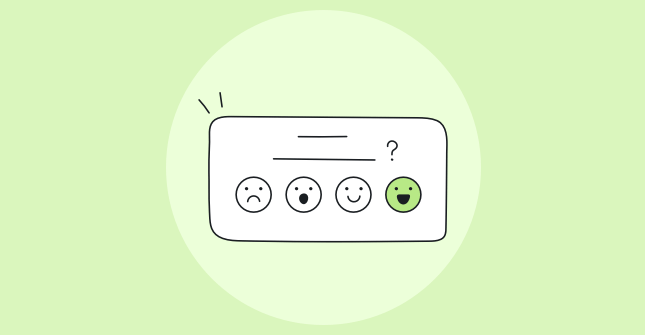
13 Ways to Collect Customer Feedback for Your Website

Website Feedback Tabs & Buttons: Everything You Need to Know

20+ Website Feedback Tools You Can’t Ignore in 2024

How to Add a Survey to Your Website: A Step-by-Step Guide

35+ Excellent UX Survey Questions You Need to Ask

98 Quantitative Research Questions & Examples

As researchers, we know how powerful quantitative research data can be in helping answer strategic questions. Here, I’ve detailed 23 use cases and curated 98 quantitative market research questions with examples – making this a post you should add to your bookmark list , so you can quickly refer back.
I’ve formatted this post to show you 10-15 questions for each use case. At the end of each section, I also share a quicker way to get similar insights using modern market research tools like Similarweb.
What is a quantitative research question?
Quantitative market research questions tell you the what, how, when, and where of a subject. From trendspotting to identifying patterns or establishing averages– using quantitative data is a clear and effective way to start solving business problems.
Types of quantitative research questions
Quantitative market research questions are divided into two main types: descriptive and causal.
- Descriptive research questions seek to quantify a phenomenon by focusing on a certain population or phenomenon to measure certain aspects of it, such as frequency, average, or relationship.
- Causal research questions explore the cause-and-effect relationship between two or more variables.
The ultimate list of questions for quantitative market research
Get clear explanations of the different applications and approaches to quantitative research–with the added bonus of seeing what questions to ask and how they can impact your business.
Examples of quantitative research questions for competitive analysis
A powerful example of quantitative research in play is when it’s used to inform a competitive analysis . A process that’s used to analyze and understand how industry leaders and companies of interest are performing.
Pro Tip: Collect data systematically, and use a competitive analysis framework to record your findings. You can refer back to it when you repeat the process later in the year.
- What is the market share of our major competitors?
- What is the average purchase price of our competitors’ products?
- How often do our competitors release new products?
- What is the total number of customer reviews for our competitors’ products?
- What is the average rating of our competitors’ products?
- What is the average customer satisfaction score for our competitors?
- What is the average return rate of our competitors’ products?
- What is the average shipping time for our competitors’ products?
- What is the average price discount offered by our competitors?
- What is the average lifespan of our competitors’ products?
With this data, you can determine your position in the market and benchmark your performance against rival companies. It can then be used to improve offerings, service standards, pricing, positioning, and operational effectiveness. Notice that all questions can be answered with a numerical response , a key component of all successful examples of quantitative market research questions.
Quantitative research question example: market analysis
♀️ Question: What is the market share of our major competitors?
Insight sought: Industry market share of leaders and key competitors.
Challenges with traditional quantitative research methods: Outdated data is a major consideration; data freshness remains critical, yet is often tricky to obtain using traditional research methods. Markets shift fast, so being able to obtain and track market share in real time is a challenge many face.
A new approach: Similarweb enables you to track this key business KPI in real-time using digital data directly from the platform. On any day, you can see what your market share is, along with any players in your market. Plus, you get to see rising stars showing significant growth, who may pose a threat through market disruption or new tactics.
⏰ Time to insight: 30 seconds
✅ How it’s done: Using Similarweb’s Web Industry Analysis, two digital metrics give you the intel needed to decipher the market share in any industry. I’m using the Banking, Credit, and Lending market throughout these examples. I’ve selected the US market, analyzing the performance of the previous 3 months.
- Share of visits

Here, I can see the top players in my market based on the number of unique visitors to their sites. On top of the raw data that shows me the volume of visitors as a figure, I can quickly see the two players ( Capital One and Chase ) that have grown and by what percentage. On the side, you can see rising players in the industry. Now, while my initial question was to establish the market share of my major competitors, I can see there are a few disruptive players in my market who I’d want to track too; Synchrony.com being one of particular interest, given their substantial growth and traffic numbers.
- Share of search

Viewing the overall market size based on total search volumes, you can explore industry leaders in more detail. The top websites are the top five players, ranking by traffic share . You can also view the month-over-month change in visits, which shows you who is performing best at any given time . It’s the same five names, with Paypal and Chase leading the pack. However, I see Wells Fargo is better at attracting repeat visitors, while Capital One and Bank of America perform better at drawing in unique visitors.
In answer to my question, what is the market share of my major competitors, I can quickly use Similarweb’s quantitative data to get my answer.

This traffic share visual can be downloaded from the platform. It plots the ten industry leader’s market share and allocates the remaining share to the rest of the market.

I can also download a market quadrant analysis, which takes two key data points, traffic share and unique visitors, and plots the industry leaders. All supporting raw data can be downloaded in .xls format or connected to other business intelligence platforms via the API.
Quantitative research questions for consumer behavior studies
These studies measure and analyze consumer behavior, preferences, and habits . Any type of audience analysis helps companies better understand customer intent, and adjust offerings, messaging, campaigns, SEO, and ultimately offer more relevant products and services within a market.
- What is the average amount consumers spend on a certain product each month?
- What percentage of consumers are likely to purchase a product based on its price?
- How do the demographics of the target audience affect their purchasing behavior?
- What type of incentive is most likely to increase the likelihood of purchase?
- How does the store’s location impact product sales and turnover?
- What are the key drivers of product loyalty among consumers?
- What are the most commonly cited reasons for not buying a product?
- How does the availability of product information impact purchasing decisions?
- What is the average time consumers spend researching a product before buying it?
- How often do consumers use social media when making a purchase decision?
While applying a qualitative approach to such studies is also possible, it’s a great example of quantitative market research in action. For larger corporations, studies that involve a large, relevant sample size of a target market deliver vital consumer insights at scale .
Read More: 83 Qualitative Research Questions & Examples
Quantitative research question and answer: content strategy and analysis
♀️ Question: What type of content performed best in the market this past month?
Insight sought: Establish high-performing campaigns and promotions in a market.
Challenges with traditional quantitative research methods: Whether you consider putting together a panel yourself, or paying a company to do it for you, quantitative research at scale is costly and time-consuming. What’s more, you have to ensure that sampling is done right and represents your target audience.
A new approach: Data analysis is the foundation of our entire business. For over 10 years, Similarweb has developed a unique , multi-dimensional approach to understanding the digital world. To see the specific campaigns that resonate most with a target audience, use Similarweb’s Popular Pages feature. Key metrics show which campaigns achieve the best results for any site (including rival firms), campaign take-up, and periodic changes in performance and interest.
✅ How it’s done: I’ve chosen Capital One and Wells Fargo to review. Using the Popular Pages campaign filter, I can view all pages identified by a URL parameter UTM. For clarity, I’ve highlighted specific campaigns showing high-growth and increasing popularity. I can view any site’s trending, new, or best-performing pages using a different filter.

In this example, I have highlighted three campaigns showing healthy growth, covering teen checking accounts, performance savings accounts, and add-cash-in-store. Next, I will perform the same check for another key competitor in my market.

Here, I can see financial health tools campaigns with over 300% month-over-month growth and smarter credit and FICO campaigns showing strong performance. This tells me that campaigns focussing on education and tools are growing in popularity within this market.
Examples of quantitative research questions for brand tracking
These studies are designed to measure customers’ awareness, perceptions, behaviors, and attitudes toward a brand over time. Different applications include measuring brand awareness , brand equity, customer satisfaction, and purchase or usage intent.
These types of research surveys ask questions about brand knowledge, brand attributes, brand perceptions, and brand loyalty . The data collected can then be used to understand the current state of a brand’s performance, identify improvements, and track the success of marketing initiatives.
- To what extent is Brand Z associated with innovation?
- How do consumers rate the quality of Brand Z’s products and services?
- How has the awareness of Brand Z changed over the past 6 months?
- How does Brand Z compare to its competitors in terms of customer satisfaction?
- To what extent do consumers trust Brand Z?
- How likely are consumers to recommend Brand Z?
- What factors influence consumers’ purchase decisions when considering Brand Z?
- What is the average customer satisfaction score for equity?
- How does equity’s customer service compare to its competitors?
- How do customer perceptions of equity’s brand values compare to its competitors?
Quantitative research question example and answer: brand tracking
♀️ Question: How has the awareness of Brand Z changed over the past 6 months?
Insight sought: How has brand awareness changed for my business and competitors over time.
⏰ Time to insight: 2 minutes
✅ How it’s done: Using Similarweb’s search overview, I can quickly identify which brands in my chosen market have the highest brand awareness over any time period or location. I can view these stats as a custom market or examine brands individually.

Here, I’ve chosen a custom view that shows me five companies side-by-side. In the top right-hand corner, under branded traffic, you get a quick snapshot of the share of website visits that were generated by branded keywords. A branded keyword is when a consumer types the brand name + a search term.
Below that, you will see the search traffic and engagement section. Here, I’ve filtered the results to show me branded traffic as a percentage of total traffic. Similarweb shows me how branded search volumes grow or decline monthly. Helping me answer the question of how brand awareness has changed over time.
Quantitative research questions for consumer ad testing
Another example of using quantitative research to impact change and improve results is ad testing. It measures the effectiveness of different advertising campaigns. It’s often known as A/B testing , where different visuals, content, calls-to-action, and design elements are experimented with to see which works best. It can show the impact of different ads on engagement and conversions.
A range of quantitative market research questions can be asked and analyzed to determine the optimal approach.
- How does changing the ad’s headline affect the number of people who click on the ad?
- How does varying the ad’s design affect its click-through rate?
- How does altering the ad’s call-to-action affect the number of conversions?
- How does adjusting the ad’s color scheme influence the number of people who view the ad?
- How does manipulating the ad’s text length affect the average amount of time a user spends on the landing page?
- How does changing the ad’s placement on the page affect the amount of money spent on the ad?
- How does varying the ad’s targeting parameters affect the number of impressions?
- How does altering the ad’s call-to-action language impact the click-through rate?
Quantitative question examples for social media monitoring
Quantitative market research can be applied to measure and analyze the impact of social media on a brand’s awareness, engagement, and reputation . By tracking key metrics such as the number of followers, impressions, and shares, brands can:
- Assess the success of their social media campaigns
- Understand what content resonates with customers
- Spot potential areas for improvement
- How often are people talking about our brand on social media channels?
- How many times has our brand been mentioned in the past month?
- What are the most popular topics related to our brand on social media?
- What is the sentiment associated with our brand across social media channels?
- How do our competitors compare in terms of social media presence?
- What is the average response time for customer inquiries on social media?
- What percentage of followers are actively engaging with our brand?
- What are the most popular hashtags associated with our brand?
- What types of content generate the most engagement on social media?
- How does our brand compare to our competitors in terms of reach and engagement on social media?
Example of quantitative research question and answer: social media monitoring
♀️ Question: How does our brand compare to our competitors in terms of reach and engagement on social media?
Insight sought: The social channels that most effectively drive traffic and engagement in my market
✅ How it’s done: Similarweb Digital Research Intelligence shows you a marketing channels overview at both an industry and market level. With it, you can view the most effective social media channels in any industry and drill down to compare social performance across a custom group of competitors or an individual company.
Here, I’ve taken the five closest rivals in my market and clicked to expand social media channel data. Wells Fargo and Bank of America have generated the highest traffic volume from social media, with over 6.6 million referrals this year. Next, I can see the exact percentage of traffic generated by each channel and its relative share of traffic for each competitor. This shows me the most effective channels are YouTube, Facebook, LinkedIn, and Reddit – in that order.

In 30-seconds, I’ve discovered the following:
- YouTube is the most popular social network in my market.
- Facebook and LinkedIn are the second and third most popular channels.
- Wells Fargo is my primary target for a more in-depth review, with the highest performance on the top two channels.
- Bank of America is outperforming all key players significantly on LinkedIn.
- American Express has found a high referral opportunity on Reddit that others have been unable to match.
Power-up Your Market Research with Similarweb Today
Examples of quantitative research questions for online polls
This is one of the oldest known uses of quantitative market research. It dates back to the 19th century when they were first used in America to try and predict the outcome of the presidential elections.

Polls are just short versions of surveys but provide a point-in-time perspective across a large group of people. You can add a poll to your website as a widget, to an email, or if you’ve got a budget to spend, you might use a company like YouGov to add questions to one of their online polls and distribute it to an audience en-masse.
- What is your annual income?
- In what age group do you fall?
- On average, how much do you spend on our products per month?
- How likely are you to recommend our products to others?
- How satisfied are you with our customer service?
- How likely are you to purchase our products in the future?
- On a scale of 1 to 10, how important is price when it comes to buying our products?
- How likely are you to use our products in the next six months?
- What other brands of products do you purchase?
- How would you rate our products compared to our competitors?
Quantitative research questions for eye tracking studies
These research studies measure how people look and respond to different websites or ad elements. It’s traditionally an example of quantitative research used by enterprise firms but is becoming more common in the SMB space due to easier access to such technologies.
- How much time do participants spend looking at each visual element of the product or ad?
- How does the order of presentation affect the impact of time spent looking at each visual element?
- How does the size of the visual elements affect the amount of time spent looking at them?
- What is the average time participants spend looking at the product or ad as a whole?
- What is the average number of fixations participants make when looking at the product or ad?
- Are there any visual elements that participants consistently ignore?
- How does the product’s design or advertising affect the average number of fixations?
- How do different types of participants (age, gender, etc.) interact with the product or ad differently?
- Is there a correlation between the amount of time spent looking at the product or ad and the participants’ purchase decision?
- How does the user’s experience with similar products or ads affect the amount of time spent looking at the current product or ad?
Quantitative question examples for customer segmentation
Segmentation is becoming more important as organizations large and small seek to offer more personalized experiences. Effective segmentation helps businesses understand their customer’s needs–which can result in more targeted marketing, increased conversions, higher levels of loyalty, and better brand awareness.

If you’re just starting to segment your market, and want to know the best quantitative research questions to ask to help you do this, here are 20 to choose from.
Examples of quantitative research questions to segment customers
- What is your age range?
- What is your annual household income?
- What is your preferred online shopping method?
- What is your occupation?
- What types of products do you typically purchase?
- Are you a frequent shopper?
- How often do you purchase products online?
- What is your typical budget for online purchases?
- What is your primary motivation for purchasing products online?
- What factors influence your decision to purchase a product online?
- What device do you use most often when shopping online?
- What type of product categories are you most interested in?
- Do you prefer to shop online for convenience or for a better price?
- What type of discounts or promotions do you look for when making online purchases?
- How do you prefer to receive notifications about product promotions or discounts?
- What type of payment methods do you prefer when shopping online?
- What methods do you use to compare different products and prices when shopping online?
- What type of customer service do you expect when shopping online?
- What type of product reviews do you consider when making online purchases?
- How do you prefer to interact with a brand when shopping online?
Examples of quantitative research questions for analyzing customer segments
- What is the average age of customers in each segment?
- How do spending habits vary across customer segments ?
- What is the average length of time customers spend in each segment?
- How does loyalty vary across customer segments?
- What is the average purchase size in each segment?
- What is the average frequency of purchases in each segment?
- What is the average customer lifetime value in each segment?
- How does customer satisfaction vary across customer segments?
- What is the average response rate to campaigns in each segment?
- How does customer engagement vary across customer segments?
These questions are ideal to ask once you’ve already defined your segments. We’ve written a useful post that covers the ins and outs of what market segmentation is and how to do it.
Additional applications of quantitative research questions
I’ve covered ten use cases for quantitative questions in detail. Still, there are other instances where you can put quantitative research to good use.
Product usage studies: Measure how customers use a product or service.
Preference testing: Testing of customer preferences for different products or services.
Sales analysis: Analysis of sales data to identify trends and patterns.
Distribution analysis: Analyzing distribution channels to determine the most efficient and effective way to reach customers.
Focus groups: Groups of consumers brought together to discuss and provide feedback on a particular product, service, or marketing campaign.
Consumer interviews: Conducted with customers to understand their behavior and preferences better.
Mystery shopping: Mystery shoppers are sent to stores to measure customer service levels and product availability.
Conjoint analysis: Analysis of how consumers value different attributes of a product or service.
Regression analysis: Statistical analysis used to identify relationships between different variables.
A/B testing: Testing two or more different versions of a product or service to determine which one performs better.
Brand equity studies: Measure, compare and analyze brand recognition, loyalty, and consumer perception.
Exit surveys: Collect numerical data to analyze employee experience and reasons for leaving, providing insight into how to improve the work environment and retain employees.
Price sensitivity testing: Measuring responses to different pricing models to find the optimal pricing model, and identify areas if and where discounts or incentives might be beneficial.
Quantitative market research survey examples
A recent GreenBook study shows that 89% of people in the market research industry use online surveys frequently–and for good reason. They’re quick and easy to set up, the cost is minimal, and they’re highly scalable too.

Questions are always formatted to provide close-ended answers that can be quantified. If you wish to collect free-text responses, this ventures into the realm of qualitative research . Here are a few examples.
Brand Loyalty Surveys: Companies use online surveys to measure customers’ loyalty to their brand. They include questions about how long an individual has been a customer, their overall satisfaction with the service or product, and the likelihood of them recommending the brand to others.
Customer Satisfaction Surveys: These surveys may include questions about the customer’s experience, their overall satisfaction, and the likelihood they will recommend a product or service to others.
Pricing Studies: This type of research reveals how customers value their products or services. These surveys may include questions about the customer’s willingness to pay for the product, the customer’s perception of the price and value, and their comparison of the price to other similar items.
Product/Service Usage Studies: These surveys measure how customers use their products or services. They can include questions about how often customers use a product, their preferred features, and overall satisfaction.
Here’s an example of a typical survey we’ve used when testing out potential features with groups of clients. After they’ve had the chance to use the feature for a period, we send a short survey, then use the feedback to determine the viability of the feature for future release.
Employee Experience Surveys: Another great example of quantitative data in action, and one we use at Similarweb to measure employee satisfaction. Many online platforms are available to help you conduct them; here, we use Culture AMP . The ability to manipulate the data, spot patterns or trends, then identify the core successes and development areas are astounding.

How to answer quantitative research questions with Similarweb
For the vast majority of applications I’ve covered in this post, there’s a more modern, quicker, and more efficient way to obtain similar insights online. Gone are the days when companies need to use expensive outdated data or pay hefty sums of money to market research firms to conduct broad studies to get the answers they need.
By this point, I hope you’ve seen how quick and easy it is to use Similarweb to do market research the modern way. But I’ve only scratched the surface of its capabilities.
Take two to watch this introductory video and see what else you can uncover.
Added bonus: Similarweb API
If you need to crunch large volumes of data and already use tools like Tableau or PowerBI, you can seamlessly connect Similarweb via the API and pipe in the data. So for faster analysis of big data, you can leverage Similarweb data to use alongside the visualization tools you already know and love.
Similarweb’s suite of market intelligence solutions offers unbiased, accurate, honest insights you can trust. With a world of data at your fingertips, use Similarweb Research Intelligence to uncover facts that help inform your research and strengthen your position.
Take a look at:
- Our Market Research suite
- Our Benchmarking tools
- Our Audience Insights tool
- Our Company Research module
- Our Consumer Journey Tracker
- Our Competitive Analysis Tool
Wrapping up
Today’s markets change at lightning speed. To keep up and succeed, companies need access to insights and intel they can depend on to be timely and on-point. While quantitative market research questions can and should always be asked, it’s important to leverage technology to increase your speed to insight, and thus improve reaction times and response to market shifts.
What is quantitative market research?
Quantitative market research is a form of research that uses numerical data to gain insights into the behavior and preferences of customers. It is used to measure and track the performance of products, services, and campaigns.
How does quantitative market research help businesses?
Quantitative market research can help businesses identify customer trends, measure customer satisfaction, and develop effective marketing strategies. It can also provide valuable insights into customer behavior, preferences, and attitudes.
What types of questions should be included in a quantitative market research survey?
Questions in a quantitative market research survey should be focused, clear, and specific. Questions should be structured to collect quantitative data, such as numbers, percentages, or frequency of responses.
What methods can be used to collect quantitative market research data?
Common methods used to collect quantitative market research data include surveys, interviews, focus groups, polls, and online questionnaires.
What are the advantages and disadvantages of using quantitative market research?
The advantages of using quantitative market research include the ability to collect data quickly, the ability to analyze data in a structured way, and the ability to identify trends. Disadvantages include the potential for bias, the cost of collecting data, and the difficulty in interpreting results.

by Liz March
Digital Research Specialist
Liz March has 15 years of experience in content creation. She enjoys the outdoors, F1, and reading, and is pursuing a BSc in Environmental Science.
Related Posts

Unlocking Consumer Behavior: What Makes Your Customers Tick?

Customer Segmentation: Expert Tips on Understanding Your Audience

Market Demand 101: How to Gauge Demand for Your Products

Data Quality and Its Importance: Examples, Benefits, and Best Practices
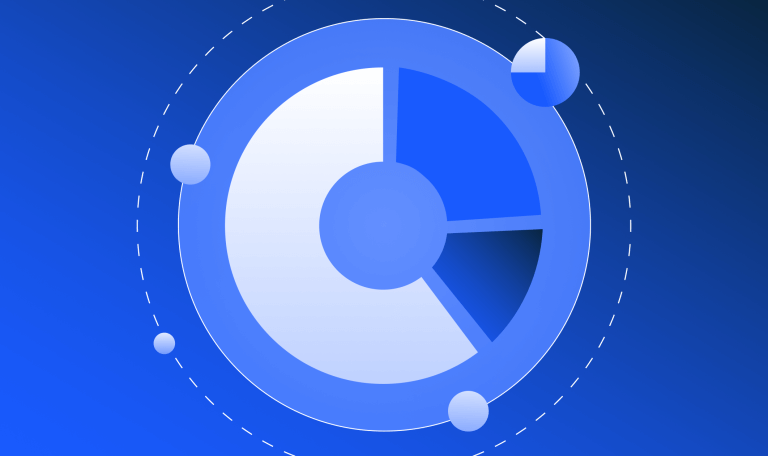
What Is Data Visualization? Your Complete Guide

What is Data-as-a-Service (DaaS), and Why Do You Need It?
Wondering what similarweb can do for your business.
Give it a try or talk to our insights team — don’t worry, it’s free!
Market Research Questions: What to Ask for Better Insights
This blog explores the different types and formatting options for market research questions, and how asking the right questions leads to better insights.

quantilope is the Consumer Intelligence Platform for all end-to-end research needs
You see the value in market research and have support from your stakeholders to get started on some projects, but when you sit down to draft your questionnaire, you don’t quite know where to start. Sound relatable? If so, read on to learn some key market research questions to ask for actionable customer feedback.
Table of Contents:
- Why ask market research questions?
Types of market research questions to ask
Market research questions for different research goals, how to use market research questions in a survey, why ask market research questions.
Market research questions help us get to the core of consumer behavior - such as why consumers act the way they do and how they go about their buyers’ journey. Market research surveys are a means of answering these questions, so brands can optimize their offerings (be it products or services) according to customer needs. Without asking your customer base what they want or need, you’re left making assumptions that may or may not hit the mark - which can lead to a waste of valuable time and budget.
Back to Table of Contents
Some of the most basic examples of market research questions are those related to demographics (who consumers are), yet these are some of the most foundational questions a survey can ask to make other insights more powerful. Beyond demographic traits, psychographics (what consumers are like - attitudes, aspirations, etc.) and behavioral questions (how consumers act) also paint a detailed picture of a target market. Below we'll cover some types and examples of market research questions that can help make better business decisions.
Demographic questions
Where do you live?
How old are you?
What is your gender?
- What is your current marital status?
What is the highest level of education you have completed?
- What is your current employment status?
- What's your household's annual income?
Psychographic questions
What interests you?
How do you like to spend your free time?
What are your goals for the year?
- What are your top three priorities in life?
- How comfortable are you with trying new things?
- What are your views on social issues like climate change, inequality, or political polarization?
- How important is it for you to be seen as successful by others?
Behavioral questions
How often do you grocery shop?
Do you prefer to shop in-store or online?
On which days of the week are you most likely to watch television (and subsequently see advertising)?
How much money do you usually spend on X products?
Which retail brands do you buy from and why?
- Think about a time you recommended a product or service to someone else. What made you so enthusiastic about it?
- Have you ever participated in a brand's loyalty program or rewards system? If yes, what did you like about it?
The type of questions you’ll want to ask in your market research survey will depend on your research goals. Are you trying to get to know your existing customers? Are you looking to engage with potential customers? Are you hoping to conduct a competitive analysis for your brand? A survey could be crafted around any or all of these objectives to fully explore each topic.
Once you determine the goal of your research, you can begin drafting your questionnaire using some of the question types above. Beyond capturing basic demographic questions among every survey respondent, below are a few examples of psychographic and behavioral question types:
For existing customers:
For brands who already have a solid customer base and want to get to know them better to improve customer retention, ask things like:
Why did you start using our [product or service]?
Would you buy from us again?
Would you recommend us to your family and friends?
Are there similar products that you use for different reasons?
What, if anything, would you improve about or product or service?
For potential customers:
If you’re looking to gather information about new customers you don’t already reach, get to know them through in-depth market research survey questions:
What factors influence your purchasing decision when shopping for a new [product or service type]?
Which of the following products [or services] are most appealing to you?
Where do you typically shop for [product or service]?
When will you be in the market for a new [product or service]?
How much do you typically spend on a new [product or service]?
For products:
Surveys are a great tool to test reactions and perceptions of your product before you finalize it for launch. Below are some examples of market research questions for a new product to develop a final offering that fits what customers want:
What are the most/least important elements of a [product type]?
Which scents/flavors do you find most pleasant in our existing product line? Which ones do you hope to see in the future?
What pain points are you looking for a product/service to solve?
How does this product compare to others on the market?
For pricing:
Once you have settled on a product, you’ll need to determine the pricing for it. You can’t just set any price you want and expect consumers to pay it. The best way to go about pricing decisions is to actually survey your target customers to see what they’d be willing to spend:
Do you think the product is priced fairly?
What do you think is the ideal price for our [product or service]?
Are there any conditions in which you’d pay a higher price for our [product or service]?
What price is so high that you’d not even consider buying our [product or service]? (i.e. price sensitivity ).
For branding:
Lastly, a brand might have its target audience figured out, with a solid product that’s appropriately priced, but it needs to be marketed and branded . Ask questions like:
Are you familiar with our brand? (i.e. brand awareness)
Describe your customer experience so far with our brand.
How would you rate your customer satisfaction with our brand?
How likely are you to recommend our brand to family and friends?
For more on branding, consider a brand health tracker that can capture category entry points and the mental availability of brands:

When designing a market research survey, careful consideration should be given to both the formatting of the questions and their overall structure. Getting these aspects right can significantly improve the quality and depth of the actual insights you gather - empowering you to make better business decisions. Below we'll explore various question formatting options, including open-ended and closed-ended questions, as well as tips to create a logical flow throughout your questionnaire.
Question formatting options
Once you’ve determined the question content you’d like to ask in your survey, there are multiple ways you can go about actually programming each one. Below are some common question formats, and when to use each one:

Multi-select: Use when you want a respondent to select as many items as apply to them from a list.
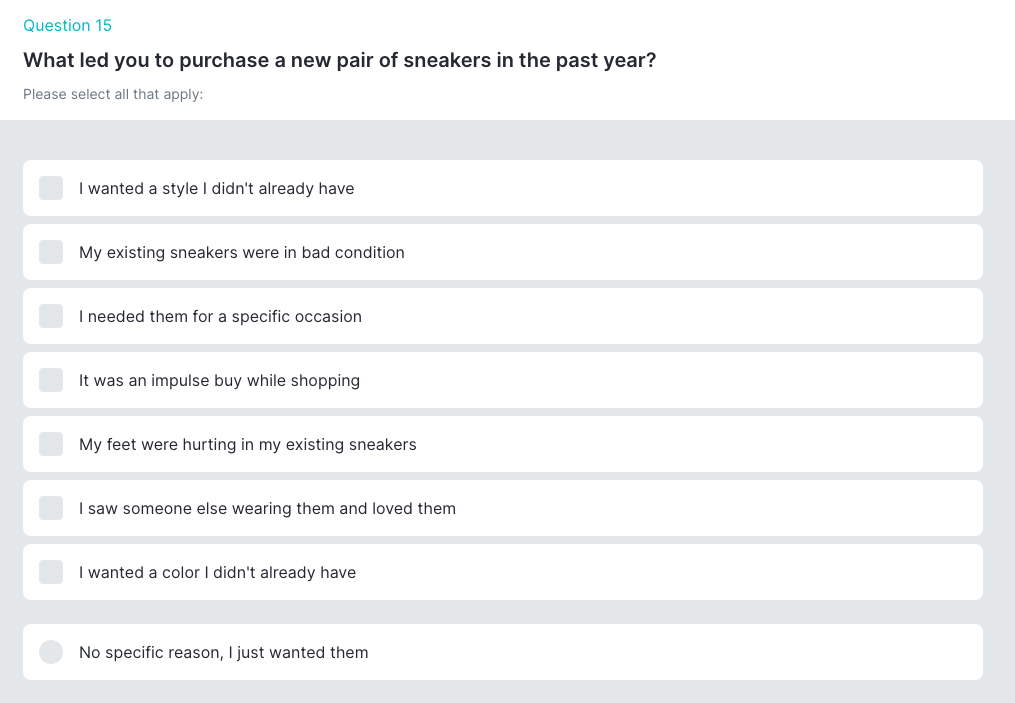
Rating scale/matrix: Use when you want respondents to provide a numeric rating on a single item (scale) or a list of items (matrix); (i.e. 1-5 likeness toward each, 1-5 level of satisfaction with each, etc.)
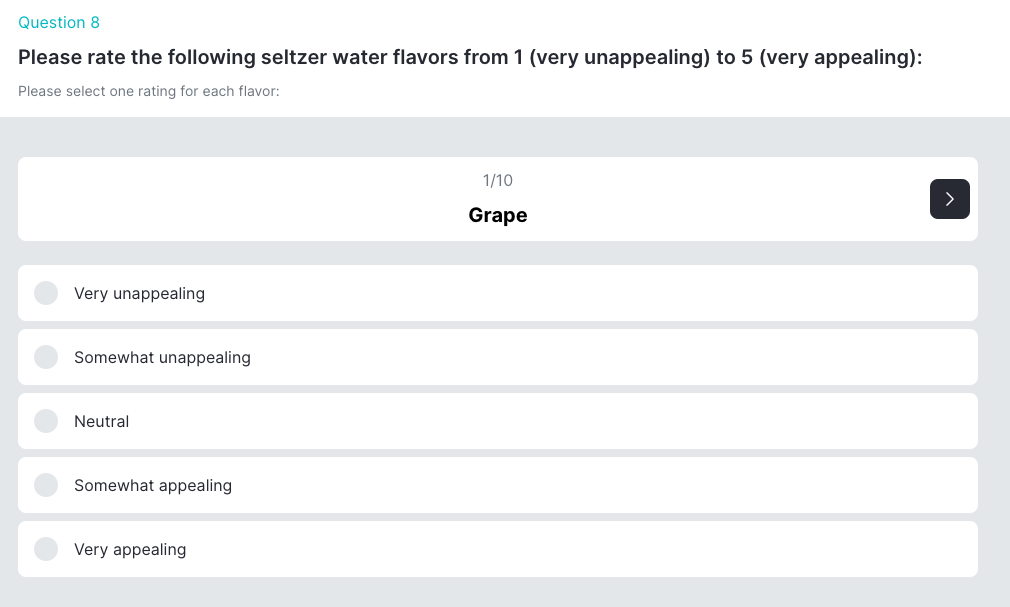
Open-ended questions : Use when you want respondents to provide written feedback to a question (i.e. ‘tell me about your latest shopping experience in-store’, or ‘what do you love about this product/service?;)
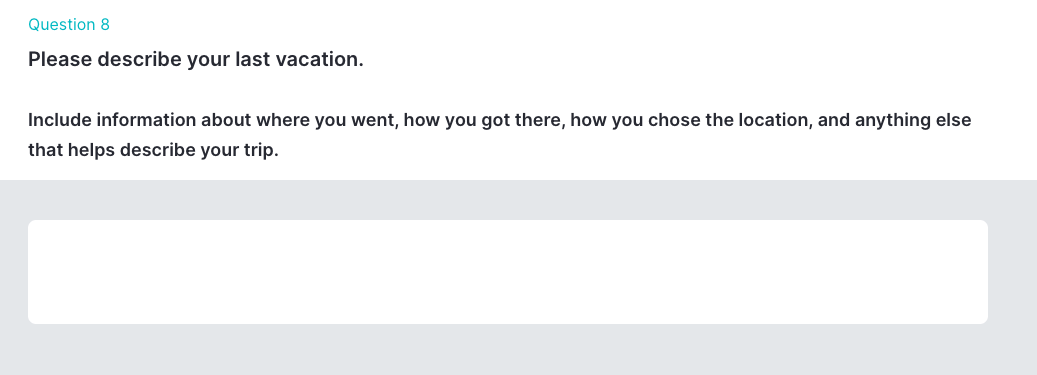
How to structure your questions for better insights
Good questions that are thoughtfully structured will guide respondents through your survey smoothly, minimize confusion, encourage complete responses, and ultimately, yield high-quality results to tailor marketing strategies, product development, and customer service initiatives. Starting with broad inquiries and gradually narrowing the focus enhances respondents' survey experience and enables you to identify patterns and correlations within the data. Below are some tips to keep in mind when structuring your market research survey.
1. Start with a goal
The first step is to set a clear goal for your market research questionnaire. That goal could be to understand your buyer persona, learn how to maintain loyal customers, improve your website’s user experience, increase market share, or launch a new product.
2. Review what you already know
Conducting market research should aim to only answer questions that you don’t already have the answers to from previously-collected customer insights. Start by reviewing your own market research findings from past studies to see if you can answer any current questions. You can also look into customer reviews (if available), social media comments, and other external sources to see what people are saying about your brand.
3. Don’t make assumptions
Don’t ever assume you know something about a consumer without data to support it. For example, you may think that all customers use your product/service year-round when really, they’re only using it in the winter. You need to collect data to support any business decisions you’re making. That’s the only way to ensure you’re making good use of your time and budget, and that customer needs are met appropriately.
quantilope’s Insights Automation Platform makes a brand, product, or customer survey as simple as a drag & drop of questions. The platform is equipped with a number of automated survey tools (piping, pre-programmed survey templates , etc.) along with a suite of thirteen automated, advanced methods (i.e. market segmentation, key driver analysis, a/b testing, and many more). With results available in real-time, quantilope users begin diving into customer feedback instantly, with final results ready in a matter of days.
Ready to collect data for your own market research study? Get in touch below:
Get in touch to start building better insights!
Latest articles.

Strengthening Our Approach to Data Quality With Pre-Survey Defense
quantilope's Pre-Survey Defense module detects suspicious/fraudulent respondents before they enter a survey - complementing existing data q...

August 13, 2024

Better Brand Health Tracking in the Body Wash Category
Dive into quantilope's Better Brand Health Tracking approach with this body wash category study, including brands like Dove, Nivea, Axe, an...

August 06, 2024

quantilope & TMRE Event: Defend, Grow, or Maintain? Strengthen Your Brand with Mental Advantage Analysis
See how you can grow market share through meaningful customer connections by understanding buyers’ needs and motivations.

August 05, 2024
- Book Consultation
- SEO Services
- Google Ads Management
- SEO Services for Startups
85 Market Research Questions to Understand Your Audience
- by Sumant Vasan
Knowing your audience is the secret sauce of any successful business or campaign. But how do you crack the code and really get into the minds of your customers?
To truly understand your target audience, you need to ask the right questions. “85 Insightful Questions to Engage and Understand Your Target Audience” is an ultimate guide that provides you with the right set of questions that not only open doors to genuine insights but also help you create a real connection with your audience.
Whether you’re trying to refine your product, tailor your marketing strategy, or get a clearer picture of who’s on the other side of the screen, these questions are your ticket.
Get ready to dive deep, build trust, and unlock the valuable information within your audience’s answers.
Table of Contents
What are Market Research Questions?
Market research questions are crucial in gathering specific information and insights about a target market or audience. They are designed to analyze market trends and competitors and understand consumer preferences, behaviors, and opinions. You can use Quantitative Research Methods (surveys, polls, etc) or if you have a focus group, you can focus on a more qualitative structure.
Market Research to Collect Valuable Insights

Businesses can use market research questions to improve product creation, marketing, and sales decision-making. It’s important to pick questions that match the goals you have for your market research.
So, let’s get started. Below, you can find the breakdown of relevant categories and suggested questions. Feel free to customize your preference, but the market analysis questions below are a great start.
Consumer Insights:
Understanding your customers’ preferences, pain points, and purchase decisions is crucial. Armed with this knowledge, you can enhance what they like and address what they don’t like.
- What drives your decisions when you buy something?
- What changes or enhancements would you prefer in our products or services?
- Rate your satisfaction level with our customer support.
- Would you suggest our products to your friends or family?
- What aspects of our product or service do you value the most?
- How does our product/service fit into your daily lifestyle or routine?
Startup Questions:
In the world of startups, market research isn’t just helpful, it’s essential to your success. It is the key to validating your business vision, identifying your target audience, and anticipating potential opportunities and challenges. This research-focused feedback is crucial in shaping a product that truly reflects the voice of your audience and meets their needs.
- Which attributes do you prioritize when choosing a [product/service]?
- Are you open to adopting a novel [product/service] that better caters to your needs?
- What would primarily influence you to pick one product over its rivals?
- What is your budget for a [product/service] that fulfills your specific needs?
- Which channels do you prefer for receiving updates about new [products/services]?
- How do you like to purchase [products/services] – online, in a physical store, or via a mobile application?
- In what ways do you think technology could further solve your current challenges in [specific industry/problem area]?
If You’re Launching a New Product
When you are getting ready to introduce a new product to the market, it can feel like you’re putting together a puzzle. Conducting market research helps you bring all the pieces together, highlighting potential interest, clarifying desired features, and outlining the characteristics of your target customer base. This strategic approach is a precaution against releasing a product that may not appeal to your audience.
- How did you become aware of our latest product?
- Based on the details provided, what are your first thoughts about our new product?
- How excited are you to try our latest product?
- Which features or advantages of our new product did you like the most?
- Do you think the price of the new product is reasonable considering its value to you?
- Do you have any concerns about the new product?
- Would you like to participate in the new product’s test run or beta phase?
- If you were to describe our new product in three words, what would they be?
Feedback on Current Product Line:
If you need insight into your current product, make sure you ask the type of questions that really matter. Actionable data is what you’re looking for, not the fluff.
- On a scale from 1 to 5, how would you rate your happiness with our current product?
- What difficulties have you had while using our product?
- Are there any specific things you would like to see improved in our product?
- How does our product stand against competitors in terms of functionality and cost?
- If you could change one thing about our product, what would it be and why?
Psychographics To Help With Segmentation:
Using market research questions to split your market into different groups is like being an orchestra conductor. It allows you to adjust your marketing strategies, tailor your products to exactly what different groups want, and connect with each part of your audience in a way that really clicks. It’s all about ensuring each part of your marketing hits the right note with every group you’re trying to reach.
- What age bracket do you fall into?
- What is your gender identity?
- What’s your current place of residence?
- What level of education have you completed?
- Are you employed, running your own business, studying, or retired?
- What hobbies or pastimes do you enjoy?
- Which methods of communication do you prefer?
- How do you typically make your buying decisions?
- What primarily motivates you to buy a particular product/service?
- What media outlets do you frequently rely on for news and entertainment?
- In what ways do your cultural or local influences affect your purchasing decisions?
Competitor Analysis:
Understanding your competitors’ strengths, weaknesses, and tactics can provide valuable insights into market share and potential ways to differentiate yourself in the industry. Using survey tools to analyze your competition is similar to conducting intelligence gathering, which enables you to gain strategic insights from the viewpoints of customers and industry experts.
- Have you ever used products/services from our rivals?
- How would you assess our competitors’ products/services regarding quality?
- What do you consider to be the strong points of our competitors’ products/services?
- What influences your preference for our products/services over our competitors’?
- Are there any particular advantages or features of our competitors’ offerings that you find appealing?
- How do our products/services stack up against our competitors regarding overall value?
- How probable is it that you would suggest our products/services to others over our competitors’?
- What areas do you feel our competitors miss out on, and how could we capitalize on these gaps?
Brand Recognition and Recall:
Assessing brand awareness helps businesses gauge the success of their marketing initiatives and their brand’s visibility in the marketplace. Market research questions on brand awareness can show how well your brand is recognized and perceived.
- Were you previously familiar with our brand?
- How did you come to know about our brand?
- Which products of ours are you aware of?
- Have you ever used or bought any of our company’s products?
- What do you particularly like about our product?
- On a scale from 1 to 10, how likely are you to recommend our brand to someone you know?
- Can you recall any specific marketing or advertising campaign from our brand that left a lasting impression on you?
Price Perception and Expectations:
Determining an effective pricing strategy is crucial for attracting customers and maintaining profitability. Market research questions relating to pricing can provide insight into how customers perceive your prices compared to your competitors and what they value when considering price.
- What price range do you find is fair for our product?
- How does our pricing stack up against that of our market competitors?
- What considerations do you consider when judging a product’s price?
- Would you be ready to spend more on extra features or benefits?
- How does the perceived quality of our product/service influence your willingness to pay a specific price?
Evaluating New Concepts:
Performing concept testing before fully developing a product allows businesses to test the waters with new ideas, ensuring they align with customer needs and have a viable market before significant resources are invested.
- After reading the concept description for our new product/service, how interesting is it?
- Which parts of the concept mainly catch your interest or seem appealing?
- Based on the concept description, how likely are you to try or buy this new product/service?
- What would be your main reason for trying this new product/service over others?
- Is there anything lacking in the concept that would make it more appealing or valuable?
- Would you suggest any changes or improvements to the concept to make it more appealing?
- Based on the concept description, how much would you be ready to pay for this new product/service?
- In considering new products/services, how much do you value sustainability and eco-friendliness?
Digital Footprint and Online Interaction:
Everyone is online. No secret there. So it’s clearly important to get insight into how they found you, if they liked the website experience and design if the content matched up to their expectations, etc.
- How did you come across our brand or company online?
- How often do you encounter our brand or company during your internet browsing?
- Have you visited our website, and if so, what was your reason for the visit?
- Do you follow our brand or company on social media platforms, and if so, which ones?
- What is your impression of our brand or company’s social media presence (e.g., active, engaging, informative)?
- Do you find our website and online material (like blogs or articles) user-friendly and informative?
- What are your thoughts about the overall online experience with our website (considering aspects like speed, design, and functionality)?
- How do you think our online presence compares with that of our competitors?
- Are there any specific online platforms or websites where you’d like to see more activity from our brand or company?
- What type of online content from our brand would make you more engaged or likely to interact (e.g., tutorials, customer stories, live Q&As)?
Understanding Company Image and Reputation:
Knowing how they view your brand is one of the most impactful lines of questioning. If they don’t trust you or feel the authenticity, you lose them as customers. Ask them, point blank, what do you think about our positioning. Do we come across as worthy of earning your business? Get real here, it matters.
- How would you describe your overall view of our company?
- In your opinion, what are the strengths of our company?
- Based on your current view, how likely are you to recommend our company to others?
- Are there particular elements of our company’s reputation that stand out?
- What are your thoughts on how our company handles customer feedback and issues?
- Have any specific events or experiences significantly shaped your view of our company?
- Can you share a particular experience, either positive or negative, that has significantly shaped your perception of our company?
- How do you view our company’s commitment to social and environmental responsibilities?
This set of questions is highly flexible, so you can tailor them to fit your market research requirements and your audience’s unique features. With the help of this toolkit, you have all the necessary resources to discover significant insights that can help you advance your business strategies.
How to Make the Most of Your Research Questions

A solid market research process is crucial because it’s the backbone of informed decision-making in your business. It’s like having a roadmap in unknown territory, guiding you to understand your customers, competitors, and the market.
To make the most of it, be clear about what you want to learn, and choose methods and questions that get you those answers. It’s not just about gathering data, but analyzing it to spot trends, understand behaviors, and predict future moves.
Remember, the goal is to convert this knowledge into actionable strategies that boost your business, not just to collect information. So, every step in your market research should be intentional, aiming to provide insights that directly support your business objectives.
Related posts:


Summer is here, and so is the sale. Get a yearly plan with up to 65% off today! 🌴🌞
- Form Builder
- Survey Maker
- AI Form Generator
- AI Survey Tool
- AI Quiz Maker
- Store Builder
- WordPress Plugin
HubSpot CRM
Google Sheets
Google Analytics
Microsoft Excel
- Popular Forms
- Job Application Form Template
- Rental Application Form Template
- Hotel Accommodation Form Template
- Online Registration Form Template
- Employment Application Form Template
- Application Forms
- Booking Forms
- Consent Forms
- Contact Forms
- Donation Forms
- Customer Satisfaction Surveys
- Employee Satisfaction Surveys
- Evaluation Surveys
- Feedback Surveys
- Market Research Surveys
- Personality Quiz Template
- Geography Quiz Template
- Math Quiz Template
- Science Quiz Template
- Vocabulary Quiz Template
Try without registration Quick Start
Read engaging stories, how-to guides, learn about forms.app features.
Inspirational ready-to-use templates for getting started fast and powerful.
Spot-on guides on how to use forms.app and make the most out of it.
See the technical measures we take and learn how we keep your data safe and secure.
- Integrations
- Help Center
- Sign In Sign Up Free
- 50+ Must-ask questions for your market research surveys
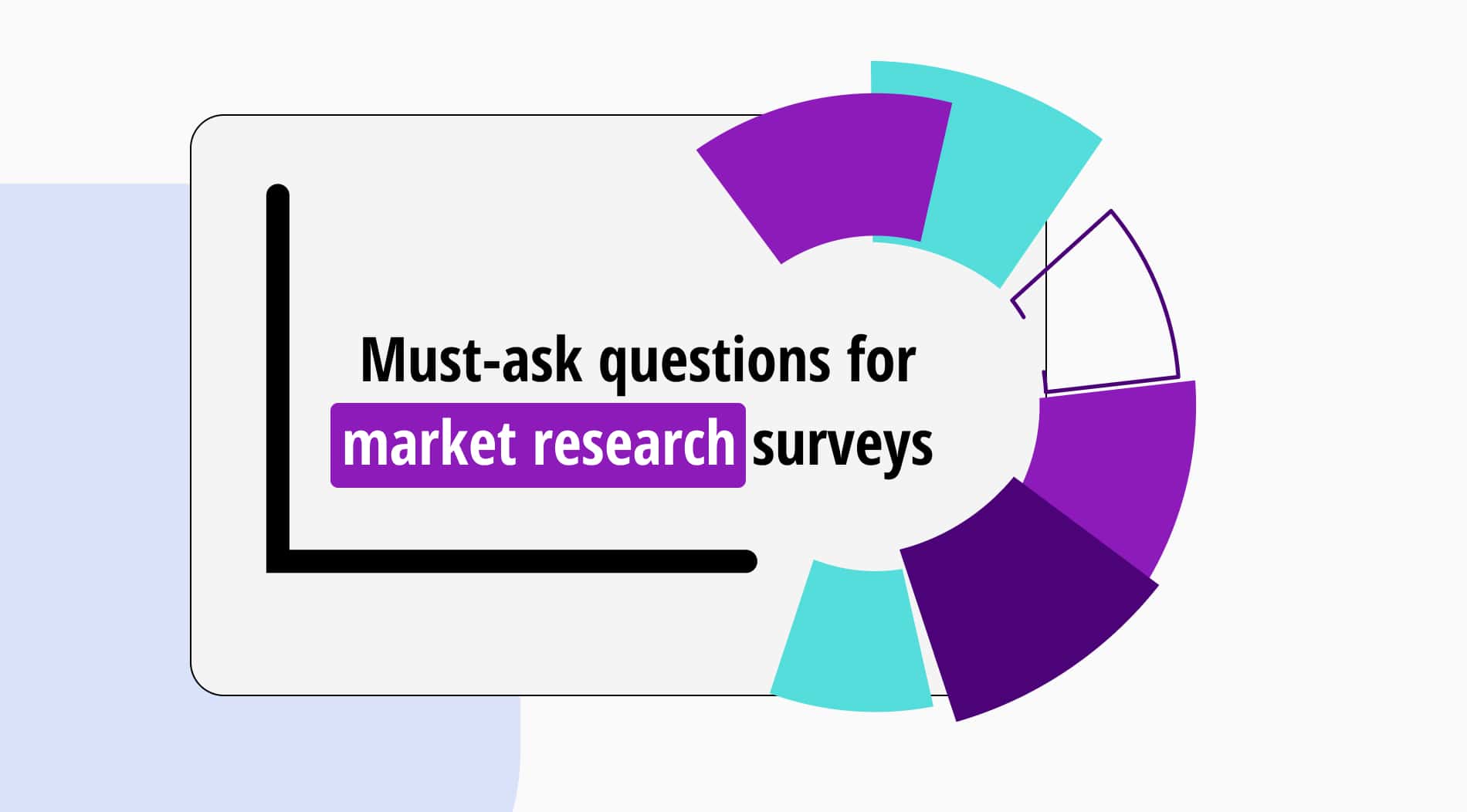
Şeyma Beyazçiçek
Market research is an essential part of finding answers to your questions. For this reason, market research surveys have a big importance. So, market study survey questions, too . These types of questions help you get essential data about the target audience, conduct competitive analysis, get new ones, or protect existing customers .
We have gathered the most essential data to help you gather information on the target market or target customer. In this article, you will find 50+ market research survey questions and examples about customers, products, social media, etc. You need to seriously consider these business survey questions for market research and learn more!
- What is a market research survey?
A market research survey is a document that asks demographic questions or any type of market research questions that aim to collect vital customer feedback to make you better in marketing . The critical point of a market research survey is to learn customer experience and make marketing plans according to it.
A report by Statista shows that since 2008 , the market research sector’s global revenue has increased by more than twice, surpassing $81 billion in 2022 . So, the importance of market research is getting more realized, and you need market analysis survey questions. Good survey questions for market research collect data to help you create definite strategies for a better marketing plan.
- 50+ Market research survey questions you must ask in your surveys
Each company has its own unique priorities and needs. For this reason, companies should choose questions carefully for their survey. 50+ market research survey questions might differ according to the needs and requirements of a company. Nevertheless, we have gathered the most essential and basic ones to make you grow faster.
If you want to access all these privileges we have discussed so far, you need to have a look at these 50+ must-ask questions for your market research surveys:
Customer survey questions for market research questions
The primary reason for selling a product or service is for customers . Finding the target audience for your company is one of the most important parts of your market research survey. For that reason, you need to have a look at these customer survey questions for market research questions:
1. How often do you shop from us?
- Once a week
- Twice a week
- Once a month
- Twice a month
- Once every two months
- Once every three months
- Once every six months
- Once a year
2. What is your favorite product/service?
3. What is your least favorite product/service?
4. Why do you choose us?
- Your reputation for quality products and services
- Your competitive pricing
- Your commitment to customer service
- Your convenient location
- Your wide selection of products and services
- Your knowledgeable staff
- Your experience in the industry
- Your commitment to innovation
- Your commitment to sustainability
5. Would you recommend us to your friends/family?
6. Since when do you choose us?
- Two Years Ago
- Three Years Ago
7. Overall, from 1-10, how do you rate us?
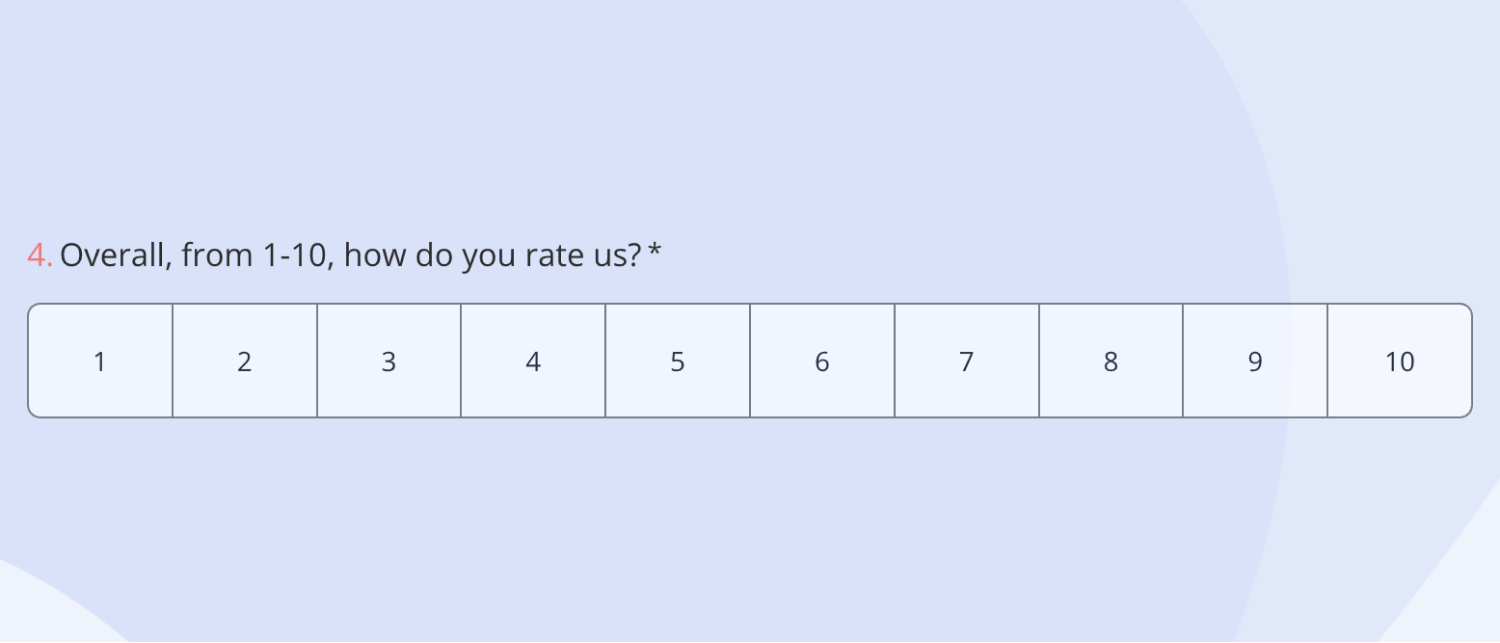
An opinion scale question example about satisfaction
Market research questions for a product
A market research question for a product is an excellent helper for companies to understand and collect data about existing. If you want to learn how your customers are satisfied with your exciting product, you only need to ask them these questions. Here are your market research questions for a product:
8. Have you ever heard of this product before?
9. From 1-10, how would you rate this product?
10. Do you believe this product is useful/helpful for you?
11. What is the likelihood of buying this product again?
- Very Likely
- Very Unlikely
12. What do you like about this product?
- It is easy to use
- It is cost-effective
- It is reliable
- It has great customer service
- It has a wide range of features
13. What do you dislike about this product?
- Functionality
14. Would you recommend this product to your friends or family?
You can replace the word “ product” with the name of your own product.
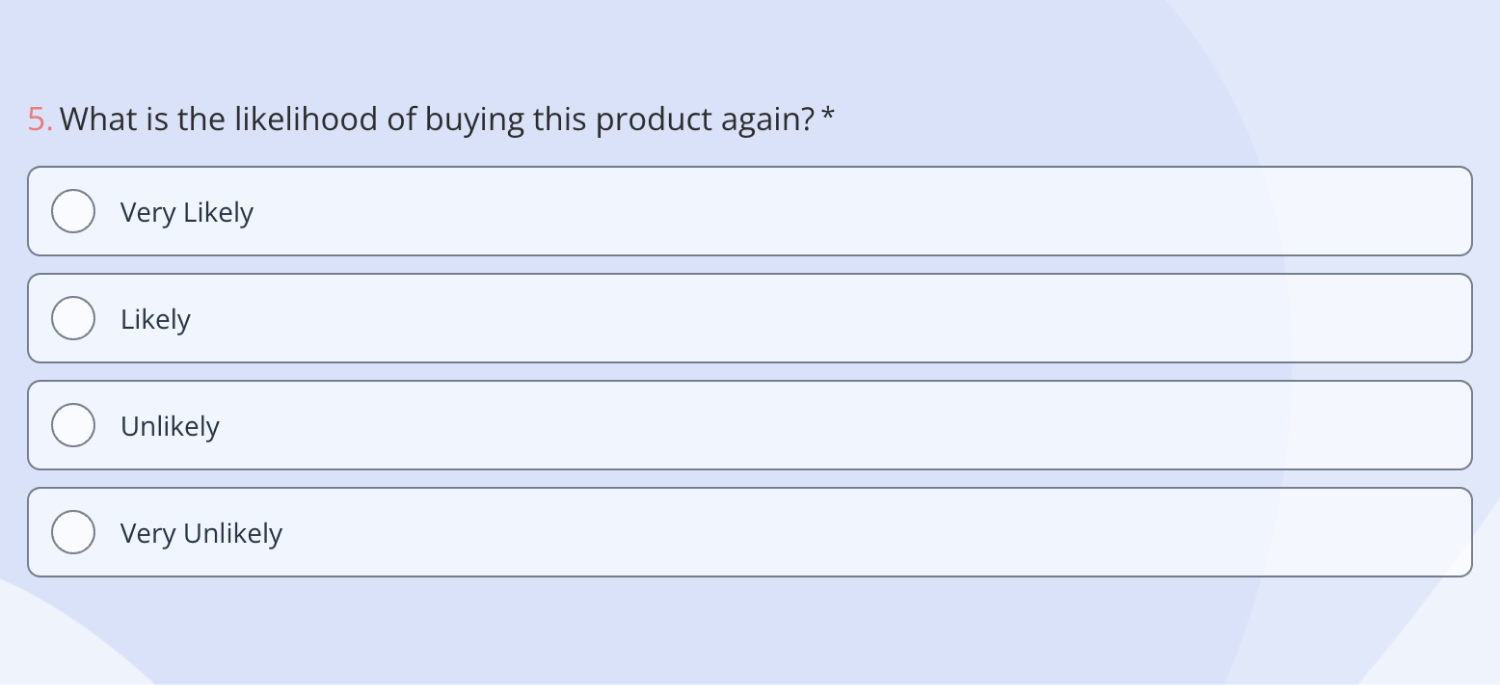
A question example about purchasing behavior
New product market research survey questions
New product market research survey questions are perfect for your company if you plan for a new product. Imagine that you are about to launch a new product. You can take fewer risks if you ask questions about the new product before launching it. So you might need these market research questionnaire questions for your new product:
15. Have you seen a similar product?
16. How likely are you to use this product for your business activities?
17. What do you think is the best feature of this new product?
18. What do you think is the least favorite feature of this new product?
19. Do you find the price reasonable?
20. Are you excited about this product?
21. Overall, from 1-10, how do you rate this new product?
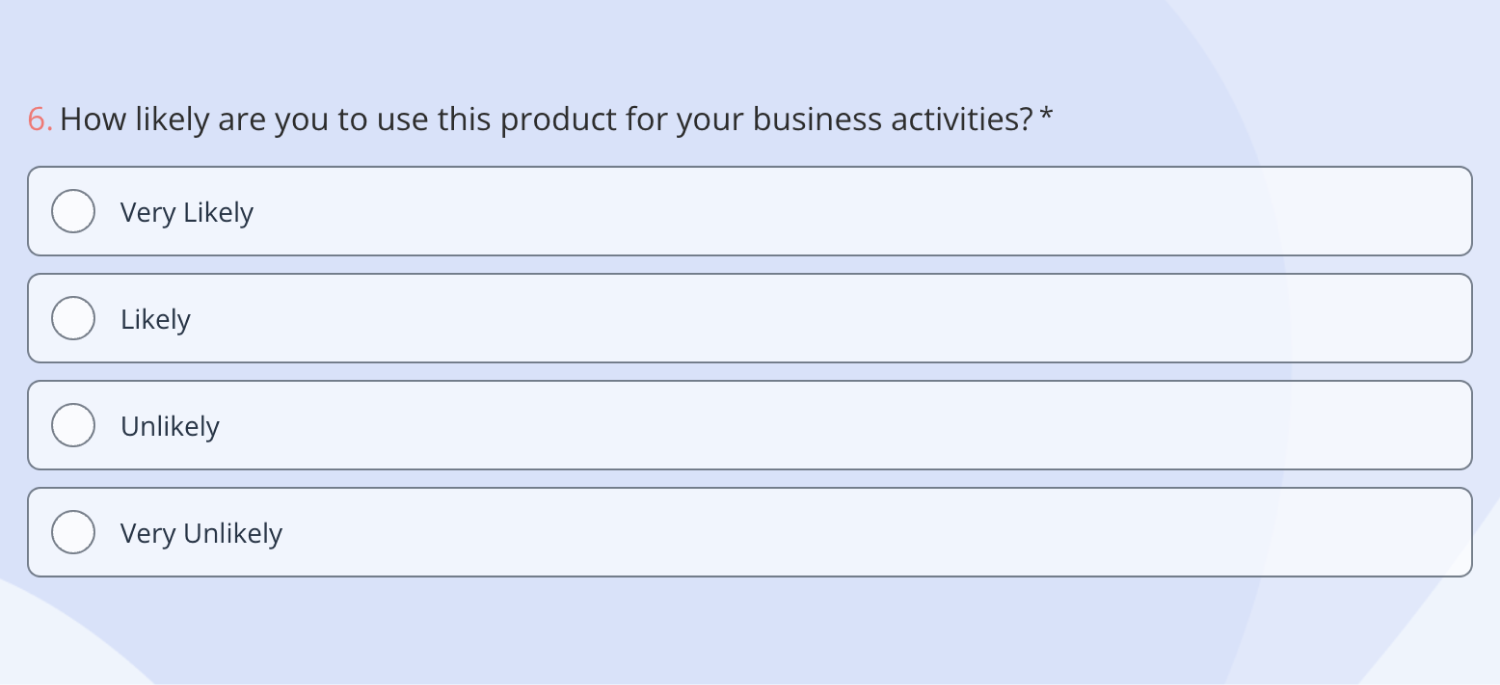
A question example about later use
Social media survey questions for market research
Social media is an excellent way of collecting helpful data from your customers because, today, nearly everybody has a social media account. You can have insightful data as long as you know which platform to use and how to use it. So, here are your social media survey questions for market research:
22. Which social media platforms do you use? ( you can choose more than 1 )
23. In which social media platforms do you spend time the most?
24. Do you follow us on your social media accounts?
25. What do you think about our company’s social media account?
- It's great!
- It could use some improvement.
- I haven't seen it
26. Do you believe we can use social media effectively?
27. What can we do to improve our social media accounts?
- Post regularly
- Run contests and giveaways
- Use relevant hashtags
- Optimize profile information
- Respond to comments
- Collaborate with influencers
28. Which influencers do you relate to us the most?
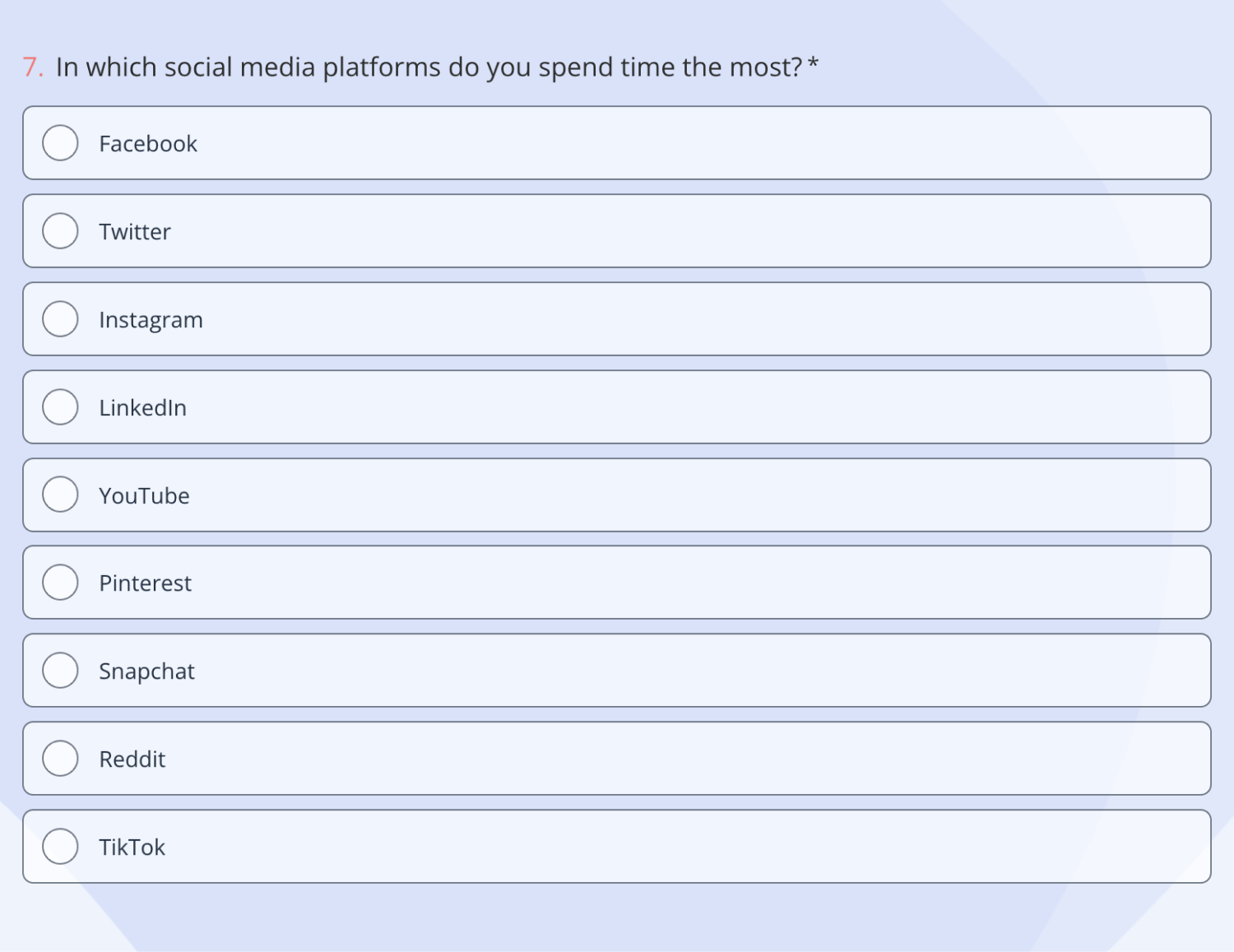
A market research survey question example about social media
Market research questions to ask potential customers
As much as trying to hold your existing customers, you should also try to find potential customers and expand your network. Because only in this way you can grow your business. When you have good market research questions to ask potential customers, as given below, you can easily get what you need:
29. Have you ever heard us before?
30. When you think of our brand, what comes to your mind first?
31. Who is our rival for you?
32. What is your minimum budget?
33. What is your maximum budget?
34. Would you consider choosing our product/service?
35. What are your best aspects, you think?
Market research questions for B2B companies
Just like any sector, B2B companies need to do their best to run market research. As for their market research survey, the questions will be different because they need to aim at businesses directly. If you need them, here are your market research questions for B2B companies:
36 . Who is your ideal customer?
37. What really matters to your ideal customer?
38. Do you think you know your customers?
39. How can you know your customers better?
40. What is your customers’ annual income?
41. What do your customers do in their free time?
42. What attracts your customer?
Demographic questions for your market research survey
Demographic questions allow your company to understand your customer’s background better. Also, if you want to understand the certain characteristics of your target audience, demographic questions are the best option for you. Have a look at these demographic questions for your market research survey:
43. What gender do you identify as?
- Genderfluid
44. How old are you?
- 65 or Above
45. What is your marital status?
46. Can you please specify your ethnicity?
- African American
- Asian American
- Hispanic/Latino
- Native American
- Pacific Islander
- White/Caucasian
47. Where are you located?
- United States
- United Kingdom
48. What is your education level?
- High School
- Associate's Degree
- Bachelor's Degree
- Master's Degree
- Doctorate Degree
49. What is your annual income?
- $0 - $25,000
- $25,001 - $50,000
- $50,001 - $75,000
- $75,001 - $100,000
- $100,001 - $150,000
- $150,001 - $200,000
- $200,001 and above
50. What is your current employment situation?
- Employed full-time
- Employed part-time
- Self-employed
- Not looking for work
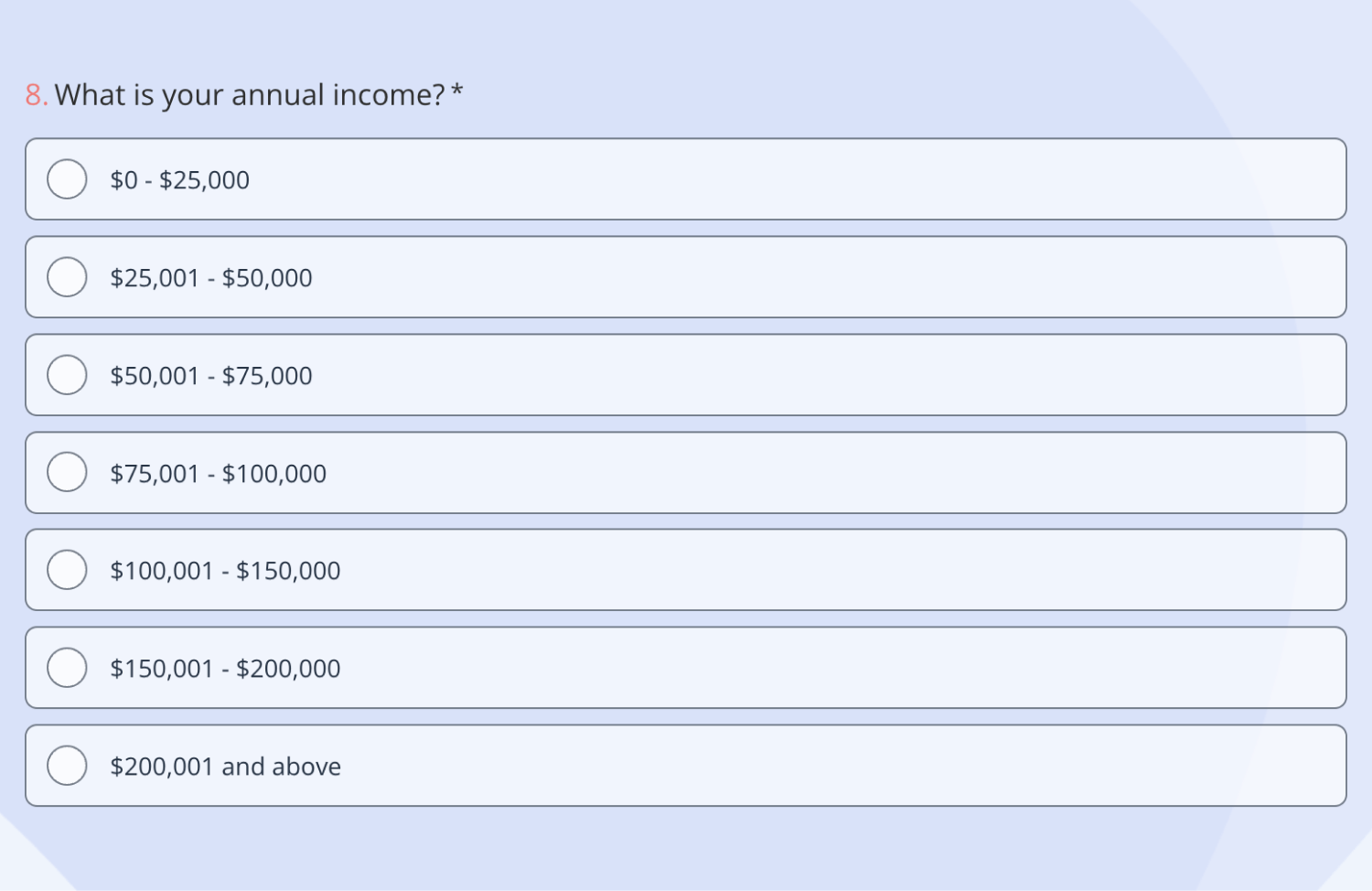
A market research survey question example about income
- How can I create a market research survey?
In order to collect essential data for your market research, if you want to handle it the fastest way, you will need an online form builder. Also, if you want to build your form with lots of options and create just like you wish and want to do all of them for free, there is only one option left: forms.app .
As long as you follow some basic steps, you can easily create your market research survey and here are the steps:
1. Login or create an account
Firstly, you should log in to your existing account if you do not have one; no worries, you can easily and quickly create an account . Also, do not forget that you have the opportunity to log in via Google, Facebook, and Apple accounts.
2. Start from scratch, choose a temple, or generate with AI
You have access to a wide range of options thanks to forms.app . You must begin from scratch if you wish to pick every aspect of your survey. The site offers pre-made market research survey templates if you do not want to spend too much time on it. However, if you stay current with the latest technology, artificial intelligence can create your survey in seconds!
3. Add your market research survey questions
Based on your company’s primary needs and essential requirements, you should choose your market research survey questions very carefully. Each company’s priorities can differ. For that reason, you need to pay attention while adding them.
4. Customize your survey form
In this step, you can easily change and personalize your online survey . To give an example, you can change the size and type of the font, colors, and order of questions, add your brand’s logo, etc.
5. Share your market research survey
In the final step, you can share your survey with your target via many platforms . You can choose the link to be public, limited, or private while sharing. Additionally, you can preview the link to see whether it has any meta titles, descriptions, or images.
- How can I write good market research questions?
One can randomly create market research questions for the survey; however, if you want to be one step ahead of your rivals and be good at writing market research questions, you need to follow the points given below:
- Consider your company’s needs : You need to have a moment and consider what your company needs the most. What are your priorities or urgent needs? Or what are your urgent deficiencies to be covered? After answering these questions, you can create better questions.
- Think like the customer: The key point is listening to your customers and trying to think like them. When you think like them, you can come up with better market research questions and collect more valuable data for your survey.
- Be direct: Questions asked directly are definitely better , instead of asking too many indirect questions or long and complex sentences that might be confusing. So, you need to pay attention at this point.
- Key points to take away
As we have discussed so far, the importance of market research is undeniable. If you want to increase your market share and be more successful in your sector, there are some key points for your company to take away. You should not ignore these points:
- Design of the survey: Do not forget that the more you pay attention to your market research survey design, the more you will seem professional.
- Pay attention to the context: Design is an important factor, but context is the exact reason you run a survey. So, you need to be careful with your questions.
- Check the result: At the end of the survey, checking and analyzing the results is a key point. If you will not do that, there is no need to share the survey, isn’t it?
Now that you have read so far, you know all the critical points about the issue and where to start. Take action now and start finding your own effective data collection methods for market research !
Şeyma is a content writer at forms.app. She loves art and traveling. She is passionate about reading and writing. Şeyma has expertise in surveys, survey questions, giveaways, statistics, and online forms.
- Market Research
- Form Features
- Data Collection
Table of Contents
Related posts.
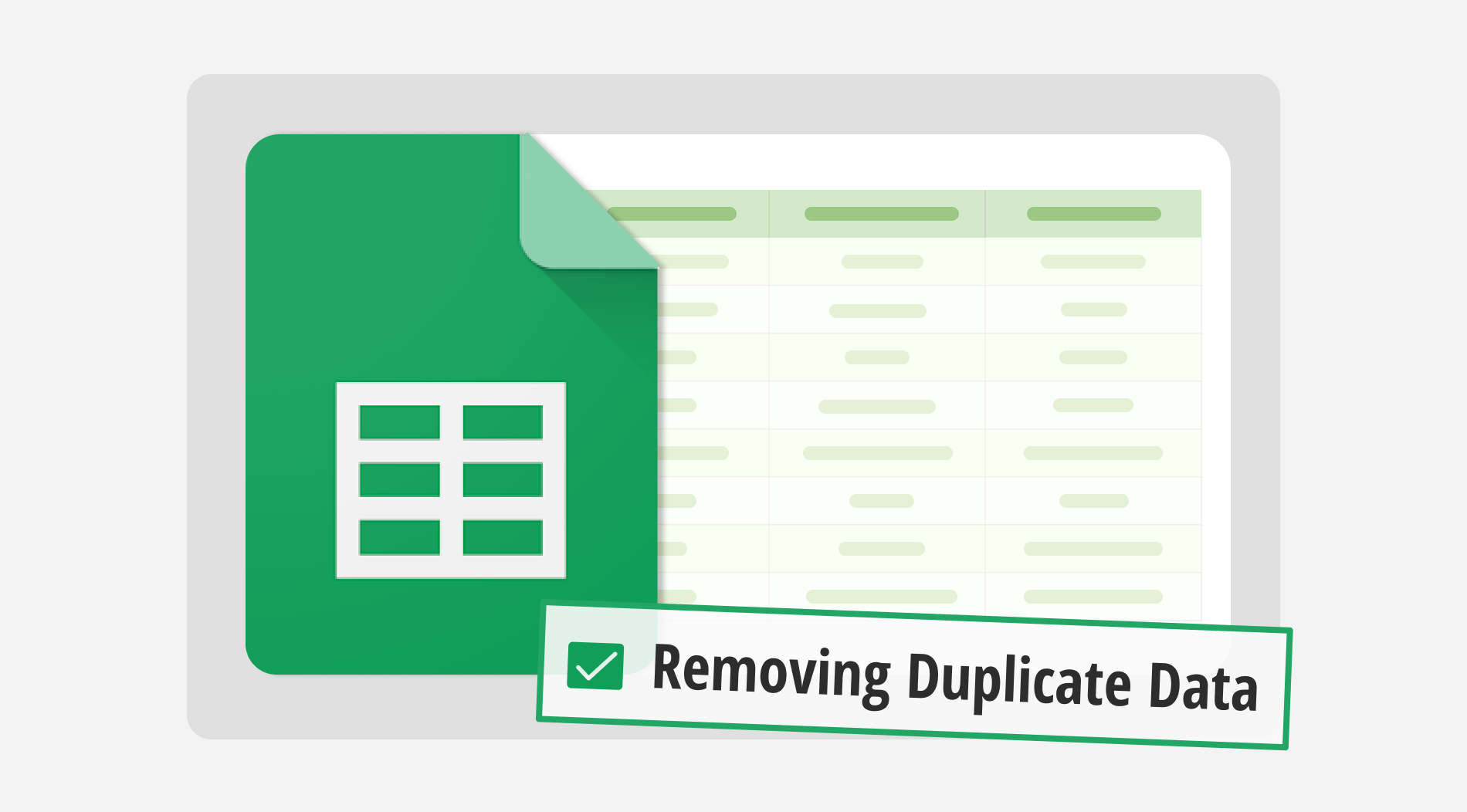
Removing duplicate data from Google Sheets (Full guide)
Behçet Beyazçiçek
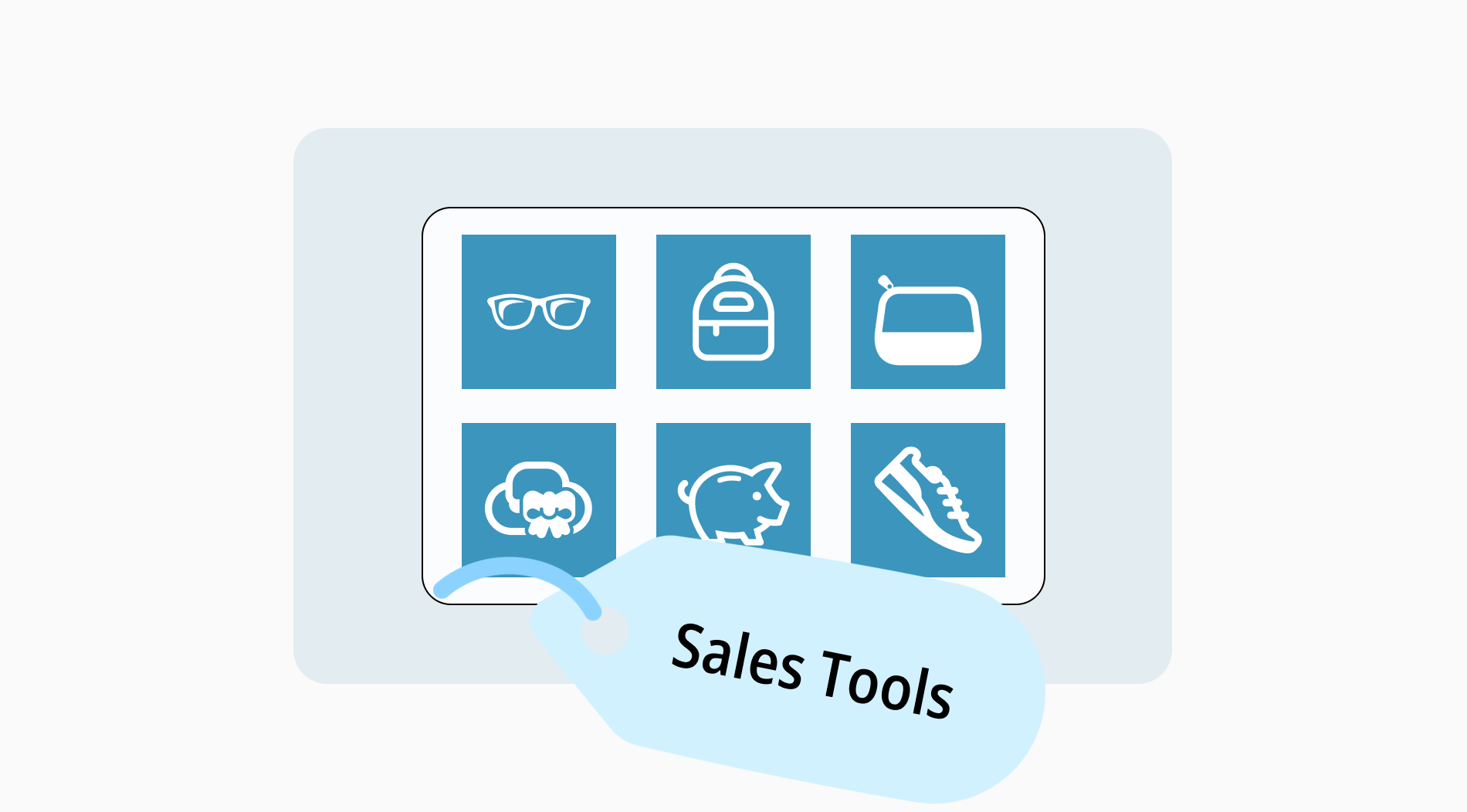
20+ Best sales tools for your business in 2024
Yulia Guseva
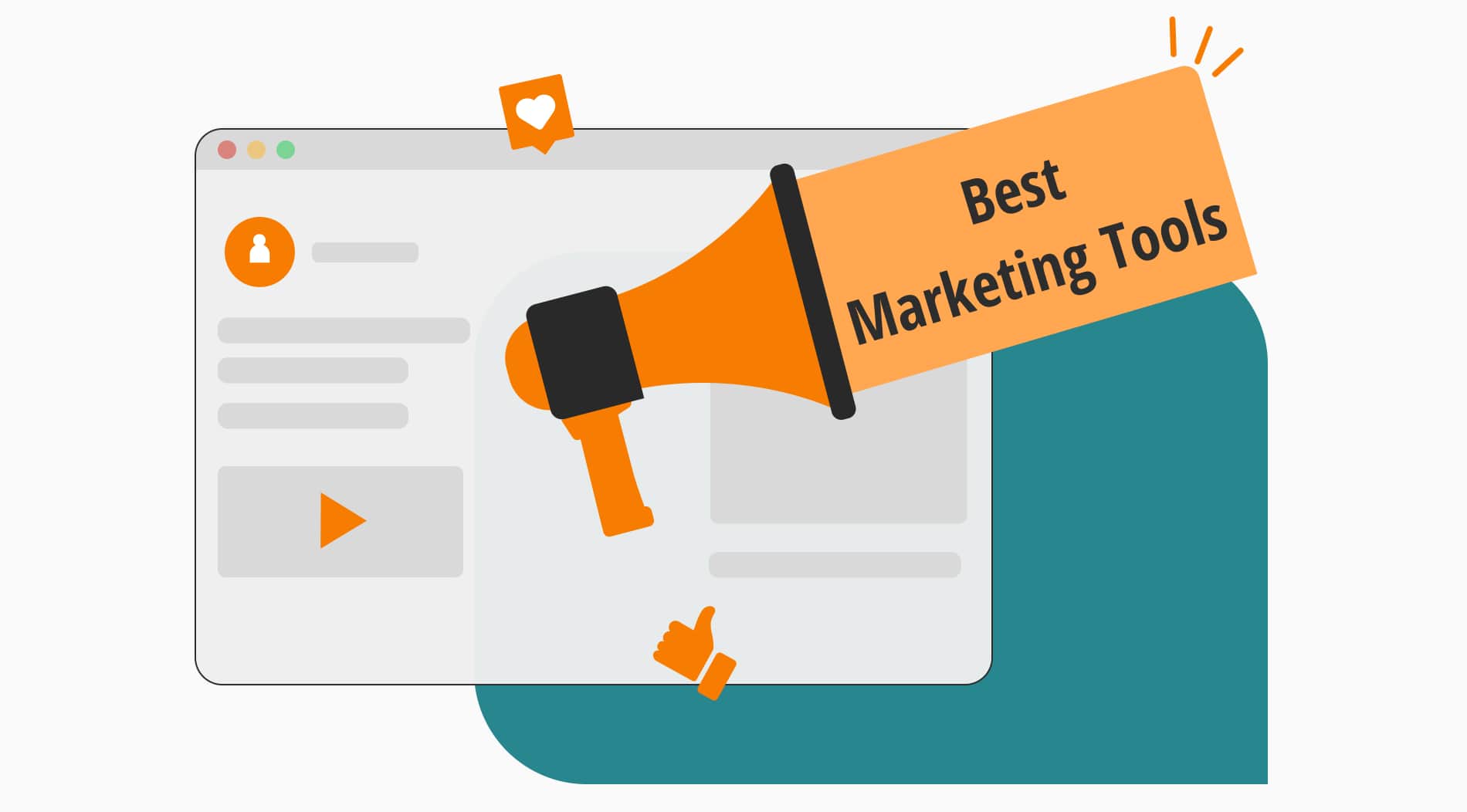
20+ Best marketing tools to use in 2024
Free! 5-Day Challenge - Find & Validate Your Ecommerce Idea!
- Skip to primary navigation
- Skip to main content
A magazine for young entrepreneurs
The best advice in entrepreneurship
Subscribe for exclusive access, the complete guide to market research: what it is, why you need it, and how to do it.

Written by Mary Kate Miller | June 1, 2021
Comments -->

Get real-time frameworks, tools, and inspiration to start and build your business. Subscribe here
Market research is a cornerstone of all successful, strategic businesses. It can also be daunting for entrepreneurs looking to launch a startup or start a side hustle . What is market research, anyway? And how do you…do it?
We’ll walk you through absolutely everything you need to know about the market research process so that by the end of this guide, you’ll be an expert in market research too. And what’s more important: you’ll have actionable steps you can take to start collecting your own market research.
What Is Market Research?
Market research is the organized process of gathering information about your target customers and market. Market research can help you better understand customer behavior and competitor strengths and weaknesses, as well as provide insight for the best strategies in launching new businesses and products. There are different ways to approach market research, including primary and secondary research and qualitative and quantitative research. The strongest approaches will include a combination of all four.
“Virtually every business can benefit from conducting some market research,” says Niles Koenigsberg of Real FiG Advertising + Marketing . “Market research can help you piece together your [business’s] strengths and weaknesses, along with your prospective opportunities, so that you can understand where your unique differentiators may lie.” Well-honed market research will help your brand stand out from the competition and help you see what you need to do to lead the market. It can also do so much more.
The Purposes of Market Research
Why do market research? It can help you…
- Pinpoint your target market, create buyer personas, and develop a more holistic understanding of your customer base and market.
- Understand current market conditions to evaluate risks and anticipate how your product or service will perform.
- Validate a concept prior to launch.
- Identify gaps in the market that your competitors have created or overlooked.
- Solve problems that have been left unresolved by the existing product/brand offerings.
- Identify opportunities and solutions for new products or services.
- Develop killer marketing strategies .
What Are the Benefits of Market Research?
Strong market research can help your business in many ways. It can…
- Strengthen your market position.
- Help you identify your strengths and weaknesses.
- Help you identify your competitors’ strengths and weaknesses.
- Minimize risk.
- Center your customers’ experience from the get-go.
- Help you create a dynamic strategy based on market conditions and customer needs/demands.
What Are the Basic Methods of Market Research?
The basic methods of market research include surveys, personal interviews, customer observation, and the review of secondary research. In addition to these basic methods, a forward-thinking market research approach incorporates data from the digital landscape like social media analysis, SEO research, gathering feedback via forums, and more. Throughout this guide, we will cover each of the methods commonly used in market research to give you a comprehensive overview.
Primary vs. Secondary Market Research
Primary and secondary are the two main types of market research you can do. The latter relies on research conducted by others. Primary research, on the other hand, refers to the fact-finding efforts you conduct on your own.
This approach is limited, however. It’s likely that the research objectives of these secondary data points differ from your own, and it can be difficult to confirm the veracity of their findings.
Primary Market Research
Primary research is more labor intensive, but it generally yields data that is exponentially more actionable. It can be conducted through interviews, surveys, online research, and your own data collection. Every new business should engage in primary market research prior to launch. It will help you validate that your idea has traction, and it will give you the information you need to help minimize financial risk.
You can hire an agency to conduct this research on your behalf. This brings the benefit of expertise, as you’ll likely work with a market research analyst. The downside is that hiring an agency can be expensive—too expensive for many burgeoning entrepreneurs. That brings us to the second approach. You can also do the market research yourself, which substantially reduces the financial burden of starting a new business .
Secondary Market Research
Secondary research includes resources like government databases and industry-specific data and publications. It can be beneficial to start your market research with secondary sources because it’s widely available and often free-to-access. This information will help you gain a broad overview of the market conditions for your new business.
Identify Your Goals and Your Audience
Before you begin conducting interviews or sending out surveys, you need to set your market research goals. At the end of your market research process, you want to have a clear idea of who your target market is—including demographic information like age, gender, and where they live—but you also want to start with a rough idea of who your audience might be and what you’re trying to achieve with market research.
You can pinpoint your objectives by asking yourself a series of guiding questions:
- What are you hoping to discover through your research?
- Who are you hoping to serve better because of your findings?
- What do you think your market is?
- Who are your competitors?
- Are you testing the reception of a new product category or do you want to see if your product or service solves the problem left by a current gap in the market?
- Are you just…testing the waters to get a sense of how people would react to a new brand?
Once you’ve narrowed down the “what” of your market research goals, you’re ready to move onto how you can best achieve them. Think of it like algebra. Many math problems start with “solve for x.” Once you know what you’re looking for, you can get to work trying to find it. It’s a heck of a lot easier to solve a problem when you know you’re looking for “x” than if you were to say “I’m gonna throw some numbers out there and see if I find a variable.”

How to Do Market Research
This guide outlines every component of a comprehensive market research effort. Take into consideration the goals you have established for your market research, as they will influence which of these elements you’ll want to include in your market research strategy.
Secondary Data
Secondary data allows you to utilize pre-existing data to garner a sense of market conditions and opportunities. You can rely on published market studies, white papers, and public competitive information to start your market research journey.
Secondary data, while useful, is limited and cannot substitute your own primary data. It’s best used for quantitative data that can provide background to your more specific inquiries.
Find Your Customers Online
Once you’ve identified your target market, you can use online gathering spaces and forums to gain insights and give yourself a competitive advantage. Rebecca McCusker of The Creative Content Shop recommends internet recon as a vital tool for gaining a sense of customer needs and sentiment. “Read their posts and comments on forums, YouTube video comments, Facebook group [comments], and even Amazon/Goodreads book comments to get in their heads and see what people are saying.”
If you’re interested in engaging with your target demographic online, there are some general rules you should follow. First, secure the consent of any group moderators to ensure that you are acting within the group guidelines. Failure to do so could result in your eviction from the group.
Not all comments have the same research value. “Focus on the comments and posts with the most comments and highest engagement,” says McCusker. These high-engagement posts can give you a sense of what is already connecting and gaining traction within the group.
Social media can also be a great avenue for finding interview subjects. “LinkedIn is very useful if your [target customer] has a very specific job or works in a very specific industry or sector. It’s amazing the amount of people that will be willing to help,” explains Miguel González, a marketing executive at Dealers League . “My advice here is BE BRAVE, go to LinkedIn, or even to people you know and ask them, do quick interviews and ask real people that belong to that market and segment and get your buyer persona information first hand.”
Market research interviews can provide direct feedback on your brand, product, or service and give you a better understanding of consumer pain points and interests.
When organizing your market research interviews, you want to pay special attention to the sample group you’re selecting, as it will directly impact the information you receive. According to Tanya Zhang, the co-founder of Nimble Made , you want to first determine whether you want to choose a representative sample—for example, interviewing people who match each of the buyer persona/customer profiles you’ve developed—or a random sample.
“A sampling of your usual persona styles, for example, can validate details that you’ve already established about your product, while a random sampling may [help you] discover a new way people may use your product,” Zhang says.
Market Surveys
Market surveys solicit customer inclinations regarding your potential product or service through a series of open-ended questions. This direct outreach to your target audience can provide information on your customers’ preferences, attitudes, buying potential, and more.
Every expert we asked voiced unanimous support for market surveys as a powerful tool for market research. With the advent of various survey tools with accessible pricing—or free use—it’s never been easier to assemble, disseminate, and gather market surveys. While it should also be noted that surveys shouldn’t replace customer interviews , they can be used to supplement customer interviews to give you feedback from a broader audience.
Who to Include in Market Surveys
- Current customers
- Past customers
- Your existing audience (such as social media/newsletter audiences)
Example Questions to Include in Market Surveys
While the exact questions will vary for each business, here are some common, helpful questions that you may want to consider for your market survey. Demographic Questions: the questions that help you understand, demographically, who your target customers are:
- “What is your age?”
- “Where do you live?”
- “What is your gender identity?”
- “What is your household income?”
- “What is your household size?”
- “What do you do for a living?”
- “What is your highest level of education?”
Product-Based Questions: Whether you’re seeking feedback for an existing brand or an entirely new one, these questions will help you get a sense of how people feel about your business, product, or service:
- “How well does/would our product/service meet your needs?”
- “How does our product/service compare to similar products/services that you use?”
- “How long have you been a customer?” or “What is the likelihood that you would be a customer of our brand?
Personal/Informative Questions: the deeper questions that help you understand how your audience thinks and what they care about.
- “What are your biggest challenges?”
- “What’s most important to you?”
- “What do you do for fun (hobbies, interests, activities)?”
- “Where do you seek new information when researching a new product?”
- “How do you like to make purchases?”
- “What is your preferred method for interacting with a brand?”
Survey Tools
Online survey tools make it easy to distribute surveys and collect responses. The best part is that there are many free tools available. If you’re making your own online survey, you may want to consider SurveyMonkey, Typeform, Google Forms, or Zoho Survey.
Competitive Analysis
A competitive analysis is a breakdown of how your business stacks up against the competition. There are many different ways to conduct this analysis. One of the most popular methods is a SWOT analysis, which stands for “strengths, weaknesses, opportunities, and threats.” This type of analysis is helpful because it gives you a more robust understanding of why a customer might choose a competitor over your business. Seeing how you stack up against the competition can give you the direction you need to carve out your place as a market leader.
Social Media Analysis
Social media has fundamentally changed the market research landscape, making it easier than ever to engage with a wide swath of consumers. Follow your current or potential competitors on social media to see what they’re posting and how their audience is engaging with it. Social media can also give you a lower cost opportunity for testing different messaging and brand positioning.
SEO Analysis and Opportunities
SEO analysis can help you identify the digital competition for getting the word out about your brand, product, or service. You won’t want to overlook this valuable information. Search listening tools offer a novel approach to understanding the market and generating the content strategy that will drive business. Tools like Google Trends and Awario can streamline this process.
Ready to Kick Your Business Into High Gear?
Now that you’ve completed the guide to market research you know you’re ready to put on your researcher hat to give your business the best start. Still not sure how actually… launch the thing? Our free mini-course can run you through the essentials for starting your side hustle .

About Mary Kate Miller
Mary Kate Miller writes about small business, real estate, and finance. In addition to writing for Foundr, her work has been published by The Washington Post, Teen Vogue, Bustle, and more. She lives in Chicago.
Related Posts

How to Find Influencers: 6 Ways to Discover Your Perfect Brand Advocate
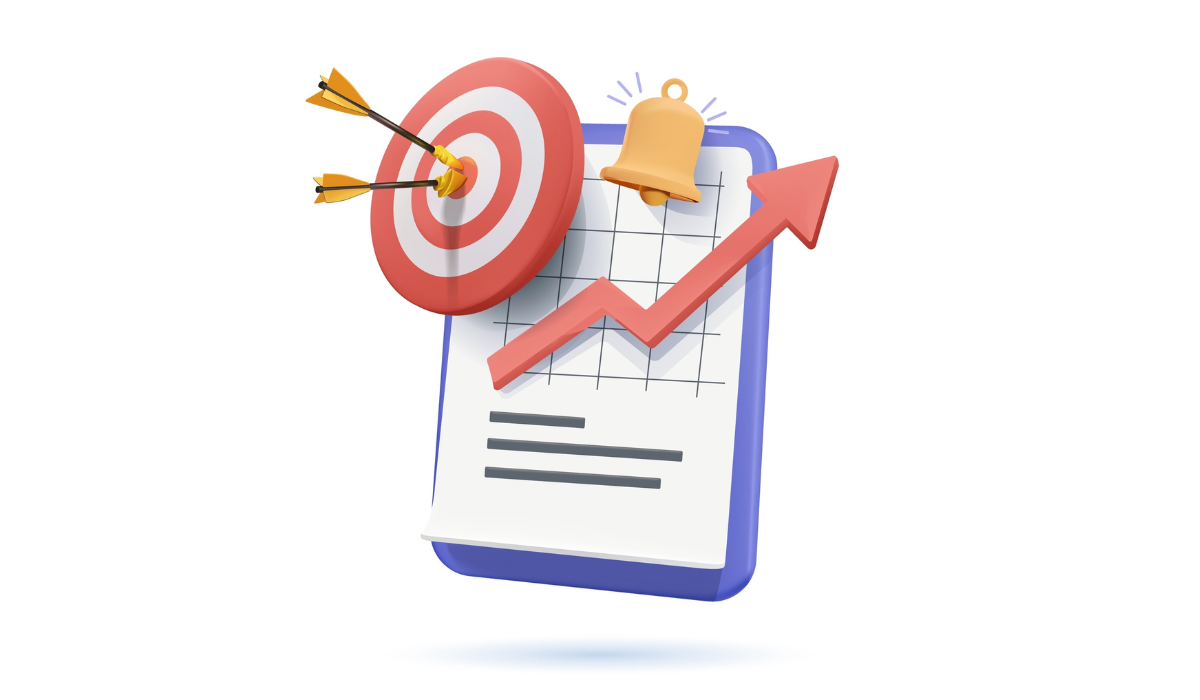
How to Create a Marketing Plan In 2024 (Template + Examples)

What Is UGC and Why It’s a Must-Have for Your Brand
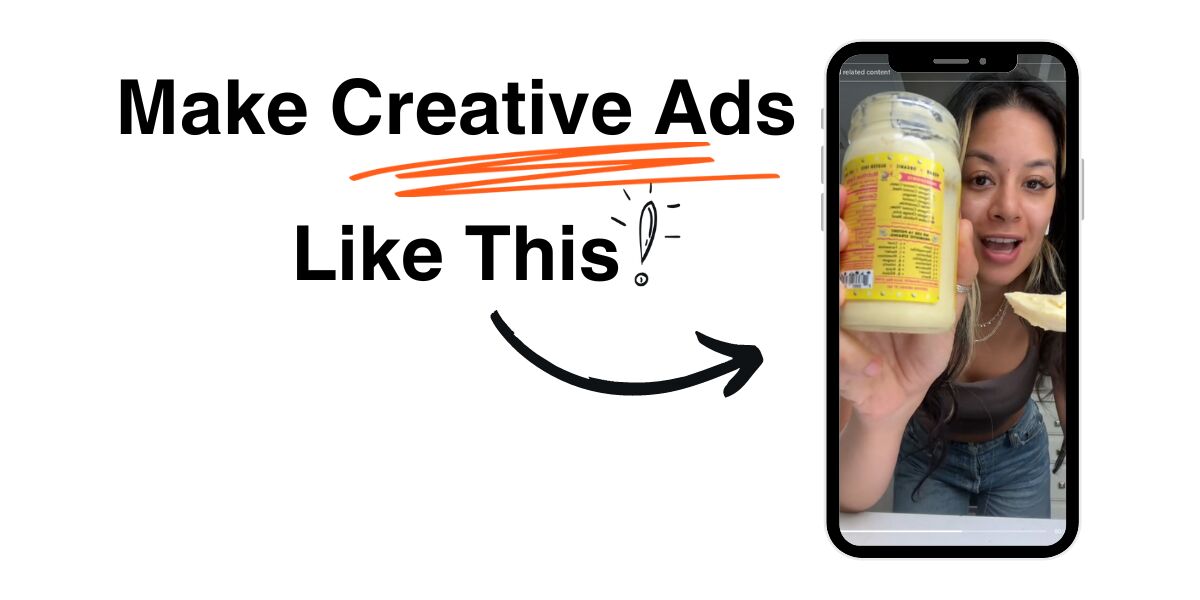
Ad Expert Phoenix Ha on How to Make Creative Ads without Breaking Your Budget

14 Punchy TikTok Marketing Strategies to Amplify Your Growth

How to Grow Your YouTube Channel and Gain Subscribers Quickly

How to Get More Views on Snapchat with These 12 Tactics

12 Instagram Growth Hacks For More Engaged Followers (Without Running Ads)
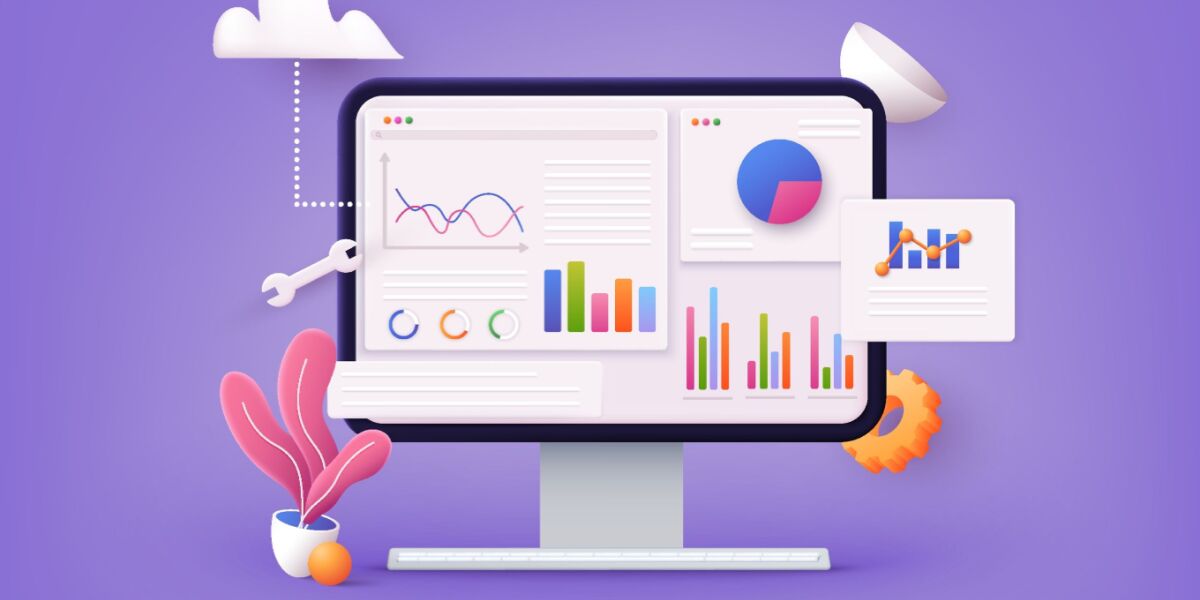
Create Viral Infographics That Boost Your Organic Traffic
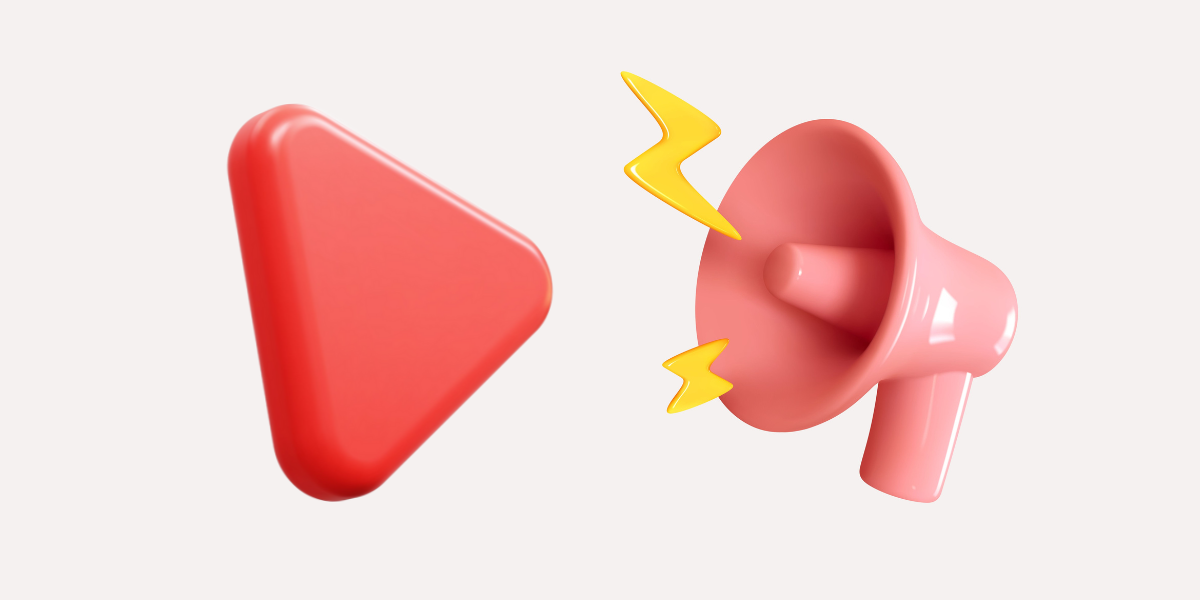
How to Create a Video Sales Letter (Tips and Tricks from a 7-Figure Copywriter)

How to Write a Sales Email That Converts in 2024

What Is a Media Kit: How to Make One in 2024 (With Examples)

Namestorming: How to Choose a Brand Name in 20 Minutes or Less

10 Ways to Increase Brand Awareness without Increasing Your Budget

What Is a Content Creator? A Deep Dive Into This Evolving Industry
FREE TRAINING FROM LEGIT FOUNDERS
Actionable Strategies for Starting & Growing Any Business.
Don't Miss Out! Register Free For The 5-Day Challenge.
- 5 Days. 7-Figure Founders LIVE.
- Walk Away With A Winning Idea.

- Skip to main content
- Skip to primary sidebar
- Skip to footer
- QuestionPro

- Solutions Industries Gaming Automotive Sports and events Education Government Travel & Hospitality Financial Services Healthcare Cannabis Technology Use Case AskWhy Communities Audience Contactless surveys Mobile LivePolls Member Experience GDPR Positive People Science 360 Feedback Surveys
- Resources Blog eBooks Survey Templates Case Studies Training Help center
Home Market Research
Market Research Questions: Types and how to best use them


What is Market Research?
Market research is the process of collecting, analyzing and examining information about a market, related to a product or service that is offered by a certain brand.
Market research has evolved through the years, the internet has now replaced the conventional face-to-face interaction or personal interviews to gather first-hand information. They are primarily categorized into two types: Quantitative Market Research and Qualitative Market Research . Today, the best way to conduct market research is through surveys or questionnaires: ask the right market research questions!
LEARN ABOUT: Market research vs marketing research
Accurate information is the pillar of any successful business because it provides the perspective of new and existing customers and business competition. It helps business or organization owners to determine if the resources and financial investments that they are aligning with a new product or service will reap any profitability in future or not.
LEARN ABOUT: Open-Ended Questions
Fundamental Levels of Measurement in Market Research Questions
There are 4 basic fundamental measurement scales, n ominal, ordinal, interval and ratio ; that help arrange data collected in market research for statistical data analysis purposes. These are used to capture data in the form of surveys and questionnaires, where each being a multiple-choice question . In statistical analysis, distinguishing between categorical data and numerical data is essential, as categorical data involves distinct categories or labels, while numerical data consists of measurable quantities.
LEARN ABOUT: Level of Analysis
Each scale is an incremental level of measurement, meaning, each scale fulfills the function of the previous scale and all survey question scales such as Likert, Semantic Differential, Dichotomous questions etc, are the derivation of this these 4 fundamental levels of variable measurement. Before we discuss all four levels of measurement scales in details, with examples, let’s have a quick brief look at what these scales represent.
- Nominal Scale – 1st Level of Measurement
Nominal Scale , also called the categorical variable scale, is defined as a scale used for labeling variables into distinct classifications and doesn’t involve a quantitative value or order. The options are assigned a number that can be decided by the researcher but changing the order of the options doesn’t impact the scale as the variables are independent of the options. Nominal data can never be quantified but the data analysis can be conducted by asking an open-ended question and coding the subsequent responses or having pre-coded multiple choice question types . Examples of a nominal scale are gender, place of work or residence, preference of pizza toppings, etc.
- Ordinal Scale – 2nd Level of Measurement
Ordinal Scale is the 2nd level of measurement that reports the ranking and ordering of the data without actually establishing the degree of variation between them. Examples of the ordinal scale satisfaction, happiness and grades. This makes the Likert Scale a perfect example of an ordinal scale as it provides options on the basis of lowest to highest but doesn’t provide quantifiable difference between two options. Ordinal scale data is generally represented in a tabular form to allow for easy further market research analysis.
Learn more: Nominal Scale vs Ordinal Scale
- Interval Scale – 3rd Level of Measurement
The Interval Scale is defined as a numerical scale where the order of the variables is known as well as the interval between these variables. In other words, the variables are measured in actuals and not as a relative manner, where the presence of zero is arbitrary. For example, temperature, income, IQ etc. can be defined by the interval scale. Net Promoter Score, Semantic Differential Scale, Bipolar Matrix Table etc. are the most-used interval scale examples. The interval scale data can be added or subtracted but cannot be divided or multiplied. Since interval data is a quantitative analysis data type, multiple data analysis methods like SWOT analysis , TURF analysis , conjoint analysis and trend analysis can be conducted.
- Ratio Scale – 4th Level of Measurement
The Ratio Scale is the penultimate measurement scale that has the features of all the above 3 scales along with the presence of an absolute zero. It is calculated by assuming that the variables have an option for zero, the difference between the two variables is the same and there is a specific order between the options. Some examples of ratio scale are weight, height, time etc. where there is no presence of a negative value. The ratio data scale values can be added, subtracted, divided and multiplied and a unique statistical analysis is possible for ratio data.
Learn more: Interval Scale vs Ratio Scale
Types of Market Research Questions: 10 Market Research Question Types with Examples
The fundamental of market research is asking the right questions to collect the right data, be it qualitative or quantitative data . Qualitative data can be collected by focus groups, interviews, longitudinal studies and more. Quantitative data can be collected through surveys, questionnaires and interviews . Some of the most widely used question types are:
Market Research Questions: Open-ended or Close-ended?
A good conversation involves asking the right questions to know more. Similarly, in market research, there is a lot of value in asking questions to get the most appropriate information.
So what are the types of question should one ask to get an apt response: open-ended questions or closed ended questions ?
Both these market research question types have their fair share of advantage, but in this section, we shall focus more on open ended questions.
Deploying a questionnaire or face to face interviews open ended questions generate better responses. This market research question type lets the respondent answer the question in depth and gives them the liberty to respond without inhibition, contrary to closed ended questions where the respondents to need to choose from the already existing answer options.
However, it is often seen that closed-ended and open-ended questions are used in conjunction. It’s easier to answer a Yes/No question, but if it is followed by an open ended question then you’ll often get better participation from your respondents.
Closed-Ended vs Open- Ended Market Research Questions
| Are you satisfied with our product? | How satisfied or dissatisfied are you with our product? |
| Is the product useful for you? | How useful do you think you think this product is? Kindly share your feedback. |
| Do you think you would use this product regularly? | How might this product change the way you things on a daily basis? |
| Is this product easy to use? | What was the most confusing about the product? |
| Was the given information regarding the product sufficient? | Would you like to know more about the product? |
How to best use the Market Research Questions?
It’s certainly not an easy task to know what your customers think. But you will be able to better connect with them through the right market research questions. To make sure you’re getting the most responses to your market research questions follow these tips.
1. Understand your target audience: You need you know why you are reaching out to your respondents. Knowing about their demographics will help you frame your market research questions better.
2. Don’t bug your respondents: Make sure you send survey or questionnaires to your respondents at intervals. Don’t bug your respondents to a point where they stop responding to you.
3. It’s all about great timing: Make sure your surveys are sensibly timed and has appropriate questions, for example, it’s always good to send a feedback survey to a customer after he has made a purchase with you so that he/she is able to give a better feedback about their experience.
4. Make your respondents feel valuable: Let your respondents know, their responses to the research questions are valuable and will be put to practice and that their suggestions will be implemented to improve the services or the product.
LEARN ABOUT: Product Survey Questions
MORE LIKE THIS
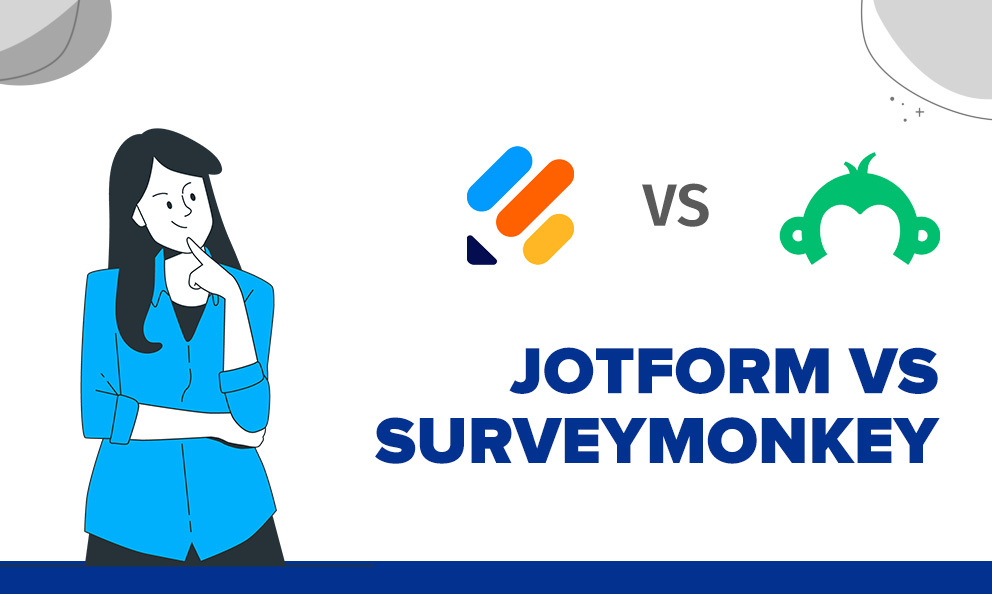
Jotform vs SurveyMonkey: Which Is Best in 2024
Aug 15, 2024
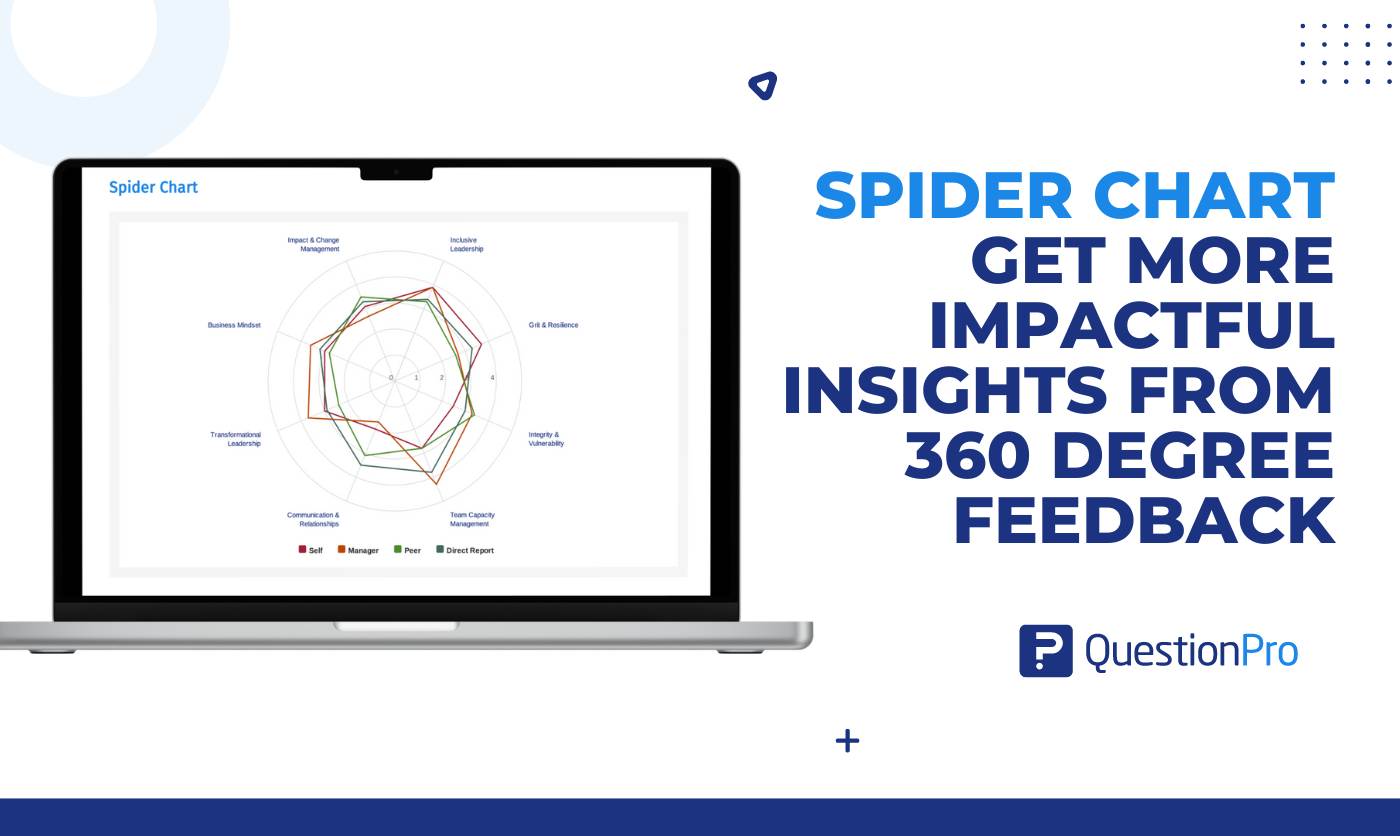
360 Degree Feedback Spider Chart is Back!
Aug 14, 2024

Jotform vs Wufoo: Comparison of Features and Prices
Aug 13, 2024

Product or Service: Which is More Important? — Tuesday CX Thoughts
Other categories.
- Academic Research
- Artificial Intelligence
- Assessments
- Brand Awareness
- Case Studies
- Communities
- Consumer Insights
- Customer effort score
- Customer Engagement
- Customer Experience
- Customer Loyalty
- Customer Research
- Customer Satisfaction
- Employee Benefits
- Employee Engagement
- Employee Retention
- Friday Five
- General Data Protection Regulation
- Insights Hub
- Life@QuestionPro
- Market Research
- Mobile diaries
- Mobile Surveys
- New Features
- Online Communities
- Question Types
- Questionnaire
- QuestionPro Products
- Release Notes
- Research Tools and Apps
- Revenue at Risk
- Survey Templates
- Training Tips
- Tuesday CX Thoughts (TCXT)
- Uncategorized
- What’s Coming Up
- Workforce Intelligence
Toll Free : 1 800 371 6224 | US : +1 650 204 3191 | UK : +44 8082 803 175 | AU : +61 1800 247 724 | Philippine Local No : 63-2-83966000
- 24 7 Answering Service
- Virtual Receptionist Service
- Phone Answering Service
- Customer Support Outsourcing
- Outsourced Technical Support
- Omnichannel Contact Center
- Multilingual Call Center Services
- Telemarketing Services
- Lead Generation Services
- Appointment Setting Services
- Cold Calling Services
- Outsource Telesales
- Market Research Services
- Survey Processing Services
- Accounts Receivable Services
- Accounts Payable Services
- Back Office Services
- Call Center Outsourcing Services
- Certificate Intelligent Document Processing
- Community Moderation Services
- Data Management Services
- Debt Collection Services
- Loan Processing Call Center
- Outsource Form Processing Services
- Recruitment Process Outsourcing
- Staff Leasing Services
- Virtual Assistant Services
- Healthcare BPO Support Services
- Legal Outsourcing Services
- BPO Real Estate Services
- Insurance BPO Services
- Retail Outsourcing Services
- eCommerce Outsourcing Service
- Mobile App Customer Support
- HR Outsourcing Services
- 3D Rendering Services
- Travel Outsourcing Services
- Telecom BPO Services
- Education Process Outsourcing
- eServices Call Center
- Sample Recordings
- Message From The CEO
- Management Team

- 24 / 7 Answering Service
- eCommerce Outsourcing Services

Benefits of Sales Team Outsourcing Every Business Must Know

Philippines Telemarketing Lead Generation For B2B Partners
Home | Blog | 79 Market Research Questions For Better Results
79 Market Research Questions For Better Results
By Magellan Solutions
Updated on June 3, 2024

Schedule a FREE call with our outsourcing expert now and get a precise quotation that meets your requirements. Don't wait - get started today!
Valuable answers come from practical questions.
In this article, you’ll learn about the top market research questions you can ask to obtain valuable insights from your potential and existing market.
What you’ll learn:
What is market research, how to write market research questions, examples of market research questions.
- For new businesses
- For a new product
- For existing customers
- For potential customers
- For competitive analysis
- For customer service improvement
Market research is the systematic process of getting and analyzing feedback from different market segments. Using this approach, you can identify the potential of your product or service when offered to a specific consumer demographic.
In other words, it helps you find the right customers to patronize your business. It also enables you to determine the pain points of your target market. Through this, you can develop or improve products or services that can resolve the struggles of your existing customers or target audience.
It has three main methods:
- Online survey – This tool can gather information from a sample population online. To help you get started, check out some of the methods for conducting surveys:- If you are starting a business, you can begin by utilizing email and social media to send survey questions or polls to your target market.- You can also embed it into your website or app, but since it is a reactive method, the chances of getting feedback are lower.- If you think you have the budget for it, you can send it to paid survey sites to get higher response rates.
- Phone interview – Have you experienced receiving cold calls from certain companies asking about your opinion on a particular product or service? If yes, then you’re probably familiar with market research. A phone interview is a proactive way of conducting market research surveys. It guarantees you a faster and more accurate response from your target demographics. Some companies outsource to a survey call center to expand their reach while saving time and money.
- Face-to-face interviews – This is the traditional way of conducting customer surveys. It is one of the best ways to get actual, first-hand opinions. Unlike the first two methods, it requires you to go out to the street and into the houses of your sample respondents. Here, you can encourage consumers to participate by giving freebies or samplers. While this is an excellent way to build personal relationships with your ideal customers, it is not as efficient as phone interviews and online surveys.
Aside from gathering first-hand consumer data, you can also keep track of economic trends .
Secondary information provided by existing sources enables you to kick-start your market research. It gives general and quantifiable data on industry trends, demographics, and potential competitors.
Some of the best secondary information sources include government census data, statistics and research reports published by independent market research firms, and business news.
It’s easy to think of and write questions right off the bat. But first, make sure you’re square on the following details:
- What is the problem you want to solve?
- What are your goals/objectives?
- Who is your target audience?
From there, you can start brainstorming questions that would provide insightful information for your marketing, sales, and research and development departments.
Here are some things you can consider that will add depth and dimension to your market research process:
- Demand is the number of products consumers are willing to purchase at any given time.
- Market size – the number of potential consumers within a specific market.
- Customer demographics – any given sector of a population segmented using different factors such as age, gender, occupation, income, location, etc.
- Location – the place where the target market resides.
- Market saturation – the number of similar products available to target customers.
- Economic indicators – any economic activity in the location of your business that is presented in metric format.
- Pricing – the cost of products or services based on target consumers’ economic status and competitors’ current pricing.
Once you’ve listed enough questions based on some of these elements, the next step is to select questions that bring you closer to your objectives. Make sure to remove those that won’t give enough value.
While answering those questions, create a clear picture or a registry of the possible target audience response. Ask only what is necessary to prevent your respondents from getting bored. Remember that if it takes too long, they might get triggered to answer questions hastily.
Also, keep your market research process simple. Through this, you will not only keep the attention of your respondents, but it will also enable you to obtain valuable answers.
Do you still find yourself struggling to come up with appropriate market research questions? If yes, check out these examples and carefully select what you need.
Market research questions for new businesses
If you’re opening a new business, it pays to gather extensive information about the industry, market size, target audience’s buying behaviors, competitors, and competitive advantage.
- Who are your target customers?
- What are the core problems of your customers?
- What is your product or service?
- How can your product or service solve the problems of your customers?
- Does your product fit into the current market?
- Is it possible to create a new market for your product?
- What is the current market size? What is the potential size of the market?
- Will the market size grow or contract? Why?
- What are the buying habits in the market? How can we exploit them?
- What are the existing segments of the market?
- In which segments do you plan to compete?
- Which of the segments are growing, and which are contracting?
- Who are your direct competitors? What are their strategies for attracting customers?
- What is your competitive advantage?
- Where do you plan to establish your business?
- What is the current economic status of your target customers from that location?
- How much do you plan to charge your customers for availing of your products or services?
- How much are you going to spend on customer acquisition?
When starting a new business, position yourself as an expert. This means having in-depth knowledge about your customers, the industry, the market trends, and competitors.
It is essential to curate questions that can show you opportunities to succeed. Assess your edge over your competitors. For example, you can ask your target market how your competitors can improve their products or services. Once you’ve analyzed their answers, it will be easier to figure out what you can add or enhance to meet customer expectations.
Market research questions for new product launch
Expanding your product line also requires lots of research and market testing. Here are some of the questions you can ask.
- How do you plan to test your new product?
- What will you test? (Product, marketing collaterals, marketing message, etc.)
- Where will you find users who will test the product?
- How high is the current demand for your new product?
- How are you going to promote it?
- What channels are you going to use?
- Where do you plan to promote it?
- Who will be your market?
- How much do your competitors charge for a similar product?
Before launching a new product, you must know your target customers, the demand for the product, your marketing or advertising strategy, and your possible competitors.
Questions to ask existing customers
When researching existing customers, the main goal is to find out how they feel about your brand. Since they have first-hand experience using your products, they are the ones who can show you their strengths and weaknesses.
You can use a rating scale or a checklist for these questions. This way, it will be easier for your customers to answer your survey.
Checklist with ‘other’ option in case the answer isn’t indicated on your survey form:
- How did you hear about us?
- How long have you been our customer?
- What problem does our product solve for you?
- What features do you like most about our product?
- What do you like the least about our product?
- What made you choose us over the other products in the market?
- How often do you purchase our product?
- Would you avail of our product/service again?
- What else can we do to improve your experience with our brand?
Rating scale
- How well does our product meet your needs?
- How would you rate your last experience with us?
- How likely are you to recommend our product to a friend?
- How will you rate the speed and promptness of our customer service team?
The goal of conducting market research among your existing customers is to know their satisfaction with your brand. This will let you see what you need to continue doing and the areas you need to improve.
Market research questions to ask potential customers
When interviewing your potential customers, get enough information about their demographics, socioeconomic status, and unique interests.
These are the essential information you need to acquire:
- Address (doesn’t need to be specific, especially if confidentiality is required)
- Education level
- Profession/Job
- Household income
- Household size
On the other hand, these are some questions you can ask to help you better segment your target audience:
- What are your hobbies and interests?
- What are the common challenges you encounter regularly?
- What are your main goals?
- What products do you consider the most important for your everyday life?
- Where do you usually discover new products?
- How much do you spend when purchasing (specify here the type of product you’re offering)?
- How often do you buy (again, specify here the type of product you’re offering)?
- How likely are you going to buy our product?
You can also add more questions about your brand to get the necessary information when improving your marketing message.
These questions will help your marketing team create value-added promotional materials that appeal to your target audience.
Questions for competitive analysis
Competitive benchmarking lets you compare your performance against your direct competitors. Here are some questions to help you get started:
- How’s your brand’s performance compared to your competitors?
- How do your competitors advertise or market their products?
- What are the other brands’ customer acquisition strategies?
- How much web traffic does your competitor receive?
- What keywords are your competitors using?
- What type of content are they producing?
- Are you using the same keyword on your website?
- What other channels do your competitors use aside from their websites?
- How many inbound links do your competitors have?
- How active are the other brands in producing backlinks with authority websites?
Measure your success by knowing the performance of your competitors. Analyzing their products, services, marketing strategies, sales, authority in the industry, customer acquisition strategies, and branding will let you see where you can thrive better than your competitors.
To improve customer service
Customer service is a crucial element in customer retention. It serves as the fine line between repeat business and an abandoned transaction. Do it right , and your customers will come back for more. Neglect it, and your customers are likely to move to your competitors.
Always check the quality of customer service you provide to keep your loyal customers.
- How fast do you respond to inquiries?
- How well and quickly do you resolve customer complaints?
- What are your customer satisfaction ratings?
- What problems do your customers often experience concerning your customer service?
- How can you improve your customer service?
- How can you measure your customer experience?
- Do your customers know all of the features, products, and services your business offers?
- Do you provide a personalized experience?
- How convenient is it to reach your business?
- What customer service channels are you using?
- Is your website or mobile app user-friendly?
- Is the experience consistent across all channels?
- Does your brand appear trustworthy based on online reviews?
- If you have international clients, do you provide multilingual options ?
As high as 49% of US customers leave a brand due to poor customer service. Don’t let this happen to your brand! Regularly assess the quality of your customer service to provide positive customer experiences.
In conclusion
Market research can save a lot of trouble and financial heartbreaks when done right. Whether starting a business, chasing growth, creating better marketing messages, or improving your processes, market research can bring you the answers you need to develop dynamic strategies. Ask the right questions, and you’ll surely get valuable results.
Do you need the help of a market research call center to reach a wider audience within a shorter time? Magellan Solutions is here to help! We offer tailor-fit solutions to meet the needs and budget of your business. If you want to know more, contact us using the form below.
Share this:
Talk to us!
Contact us today for more information.
You can also contact our numbers: Toll Free: 1 800 371 6224 US: +1 650 204 3191 UK: +44 8082 803 175 , AU: +61 1800 247 724
Want to know more?
Explore our services further by filling out the form below, and we'll reach out to you soon!
Give us a call!
1 800 371 6224
United States:
+1 650 204 3191
United Kingdom:
+44 8082 803 175
+61 1800 247 724
Philippines:
63-2-83966000
Get free custom quote
Unlock Outsourcing Potential
Magellan Solutions
Related Articles

Ramp Up Sales With Outsourced Sales Team

9 Signs Your Telemarketing Is A Failure

Risky Pay Per Sale Telemarketing: What’s the Alternative?

Join Magellan and Make a Difference!
Privacy Overview
| Cookie | Duration | Description |
|---|---|---|
| _ga | 2 years | The _ga cookie, installed by Google Analytics, calculates visitor, session and campaign data and also keeps track of site usage for the site's analytics report. The cookie stores information anonymously and assigns a randomly generated number to recognize unique visitors. |
| _ga_EL2X6L0QDM | 2 years | This cookie is installed by Google Analytics. |
| _gat_gtag_UA_6034499_1 | 1 minute | Set by Google to distinguish users. |
| _gid | 1 day | Installed by Google Analytics, _gid cookie stores information on how visitors use a website, while also creating an analytics report of the website's performance. Some of the data that are collected include the number of visitors, their source, and the pages they visit anonymously. |
| Cookie | Duration | Description |
|---|---|---|
| test_cookie | 15 minutes | The test_cookie is set by doubleclick.net and is used to determine if the user's browser supports cookies. |

Get a 60 Minute Assessment
Claim your free 60-minute assessment with our outsourcing expert today and get a quote based on your needs.
63 Insightful Market Research Questions to Ask in 2023
Better understand your target customer with these must-ask questions.

Understanding your target market, and how they respond to your product, is the key to successful promotional campaigns. Even if you feel like you understand your market perfectly, markets do change over time. Your customers’ opinions, needs, and wants will change along with current trends in society, politics, pop culture, and other influences. Asking the right market research questions can help you stay on top of your changing market.
The market research questions below will help you understand your market’s most pressing concerns , along with potential pain points.
Market research questions to understand customer demographics and psychology
Aside from basic demographic questions, like age, gender, income, and location, you can create a more specific customer profile. Ask these questions to get to know your customers better:
- How do you primarily spend your time?
- In which industry do you work?
- What kind of hobbies do you regularly participate in?
- What are your main interests?
- If money or time were not an issue, what do you prefer to spend money on?
- What draws you to one brand over another?
- How do you choose between brands and products?
- Who makes the primary purchasing decisions in your household?
- How many people do you shop for on a regular basis?
- What’s your preferred method of shopping? Why?
- What makes you decide to avoid a brand in the future?
- How do you feel about available products in [your product category]?
- How often do you shop for [your product category]?
- How much do you spend on [product category] on a monthly basis?
- How do you use [product type] in your everyday life?
Market research questions for new products
If you’re gathering information to create or launch new products, these questions can provide valuable insight:
- What do you look for when purchasing [new product or service]?
- What is the most important feature for a [product type]?
- How does [product type] make your life easier?
- How often do you use [product type]?
- Describe how you use [product type].
- How much would you prefer to spend on a similar product or service?
- What features would encourage you to pay more for a product or service?
- Are there any features in [similar product or service] that you wouldn’t use?
- Do you feel [competing products] are priced fairly?
- What would convince you to try a new product or service in this category?
Market research questions for pain points
Understanding how your customers are responding to your current offerings, whether product, service, advertising, or customer service, can help you understand where your business can improve. Ask these questions to learn more:
- When was the last time you purchased from [company]?
- Describe your experience with your last purchase.
- Where did we succeed in meeting your expectations?
- Where did we fail in meeting your expectations?
- What would make your experience with [product] better?
- Are there any features you don’t use?
- What would your ideal product or service include?
- Have you ever talked to our customer service team?
- Describe your reason for needing customer service assistance.
- Describe your experience with our customer service team.
- Was your issue resolved?
- How quickly was your issue resolved?
- Were you satisfied with the outcome?
- What would have made the experience better?
- What’s the most difficult part of using our products or services?
- Do you use our website? How do you use it?
- Have you experienced any problems contacting us for assistance? What were they?
- Have you experienced any problems on our website? What were they?
Market research questions for pricing and placement
Understanding how your product pricing and placement compare to those of your competitors can be helpful. Use these questions to refine your pricing and promotional strategies:
- How much do you currently pay for [product type]?
- Do you think our product is priced fairly?
- Have you found [product or service] for less? Did you purchase it? Why or why not?
- What is a reasonable price range for [product or service]?
- What is the ideal price for [product or service]?
- Is [price point] too low or too high for a similar product/service?
- Have you seen our products in stores before?
- Where have you seen our products mentioned/placed/advertised?
- Where would you like to see our products or services mentioned/placed/advertised?
Market research questions for advertising and brand awareness
Advertising, marketing, and branding create an image in your customers’ minds. While brand awareness is its own market research niche, these questions will help you understand how customers perceive your brand and advertising campaigns:
- Are you familiar with our brand?
- How did you find our brand/company?
- Have you ever seen any reviews of our brand/product/company? How did they influence your purchase?
- Have you ever seen advertisements for our brand/product/company? How did they influence your opinion of us?
- Who do you think our target customer is?
- When you think of our brand, how do you feel?
- Does our advertising and branding accurately reflect your experience with our company?
- What should potential customers know about our products and services?
- What do you think our brand/company stands for?
- Have you ever followed any of our social media channels? Which ones? How do you feel about our social media presence?
Ask the insightful questions with Voiceform
When it’s time to ask the market research questions that will get you the insight you desire, Voiceform will make the process simple. Our feature-rich, innovative multimedia survey platform empowers companies to get the answers they need. From voice and video functions to AI transcription and analysis , this powerful survey platform can help you create, launch and distribute multiple survey types. Learn more about our products today by scheduling a demonstration.
We make collecting, sharing and analyzing data a breeze
Get started for free. Get instant access to Voiceform features that get you amazing data in minutes.

What market research questions should you be asking: With examples
- October 19, 2019
- 10 min read
- Market research
Primary market research question examples
Secondary market research question examples, first things first: who is our customer, good market research questions: what is important to ask, 1. who is our ideal customer, 2. what is the biggest challenge for customers, 3. what do customers really want, 4. what sets us apart from the competition, 5. what price is right, write the best market research questions with surveyplanet.
Before launching your next product or business, it’s important to take time to complete some marketing research, which will provide information about what competitors are doing and if your ideas are profitable.
An essential part of market research is refining the target audience, which will help in creating an effective marketing strategy. While there are many different market research components, the most important is asking the right questions.
SurveyPlanet is here to help with examples of good market research questions. Read through our market research 101 guides and discover the best market research questions to ask your target market.
Primary market research
Before diving into specifics, it’s important to grasp the main concepts of market research. There are two basic categories: primary research and secondary research.
Primary research is gathering firsthand information about a market, customers, and competition. It is generally completed with focus groups, interviews, and online surveys that provide information about specific challenges customers face. Such research also helps gather details about the brand awareness of a company. Conducting primary research is a way to establish buyer personas and segment the market.
Here are some examples of primary market research questions that will gather valuable insights about a target market:
Demographics and background
- What is your age range?
- What is your gender?
- What is your educational background?
- What is your household income level?
- What is your occupation?
Product or service perception
- What is your familiarity with our product/service?
- What do you perceive as the primary benefits of our product/service?
- How would you rate the quality of our product/service?
- How likely are you to recommend our product/service to others?
Consumer behavior
- How frequently do you purchase similar products/services?
- What factors influence your purchasing decisions?
- Where do you typically do research or seek information before making a purchase?
- What channels do you use for purchasing products/services?
Brand awareness and perception
- Are you familiar with our brand?
- How would you describe our brand personality?
- What do you associate our brand with?
- How likely are you to consider our brand over competitors?
Pricing and value perception
- How do you perceive the value-for-price equation of our product/service?
- What price range would you consider reasonable for our product/service?
- Would you be willing to pay a premium for additional features or benefits?
Customer satisfaction and feedback
- How satisfied are you with our product/service?
- What improvements or changes would you like to see in our product/service?
- How likely are you to repurchase our product/service in the future?
- Would you recommend our product/service to others? Why or why not?
Market trends and competitor analysis
- Are there any emerging trends or innovations in the market that you find appealing?
- How familiar are you with our competitors?
- What do you perceive as the strengths and weaknesses of our competitors’ offerings?
- What factors would make you switch from our product/service to a competitor?
Remember to tailor questions to your specific industry, target audience, and research objectives. The answers to these questions will provide valuable insights about the market, customer preferences, and areas for improvement, enabling informed decision-making and refined marketing strategies.
Secondary market research
The main purpose of secondary market research is to analyze data that is already published and draw conclusions from it. This involves analyzing public records, industry content, market statistics, and sales data. Secondary research is especially helpful for analyzing competitors. Most secondary research is done using a combination of public, commercial, or internal sources.
Public sources include government statistics such as data from the U.S. Bureau of Labor Statistics and the U.S. Census Bureau. Commercial sources usually come in the form of a market report compiled by research agencies. Finally, internal sources include customer retention rates, average revenue, and data from both old and new accounts. Together, all this data may help determine what buyers want right now and help develop market research questions to ask clients.
Here are some examples of secondary market research questions that can help guide the search for existing information and data.
Market size and growth
- What is the current market size for [industry or product category]?
- What is the projected growth rate for the [industry or product category] in the next few years?
- Are there any specific regions or demographics driving the market growth?
Target market segmentation
- How is the target market segmented within the [industry or product category]?
- What are the key characteristics or demographics of each market segment?
- Are there any emerging or untapped market segments within the industry?
Competitive landscape
- Who are the major competitors in the [industry or product category]?
- What is their market share and positioning?
- What are their strengths and weaknesses compared to each other?
Consumer behavior and preferences
- What are the current consumer trends and preferences within the [industry or product category]?
- What factors influence consumer purchasing decisions?
- Are there any notable shifts in consumer behavior in recent years?
Industry regulations and compliance
- What are the regulatory requirements and compliance standards for the [industry or product category]?
- Are there any upcoming regulatory changes or potential impacts on the industry?
- How do these regulations affect product development and marketing strategies?
Pricing and revenue models
- What are the typical pricing structures and models within the [industry or product category]?
- Are there any pricing trends or changes affecting the industry?
- What are the revenue models commonly used by businesses in the industry?
Technological innovations and disruptions
- What are the emerging technologies or innovations relevant to the [industry or product category]?
- Are there any disruptive technologies that could impact the industry?
- How are businesses adopting or integrating technology within the industry?
Consumer feedback and reviews
- What are consumers saying about products or services within the [industry or product category]?
- Are there any common issues or concerns raised by consumers?
- What are the key factors influencing consumer satisfaction or dissatisfaction?
Marketing and advertising strategies
- What are the prevailing marketing and advertising strategies used in the [industry or product category]?
- Are there any successful or noteworthy campaigns that have garnered attention?
- How are businesses utilizing digital platforms and social media for marketing purposes?
Industry publications and reports
- What industry publications or reports provide insights into the [industry or product category]?
- Are there any reputable market research firms or organizations that publish relevant data?
- What recent studies or reports offer valuable information about the industry?
Remember to search for reliable and up-to-date sources of information like industry reports, market research publications, government data, and reputable news outlets. Secondary market research can provide a foundation of knowledge about the industry, market trends, and consumer behavior, allowing you to make informed decisions and develop effective strategies.
Once you have collected primary market research, it’s time to sit down and define buyer personas and focus groups. Ask who the ideal customer is. What is their age? Where do they live? What do they do for a living? Defining buyer personas helps form a better understanding of your audience.
Key characteristics of a buyer persona include:
- Job Title(s)
- Family Size
Companies may have more than one buyer persona; that’s completely fine. The reason to create buyer personas is to know exactly who your potential audience is. Buyer personas will help optimize campaigns and content to spark their interests.
Conducting a market research survey
Market research surveys are an efficient way to gain data based on insights from real customers. Companies can send surveys to existing and/or potential customers. Surveys give valuable insight into opinions about products, the company, and its customers. Companies use market research questions to make changes to products and improve or enhance features. Surveys may also answer whether the business idea is a good one. Find below some examples of market research questions to ask in a survey.
Explore and use our market research survey templates to get the data you need to make the right decisions.
Market research questions are extremely important for everyone—from small businesses to corporations.
Market research can help better understand customers and, maybe even more importantly, nourish relationships with them by making them feel influential and special. In this way, the goal is not just satisfied customers, but loyal ones too. Examining people’s needs can improve business decisions and help with product development.
Market research questions can also ask clients and associates their thoughts about your cooperation so far.
Online surveys are one of the simplest research methods—they are flexible, dependable, and cost-effective. Read here our tips for creating an engaging survey. But what are good market research questions to ask a target market?
We prepared a few examples of market research questions—with detailed explanations.
Market research surveys should include questions about customers, including gender, age, income level, job title, location, and education level. This is an especially important step for start-up companies new to the market that have yet to nail down their target audience. It’s one thing to create buyer personas; it’s another to verify they are correct based on actual customers.
Don’t hesitate to ask for details in order to learn more about the ideal customer. A pet shop needs to know what kinds of animals customers own. How many? In what type of home do they live? The more information you can learn about customers, the better.
Market research involves learning about customers’ pain points, which will help create better solutions. For example, if an online textbook store sent out a survey to students and asked about pain points, they might find that “textbook prices are too high.” The company could take this information and compare prices to a competitor’s. If their prices are too high, they can lower them or offer discounts to combat this challenge.
Ask customers about their top five to seven problems regarding a service or product. If there are enough similar responses, business owners may need to improve or create a new product to counteract these frustrations.
It doesn’t hurt to ask customers exactly what they want. Asking open-ended market research questions like this will provide answers that you might not have realized were needed. If people show reluctance to answer this question, give them the option to rate certain products or services. This will at least provide guidance about which ones they like or dislike.
For example, a shoe store might send a survey with an email asking about this season’s sandals. Customers have the option to rate the sandal and answer specific questions about it. The company can use this information to learn more about what their customers like and what to provide in the future.
Learning the difference between quantitative and qualitative research can help you choose market research methods and questions.
Ask this question to find out what customers really think about you. Choose open-ended questions and encourage respondents to describe everything in detail. One way to do this is by asking specific questions related to what you offer that competitors don’t.
For example, a bakery might offer gluten-free and vegan options, but they’re unsure if their customers care. The bakery could ask in the survey, “How important is it to you to have gluten-free or vegan options at a bakery?” The responses are rated on a scale from not important to very important. The answers will tell you if what sets you apart matters to the customer.
The survey should also include sections that allow a customer to agree or disagree with statements. For example, “I can count on Phil’s Auto Shop to offer competitive pricing.” Such questions provide insight into the emotional benefits customers perceive from your business.
New businesses benefit from including pricing questions since it can be difficult to pinpoint the right price to charge, especially if you don’t have a true competitor. Pricing products or services fairly can generate the right balance of revenue and customer satisfaction. Pricing products too high can result in a lack of customers. Pricing them too low can result in a profit loss. So how to price just right? Figure out a comfortable profit margin and then ask customers their opinions on prices. Realize that there will always be businesses that charge more or less. Pricing fairly is a matter of creating brand loyalty and excellent customer experience.
While conducting a market research survey, ask customers if they find the prices too low, fair, or too high. Display different products and services with prices and have customers rate them. For example, a marketing agency might wonder if their website design price is appealing. In their survey, they can include an example of a website design, what it includes, and their current price. Customers will have the option to decide if it’s fair or not. To gain more insight, they might also include their other services in the survey.
With these suggestions, you might now be wondering how to use them. SurveyPlanet is a great place to start. We offer a free plan that allows for the creation of unlimited surveys that can be sent to customers. And if you don’t want to write market research material, we have over 90 pre-written surveys and plenty of examples to choose from. All you have to do is press send.
For companies that would prefer to customize their surveys, we offer a Pro plan that allows the creation of custom themes, branch questions , export results, and so much more. Whether you need something basic or more extensive, both our free and paid versions can help get the job done. Start conducting market research by signing up for SurveyPlanet today.
- 33 Best Market Research Question Examples

To build a successful business, it is important to gather useful insights through market research. More than anything else, carrying out market research helps you to collect necessary information and make the right business decisions with regard to market segmentation and product differentiation.
In this article, we will share sample questionnaires for different types of market research; specifically product, client, and customer market research. We will also show you how to use Formplus to create a simple online research questionnaire in no time.
What is Market Research?
Market research is the process of gathering valuable information about the needs of your target market, consumer behaviors, and market challenges. Conducting market research helps you to determine the feasibility of a product or service before its introduction to the market.
During market research , an organization can collect primary and/or secondary data. Primary data refers to information that is collected directly from the research participants and target markets while secondary data refers to already-processed information about the research context and subject(s).
Importance of Market Research
- Improves Sales
Market research provides unique insights into the expectations of your customers and clients, which helps you tailor your product to meet their specific needs. This would ultimately help to increase your sales.
- Identifying New Business Opportunities
With market research, you’d be able to spot untapped business opportunities in your industry and work on building a product in line with this. You can discover new geographical concentrations for your target market, for instance.
- Reduces Business Risks
As a business owner, your priority should be taking calculated risks and this can be achieved when you have forehand knowledge of the dynamics of your industry. Conducting market research arms you with useful insights that will help you make the right business decisions.
- Advertising
Market research also improves your advertising by helping you to identify the best channels to reach your customers. You’d better understand market demographics and also know the channels that can yield the best returns in terms of lead generation and sales.
- Competitive Advantage
With better knowledge of market needs and consumers’ preferences, you’d stay ahead of your competition. For instance, you can identify neglected market segments and focus on penetrating them.
Market Research Questionnaire Examples for Product
Product market research questions trigger responses that reveal how well-suited your product is for the target market. The right product-market research questions provide useful insight into the feasibility of the product before it is launched. Here are 11 question samples for your product market research questionnaire.
- What is your deciding factor for product patronage?
This question would help you focus your product’s unique selling point on what the target market considers valuable. For instance, if the deciding factor for your target market is affordability, you would want to work on a fair pricing rate for your product.
- How likely are you to purchase groceries online?
Since you want to create a product that satisfies a specific need, you need to be sure your target market would be willing to buy into your idea. If the market has no need for an online grocery store, there’s little or no reason for you to launch one.
- Which product features are most valuable to you?
You can tweak this question in line with your specific product. Data gathered via responses would help you identify the product features you need to invest in.
- Would you be willing to subscribe to a weekly business newsletter?
Questions like this would help you decide whether you need to go ahead with a specific development plan for your business. If you want to launch a newsletter, it helps to know if you have a willing audience for it.
- Would you like to process orders and payments in a single form?
This type of question would help you identify the need(s) of the market and you can work on creating a product or developing a feature to meet this need.
- Who is your trusted internet service provider?
If you’re looking to penetrate a new market, it is important for you to identify the existing competition; that is, organizations that provide similar services in your industry. Asking prospective customers to identify the brands they trust is an essential part of your competitive analysis.
- What challenges do you face with 3rd party logistics companies?
This question would help you to identify the specific needs of your target market. You can focus your product on providing solutions to the challenges highlighted.
- Would you find this product useful?
This is a straightforward question to determine whether your product fills a specific need in the market.
- Would you be willing to pay in installments for this service?
Questions like this would help you identify product features that your target market considers to be valuable.
- How much are you willing to pay for this product?
This question would help you fix a reasonable price for your product. While your product may be excellent, ensuring its affordability is key to penetrating the market effectively.
- How much do you spend on groceries every month?
This question would provide insights into the purchasing power of your target market.
Read: Research Questions: Definition, Types, +[Examples]
Market Research Questionnaire Examples for Customer
To better under your customers’ perceptions of your product, you can create and administer a market research questionnaire. A market research questionnaire for your customers should include questions that focus on the usefulness of different aspects of your product delivered to your customers.
You’d also want to centralize questions that bother on customer demographics, challenges, specific needs of your customers, and how your product meets these needs. Here are 11 specific questions you can include in your market research questionnaire for customers:
Demographic Questions
These questions will help you better understand who your customers are and also help you create an accurate buyer persona. Knowing who your customers are and what appeals to them means that you would be able to focus your product on what appeals to them.
- What is your monthly income range?
Knowing how much your customers earn gives you a hint of their purchasing power and how much they can typically spend on your product. This will inform the pricing of your product so that you do not price yourself out of business.
- How much do you spend on shopping every month?
Just like you, customers work with a budget and are more likely to purchase products whose costs fit into this. Responses to this question will help you fix an appropriate fee on your product.
- Where do you prefer to shop?
Catering to customer preferences is one way of securing repeated patronage. Responses to this question will inform your business expansion plan. For example, if your customers prefer shopping online, you can set up a Formplus online order form to allow them to place orders for items and make payments conveniently.
- How old are you?
This question will help you identify the age group that your product appeals to the most. Knowing this would help you craft marketing and advertising campaigns that appeal to the members of this group.
Feedback Questions
These questions help you to collect insightful information about customer experience; that is, how customers perceive your product and overall delivery. Responses to these questions would let you know why your customers buy from you and how well your product meets their needs.
- What specific needs does our product meet for you?
This question helps you to identify the unique selling point of your product. You would know why customers patronize your brand and you can leverage this information for better marketing and advertising.
- How would you rate our product delivery?
Responses to this question are a direct reflection of your customer’s perceptions of your product delivery. For better insight, you can ask them to provide reasons for their ratings.
- What challenges did you encounter while using our product?
These questions help you to identify business weaknesses from the point of view of the end user. If left unattended to, competitors can capitalize on these weaknesses to increase their customer base.
- How likely are you to recommend our product?
Happy customers are one of the most effective marketing tools as customers will only recommend a product they are satisfied with. If more people are eager to recommend your product, it means that your business and brand is on the right track.
Other market research question samples are:
- How would you rate our customer experience?
Feedback on customer experience is important because it helps you improve your brand’s relations with its customers across different business touchpoints.
- What do you think about product pricing?
This question would help you adjust your product pricing appropriately. If customers think your product is too expensive, they may stop buying from you.
- How often do you use our product?
This question would help you track repeated patronage and to know how your product fits into your customers’ everyday lives.
Market Research Questionnaire Examples for Client
Clients are individuals and organizations that you provide specific services for. Just like with customer market research questions, market research questions for clients help you assess your service delivery, identify clients’ unique needs, and gather useful insights via feedback. Here are 11 sample questions for you:
- How would you rate our service delivery?
This is a feedback question that will help you understand how well your service meets your client’s needs.
- What challenges are you experiencing with our services?
Responses to this question would highlight areas needing improvement in your overall service delivery.
- Would you be willing to recommend us to your network?
If the answers to this question are in the affirmative, then you can be sure that your clients are quite impressed with the service you provide.
- What specific needs do our services meet for you?
To clearly map out the value of your product from the clients’ perspectives, ask them to identify the specific needs your services meet for them.
- How can our service delivery be better?
This is another feedback question that would help you improve your services to better cater to the needs of your clients.
- For how long have you been a client?
This question helps you to gather meaningful data to improve your client retention strategies.
- What do you like the most about our services?
This question would help you identify the unique selling point of your services.
- How would you rate your last experience with us?
With this question, you’d be able to gather valuable information about a client’s experience with your services.
- What do you dislike about our service delivery?
This question allows clients to highlight areas needing improvement in your service delivery. The data gathered would help you improve your services for the benefit of your clients.
- Are our services helpful?
This is a simple question that requires clients to highlight the value of your services.
- Why did you choose us?
How to Create an Online Research Questionnaire
With Formplus, it is easier for you to create and administer an online questionnaire for market research. In the drag-and-drop form builder, you can add preferred form fields and edit them to suit specific research needs. Here’s a step-by-step guide on how to go about it:
- Sign in to your Formplus account. In your dashboard, click on “create new form” to get started on your online research questionnaire.
- Drag and drop preferred fields into your online questionnaire. You can edit form fields to include market research questions. You can also make some fields hidden or read-only depending on your research needs.
- Use the form customization options to tweak the appearance of the online research questionnaire. You can add preferred background images, add your organization’s logo or tweak the form font.
- Finally, copy the form link and share it with form respondents. You can use one or more of the multiple sharing options including the social media direct sharing buttons and the email invitation option.
Conclusion
While creating your market research questionnaire, it is important for you to tailor its questions to specific contexts. For instance, if you are conducting product market research, you should ask questions that would provide useful information on product feasibility among other things.
Conducting market research yields multiple benefits for your business. To make the process seamless and easy to coordinate, you can set up an online research questionnaire with Formplus and share this with your customers, clients, and target market(s).

Connect to Formplus, Get Started Now - It's Free!
- market research
- market research questionnaire
- busayo.longe

You may also like:
Taste Testing Market Research & How it Works
Introduction The purpose of taste testing is to determine the preferences of consumers. It is an important part of marketing research...

Margin of error – Definition, Formula + Application
In this article, we’ll discuss what a margin of error means, its related concepts, the formula for calculating it and some real-life applications
Target Market: Definitions, Examples + [Audience Identification]
Without knowledge of your target market, your entire product conception and marketing process is flawed. This article covers practical...
Projective Techniques In Surveys: Definition, Types & Pros & Cons
Introduction When you’re conducting a survey, you need to find out what people think about things. But how do you get an accurate and...
Formplus - For Seamless Data Collection
Collect data the right way with a versatile data collection tool. try formplus and transform your work productivity today..
- (855) 776-7763
Training Maker
All Products
Qualaroo Insights
ProProfs.com
- Get Started Free
FREE. All Features. FOREVER!
Try our Forever FREE account with all premium features!
90+ Market Research Questions to Ask Your Customers

Market Research Specialist
Emma David, a seasoned market research professional, specializes in employee engagement, survey administration, and data management. Her expertise in leveraging data for informed decisions has positively impacted several brands, enhancing their market position.
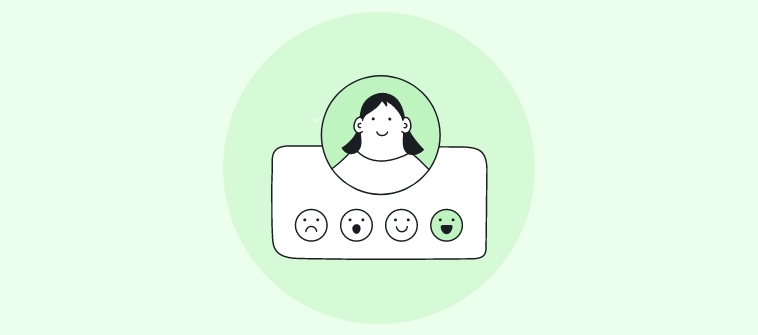
Market research questions can help you capture the best insights when you are up for launching a new product or a feature. Sending out such surveys about market needs and preferences enables companies to understand how their target market feels and behaves.
But why market research surveys ?
Because market trends change with the change in opinions and preferences of your customer base. Even your most loyal customers will turn to other brands unexpectedly. For this reason, a marketing questionnaire can help you find out what your customers want and think.
However, the key to success is deciding which questions to ask.
In this blog, we have gathered a list of 90+ market research questions that you can use for conducting in-depth market research surveys.
Continue reading to find out.
What are Market Research Questions?
Market research questions are questions that businesses send out to their existing and potential customers to understand their perception and opinion on a given subject.
But how does it actually help?
Market survey questions help businesses collect precise information about the market, audiences, and competitors. This helps businesses validate the market demand and profitability of their product/feature before diving into the development process.
Also, such structured questions have limited answering options, which makes it easier to apply formulas and patterns to accurately analyze the gathered data .
For example, via market research questions, you may collect easy-to-segment data mentioned below:
- Job title
- Type of industry the respondent works in
- Education level
- How did they get to know about you?
- What are you planning to buy from the [brand name]?
- What products do you like to buy from a [competitor name]?
- Why do you buy from the [brand name]?
Therefore, with the collected data, brands can serve their customers better and make their upcoming products/features stand out from the competition.
Watch more: How To Create Survey Using ProProfs Survey Maker
Market Research Questions (categories with questions)
Before you start creating a perfect market research questionnaire , you must consider a few crucial parameters. Start by asking yourself:
- What is the size of your target market?
- Who are your target customers?
- What are the primary issues that your customers face?
- How can your product or service help solve the issue for your customers?
- Does your product perfectly fit into the current market?
- What’s the volume of potential customers?
- Have you set a good customer persona to understand your ideal target customers?
- What are the key consumer trends?
- How do you identify new target segments? And, how are these new segments different from the existing ones?
- Who are your direct competitors? What are their strategies for attracting customers?
- How do you generate leads ?
Therefore, to position yourself as an expert before launching a new product/service, it’s crucial to have in-depth knowledge about your customers, the industry, the market trends, and your competitors .
Once you are done with it, you can start curating marketing research questions that can help your business idea to thrive.
Market Research Questions for New Product Launch
Launching a successful product or a service demands extensive research and market testing. You can include the following product survey questions:
1. How did you hear about [brand name]? 2. What made you choose us? 3. What features do you like most about our existing product or service? 4. What feature would you like to see in the website/product? 5. Is our product or service convenient to use? 6. Which feature do you think will help improve the existing product experience for you? 7. Among these four options, what’s the next thing you think we should launch? 8. What’s the one feature we can add that would make our product more valuable for you? 9. Would the implementation of [feature name] increase the usability of the [product name]? 10. Are you aware that we offer [product/service name]? 11. Did we answer all your questions or solve your problem? 12. How long have you used [product name]? 13. How often do you use [product name]? 14. Did we help you get started using our product or service? 15. For your next purchase, how likely are you to purchase from our brand?
- Very likely
- Somewhat likely
- Very unlikely
16. Compared to other products in the market, would you say that our product is:
- Much better
- Somewhat better
- Almost the same
- Don’t know or never used
17. Will you use or purchase our product again?
- Might or might not
- Probably will not
- Definitely, will not
18. Are you willing to refer our product/service to your friends, family, or colleagues about us? 19. Why have you decided to leave us? 20. On a scale of 1-10, how will you rate your experience with us? 21. In your opinion, how can we further improve this product/feature?
Market Research Questions for Potential Customers
These market research questions will help you create an accurate buyer persona by understanding your target customers. The basic things you need to ask are:
- Profession/Job
- Household income
- Household size
22. What are your hobbies and interests? 23. How old are you? 24. What is your monthly income range? 25. What is your current marital status? 26. What is the name of your company? 27. Where is your company’s headquarters located? 28. Please specify the number of employees that work in your company. 29. What is your job title? 30. In which location do you work? 31. What type of activities do you prefer in your free time? 32. Do you take part in physical activities? 33. Where is your dream holiday destination? 34. How would you rate the following according to their priority in your life – family, work, and social life? 35. Are you happy with your current work-life balance? 36. How would you describe yourself: An optimist or a pessimist? 37. How often do you give to charity? 38. How do you commute to work? 39. How do you do your holiday shopping? 40. How much do you spend on shopping every year? 41. What are the common challenges you face regularly? 42. What are your main goals in life? 43. What products do you consider the most important to solve your business problems? 44. Where do you usually search for new products? 45. How much do you usually spend when purchasing (product category)? 46. How likely are you to buy [product name]?
Market Research Questions to Collect Feedback on Existing Product(s)
For product-based organizations, collecting customer feedback is a key to steering their products towards success. For this reason, selecting the right set of market research questions you ask your existing customers is important.
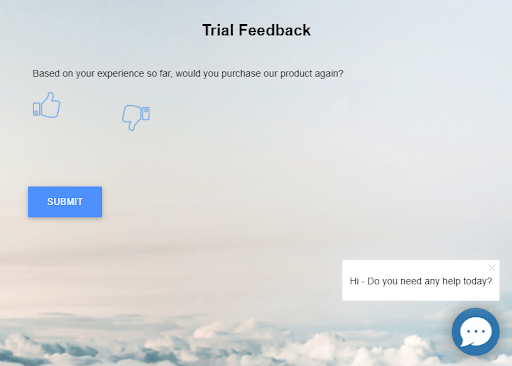
47. Have you heard of [product name] before? 48. What specific problems does our product solve for you? 49. How would you feel if [product name] was no longer available? 50. How would you rate our product delivery? 51. Do you face any challenges while using our product? 52. How disappointed would you be if you could no longer use [product/feature name]? 53. How often do you use [product name]? 54. How long have you been using [product name] for? 55. When was the last time you used [product name]? 56. How would you rate our customer experience? 57. What do you think about our product pricing? 58. In your opinion, in which area is this product/service lacking the most? 59. How does the product perform after the update? 60. Have you faced any problems with the product? Specify below. 61. What feature did you expect but not find in [product name]? 62. On a scale of 1-5, how satisfied are you with the product?
Watch more: How To Create a Customer Satisfaction Survey
Market Research Questions for Competitive Analysis
Asking specific competitive analysis questions can help you dig deeper into market share and internal information about your counterparts. You can ask the following questions:
63. How would you feel if you couldn’t use our product anymore? 64. Have you considered other solutions/alternatives? 65. Which other options have you considered before choosing our product? 66. What made you choose our brand rather than a competitor? 67. What do we do better than other company’s products? 68. Which product would you use if our product is no longer available? 69. What are the first three brands in this product category that come to your mind? 70. In your opinion, how can our product stand out from the competition? 71. Please share your overall opinion of our brand? 72. Please share any additional comments or feedback? 73. Have you seen any other product with a similar feature? 74. In what aspects do you compare our products to our competitors? 75. Compared to the other available options, is our product quality better, worse, or about the same? 76. Please list the top three things that helped you choose us rather than a competitor.
Market Research Questions For Concept Testing
Before the final launch, a concept testing survey helps businesses to evaluate product development by collecting feedback from customer segments that make up their target market. This testing helps them avoid mistakes and tailor their products according to the customers’ needs.
You can include the following marketing survey questions to get accurate feedback from the respondents:
77. How would this new feature help you solve your problem? 78. What is your least favorite part of the feature and why? 79. What do you consider before deciding on a version of the product? 80. How do you feel about this new feature? 81. What really excites you about this new feature? 82. Do you think this new feature can extremely help in improving the existing product, and why? 83. Have you seen something similar to this product feature elsewhere? 84. How does this new feature improve your overall experience? 85. Do you think this new feature is appropriate for [product name], and why? 86. How much would you wish to pay for this product? 87. Which of our products appeals most strongly to you, and why? 88. How could this product make a difference in your daily life? 89. Describe why you think this product is innovative? 90. Describe why you think this product is not so innovative? 91. What development stage do you think the product currently is in?
Tips to Create Effective Market Research Surveys
Step 1: choose the best survey software.
With various survey tools available on the market, choosing the right one could be tricky. You just go for a survey maker tool that helps you create, customize and share different types of surveys such as pop-up, scored, NPS, sidebar across email, social media, websites, etc.
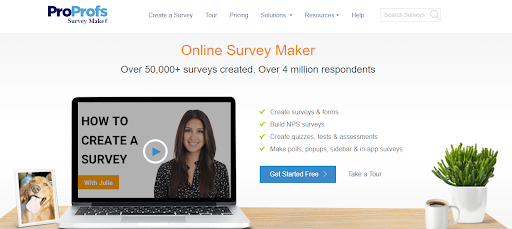
The tool should also support multiple question types, and you should be able to measure survey performance and evaluate feedback with built-in intelligent analytics.
Step 2: Choose the Right Survey Questions
Before creating a survey, you should have clarity regarding your end goal based on qualitative and quantitative research . For example, if you are looking for simple yes-no answers, you can choose close-ended questions, whereas if you are looking for comprehensive answers, then you may want to consider open-ended questions .
Or, if you are looking for quick-to-sort feedback that can help you identify trends easily, then multiple-choice, Yes/No, and Likert scale questions work well.
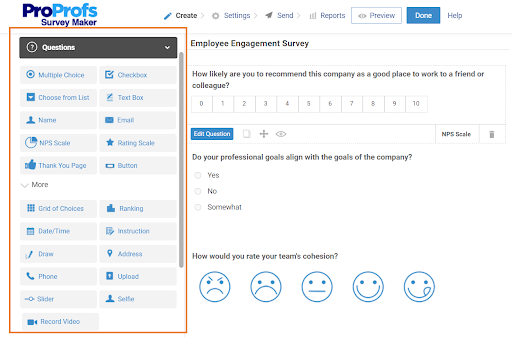
Read More: Survey Question: 250+Examples, Types & Best Practices
Step 3: Ask Questions That Match Your Survey Goals
Before you start creating a survey , think of what information you want to collect from customers. The data you need should directly relate to the problem you want to solve for your business.
For example, you should send out questions related to a new feature before launching it to gather customer insights about your concept.
Whereas, demographic questions are best if you want to know who your potential customers are. Such questions help you gain basic information about the customers, such as their age, place of residence, occupation, income level, and more.
Step 4: Share Surveys at a Suitable Time
Timing is the most essential aspect when it comes to surveys. Wrong timing can reduce the chances of collecting feedback from your target audience . On the other hand, when the timing is right, you can collect actionable feedback about their experiences.
For example, the ideal time to send the survey is just after a customer interacts with your business. Just because the interaction is fresh, they will be able to provide the most genuine and fresh feedback.
Also, the brands can send the survey a few days after the purchase. This will offer the customers some time to use your product and let you genuinely know how happy or unhappy they are, what’s bothering them, and what you can do to improve.
Effectively Capture Market Insights With Market Research Questions
When executed well, market research can save a lot of time and effort in collecting valuable feedback. Whether you’re starting a business, launching a new product/feature, or improving your existing processes, market research questions can fetch you the answers you need to create dynamic strategies.
Ask the right questions to the right audience at the right time and you’ll surely get useful results. However, it’s important to tailor questions to specific contexts. For instance, if you are conducting product market research, you should ask questions that would provide useful information on product feasibility in the current market.
And for a seamless process, you can create a market research questionnaire with powerful tools like ProProfs Survey Maker and Qualaroo and easily share it with your target audience in various forms.

About the author
Emma David is a seasoned market research professional with 8+ years of experience. Having kick-started her journey in research, she has developed rich expertise in employee engagement, survey creation and administration, and data management. Emma believes in the power of data to shape business performance positively. She continues to help brands and businesses make strategic decisions and improve their market standing through her understanding of research methodologies.
Related Posts

Data Collection Methods: Definition, Types & Examples

Market Segmentation: Types and Benefits

How to Write Qualitative Research Questions: Types & Examples

How to Write Quantitative Research Questions: Types With Examples

Conducting Gap Analysis: Steps, Tools and Examples

How to Create Rating Scale Surveys: Benefits, Types & Examples
Copyright © SurveySparrow Inc. 2024 Privacy Policy Terms of Service SurveySparrow Inc.
- 50+ Market Research Questions To Ask Your Target Audience

Kate Williams
Last Updated: 5 June 2024
18 min read

Table Of Contents
What is Market Research?
- 50+Market Research Questions
How to Write Market Research Questions
- 8 Benefits of Market Research
- Reliable Tools for Conducting Market Researchr
Before we learn about market research questions , how about a coke?
Coca-Cola, from classic coke to their famous diet Coke, is a success. No doubt. But they’ve had their share of failures too.
One of these failures happened because of poor market research. Coca-Cola’s highly ambitious product, C2 , which was half regular and half diet coke, tanked badly, as they didn’t ask the right questions to the right audience during market research.
According to the Coca-Cola market research surveys, Coca-Cola lost upwards of $50 million on C2, and we don’t want something similar happening to one of your products. That’s why we focus on market research questions that’ll get the right responses to scale your business to better heights. Here’s a snippet of what we’ll further discuss in this article.
- What is Market Research
- 50+ Research Questions To Use In 2023
- Benefits Of Market Research.
- Tools for Conducting Market Research.
Market research is the process of gaining your target customer’s insights about new products, competitors, preferences, or more. Marketing research is all about getting high-value information on things that could benefit a company and help them grow – and surveys are a great tool for this.
If you struggle with writing questions for your market research surveys, bookmark this blog. The better and more precise these market research questions are, the better the data and the better the decision you make with it.
50+Market Research Survey Questions to Use in 2023
Here we are now – the 50 most effective market research questions that deliver outstanding results when used in research surveys. We’ve split these questions into five categories so you can pick the right ones at the right time.
Effective Market Research Questions: 5 Effective Catagories
- New Product Survey Questions
- New Business Survey Questions
- Competition Analysis Survey Questions
- Questions For Your Existing Customers
- Questions To Improve Customer Service
These marketing research questions can be open-ended, multiple-choice, or scale-based questions as per your data requirements.
1. New Product Survey Questions
A new product launch is where most market research happens. As exciting as it sounds, it can cause a massive failure if the new product ain’t what the target audience wants it to be.
To understand that, here are 10 market research survey questions you can ask:
- How excited are you about our upcoming product? Would you be willing to test it?
- Is the product solving your problem accurately?
- What change do you wish to bring to this product?
- If given the responsibility, how would you go about promoting it?
- How much would the competitors charge for a product like this?
- On a scale of 1 to 10, how likely are you to purchase this product once it’s available?
- What features or benefits of the product stand out the most to you?
- Are there any concerns or hesitations you have about the product?
- In comparison to products you currently use or are familiar with, how does our product fare?
- Which marketing channels (e.g., social media, email, TV, etc.) would you most likely notice information about this product?
Need a ready-to-launch e xamples of research questions? H ere’s a survey created with SurveySparrow .
Unlock access to a range of free market research question templates by simply signing up today!
14-day free trial • Cancel Anytime • No Credit Card Required • No Strings Attached
From audience panel services to 600+ survey templates , get all the tools you need to research a new market, launch a new product, or overhaul your current marketing strategy. Dive in with a free account.
2. New Business Survey Questions
When you’re about to enter a new business or market opportunity, it always works well too:
- Research the audience you’ll target
- The competition you’ll face
- The market size of this new opportunity
- The buying behavior of your target group
These are the ten market research questions examples for new business:
- Who are the groups or groups that’ll buy from us?
- How big is the market for this opportunity? Will it sustain or shrink in the long run?
- How can we capitalize on customers’ buying habits/behaviors in this market??
- How are our direct or indirect competitors doing their business in this market?
- What are the problems we’ll solve for our target groups here?
- What differentiates our business or offering from existing competitors in the market?
- Which marketing channels most effectively reach our target audience in this new market?
- Are there any cultural, regional, or demographic factors we should know when entering this market?
- What regulatory or compliance challenges might we face in this specific market?
- How open is the target audience to trying a new product or service in this category?

3. Competitive Analysis Questions
Let’s face it. Whatever your business is, there are competitors. Some are big, some are small, but competition is there, and when you’re keeping tabs on them by asking the right market research questions from your teams and customers, you stay ahead of the curve!
Here are ten good market research questions for competition analysis:
- What do you like the most about our (competitor’s name) product?
- Are you content with their product pricing?
- Where do you think our brand stands compared to (competitor’s name)?
- Do you like the way they market and advertise their products?
- What sets (competitor’s name) apart? Is it their product, service, user experience, content, or anything else?
- Which features or benefits of (competitor’s name) do you wish our product/service offered?
- Have you ever experienced any issues or challenges with (competitor’s name) product/service?
- How do you perceive the customer service or support provided by (competitor’s name)?
- If you could change one thing about (competitor’s name) offering, what would it be?
- How often do you consider switching from (competitor’s name) to another brand or solution? What would motivate that switch?
4. Questions For Your Existing Customers
When you and your teams are working on a new product or service or want to bring changes to the existing ones, it’s always best to know your customer’s opinions about it because you want to deliver what they want and the changes that’ll take their satisfaction levels with your brand to the next level.
Check out these 10 market research questions for your customers:
- What changes would improve our product for you?
- Are you facing any consistent issues where you think we can help?
- Do you think our services can improve? If so, we would love to know how.
- Would you buy our products/services at a higher price if we added additional features to them?
- How can we improve our products to enhance your overall experience?
- How would you rate your overall satisfaction with our product/service on a scale from 1-10?
- If you’ve contacted our customer support, how was your experience, and what can we do better?
- Are there other products or services you wish we offered?
- How frequently do you use our product/service, and are there any challenges during its use?
- What’s the one thing you love the most about our product/service and one thing you dislike?
5. Questions To Improve Customer Service
If you thought market research and market research questions were only about new products, new business opportunities, insights from existing customers, and competitor analysis, think again!
Market research has always been about improving according to your customers, target audience, and employee insights. Your customer experience always needs review and timely improvements, and a market research survey backed with the right market research questions would help you big time here.
So, let’s look at ten such examples of market research questions that you can ask about your customer service:
- After raising your query, how much time did our customer service representative take to reply?
- Did our customer service representative directly give you the solution or explain why the issue occurred in the first place?
- How convenient is it for you to reach our customer representative and head?
- Do you wish our customer service team to be available on any other channels apart from the ones they are?
- Do you get consistent customer experience on all channels from our service team?
- On a scale of 1 to 10, how would you rate your overall experience with our customer service team?
- Were our customer service representatives friendly and empathetic to your concerns?
- Did you feel like our team valued your time and was efficient in their assistance?
- Would you say that the solution provided was satisfactory and met your expectations?
- How likely are you to contact our customer service again for future queries or concerns?
Now that might be familiar with market research questions, why not design a survey seamlessly using our ready-to-use templates?
Register below with your email for free access
Here are ten tested tips to create a perfect market research survey that gets results. Make full use of it.To create the perfect market research survey:
- Define the problem you’ll solve with it. Don’t just conduct market research, hoping to get actionable data.
- Select the right target group. You do not want to collect irrelevant data that’s of no use. So, for a particular problem, select the right people.
- Know your sample size . Whether your method is cluster sampling , quotas , systematic sampling or purposive sampling , figure out the number of survey responses you’ll need for reliable data and keep a safety margin for half-filled or not-responded surveys.
- Select focused questions . Use these twenty-five questions the best you can. You can also check out our go-to guide on how to write better survey questions .
- Use interactive question types – like voice notes, image choice, video backgrounds, and graphical sliders. This will massively increase your response rates.
- Give incentives like free e-books gift cards. This can give respondents the extra encouragement they need to complete the survey.
- Keep it conversational . Market research surveys work when they are treated with the same care and warmth as a conversation. So, build that trust with the tone of your questions.
- Don’t send the survey to all the respondents at once . Send it to a small batch first. Analyze how they answer, make changes if needed, and then go for the full-scale market research.
- Set times for reminders . You don’t want to speed up at the wrong time.
- And last, give enough time for analysis. Specific survey tools can save time with auto-generated survey reports that you can customize.
8 Benefits of Market Research: What Makes it So Important?
While we were explaining market research and market research questions, we mentioned one of its biggest benefits too. The benefit that makes it absolutely important for any business is gunning for long-term and sustained growth.
Guessed it? Well, it’s the benefit of getting rich insights from your target audience. But that’s not the only benefit.
Yes, market research offers a lot more than you can think of. And it’s time we discuss them one by one.
#1 Know Your Business Better
When you get customer and target market feedback about a product or service, you see the difference between your and your customer’s opinions. Observing this difference allows you to bridge that down by aligning the new or existing product based on their wants.
So, when you use the right market research questions in your survey, you get to observe your company through the target audience’s lens, allowing you to better understand the business and its goals.
#2 Get More Business Opportunities
While conducting a market research survey, you often find or realize a new opportunity or avenue where the company can thrive. This realization comes when you analyze the collected survey data and see your target market’s interest in this new opportunity.
#3 Discover New Customer Segments To Target
“The product has come out well. I want to use it, and I think the Genz’s would like it too.”
If the answer to one of your market research questions is something like this, you and your teams know they have a new customer segment to target. That’s a powerful benefit of conducting a well-planned market research survey that contains the right questions.
#4 Massively Reduce The Risk Of Failing
With market research or market research surveys, you don’t just get to know the insights and opinions of your target audience on a certain product, you also come to understand areas where it’s severely lacking and can cause a failure if not duly addressed.
Also, with a few well-crafted market research questions, you get to know the areas where your business is lacking. And if you’re working on those, the chances of your business going under are reduced massively.
#5 Understand Where And How To Market
By using the right market research questions in your surveys, you understand where and how your customers and target group want your teams to market a product.
Give your survey respondents the freedom to express themselves, and you’ll get gold out of your market research. Believe us on that!
#6 Track Your Competition
While conducting market research, you can’t forget about your competitors. As a leader, you need to stay on top of proceedings regarding your competitors and their products. Your teams need to have answers to questions like what new are they bringing, what’s their new campaign like, what are they focusing on at the moment, and many more.
What better way to do that than to ask these subtly by including the right market research questions? And trust us, you’ll get massive information about your competition with these surveys, allowing you to pivot and do better.
#7 Identify New Trends
Scanning the internet for new trends is an absolute time-consuming process. You can replace that with market research and market research surveys to stay updated and well-informed on what new your customers want. Analyzing new trends can be done successfully with digital marketing training. The process of obtaining information becomes effective.
If not anything, it’ll save your teams a lot of time, which they can use for other important tasks.
#8 Predict The Future
To sum all the benefits we’ve mentioned, you’ll be able to predict the future of your products, services, and even your business after knowing your customer’s insights and opinions on it. That’ll give you the chance and the freedom to bring the right changes at the right time. Ain’t that impressive?
Reliable Tools for Conducting Market Research
You now know the twenty-five top market research questions to include. But how can you add these questions to a market research survey and send it? What are the different tools you could use for it?
If you have these questions, with no further ado, get your answers here.
A Full-Action Survey Software
There can be nothing better than using survey softwares to conduct market research surveys. Period. But why? Well, survey software is the best way to gather reliable information quickly from your customers and employees about your existing or new products. These surveys would give clarity about your potential and target customers, buyer persona, and the solid feedback you’ll receive will help you strategize and do better eventually.
If you’re looking to use survey software for your research surveys, look no further than SurveySparrow. This Typeform alternative allows you to create engaging forms and surveys with no hassle. These surveys are conversational, easy-to-use, and completely secure. More importantly, it offers features like likert scale questions , interactive dashboards, customization, embedded surveys, recurring surveys, and so much more. And you can use all these features in the 14-Day free trial itself.
Our friendly suggestion: Don’t miss out on this!
Chatbots for the Website
Chatbots are the future of market research, no doubt on that. As per a study, by 2024, the global market for chatbots is projected to be over $994 million. That’s some number! Thousands of brands are implementing or have implemented chatbots in their everyday business task. From doing market research to tracking and answering customer’s queries, chatbots are everywhere.
Do you know what’s the best thing about a chatbot? It’s that it makes a customer’s or employee’s journey more enjoyable, as the conversations are natural and human-like. In addition, a chatbot will always ask a follow-up question to your customers just like a human mostly does. And this helps in market research. How? By making sure you and your teams are always up to date about what your customers want and what their expectations are from your products, services, and support.
SurveySparrow’s no-code Feedbot is made to gather insightful market data with no programming knowledge. Deloitte Digital , a San Francisco-based marketing, and advertising company de-cluttered their data collection process using SurveySparrow’s Feedbot. The company was facing challenges while collecting market data with the paper questionnaire format. However, the chat-like experience and interactive UI of Feedbot helped them gather 804 survey responses out of 1200 surveyed people. That’s a 67% completion rate. Market research conducted most profitably, isn’t it?
360 Degree Feedback Software
You can spend all your dollars on your customers to make them stay, but without your employees’ efforts, it just won’t happen. When we talk about market research, the first thing that comes in our mind is the customers. We want to conduct market research to gain knowledge about customer preferences, insights, and opinions. But, what about employee research to find their satisfaction levels?
In recent times, employee satisfaction and experience have both become popular and crucial topics. Because, no matter the industry, people like to do business with people. And satisfied employees are the most real, and simple people to attract customers and keep them engaged.
That’s why it’s important to use a 360-degree feedback tool like SurveySparrow’s 360-degree feedback solution . With this, you can conduct an employee assessment (research) to increase their satisfaction levels and drive growth. Trust us, you need to conduct such assessments, especially in this new normal.
Let’s Begin!
There you have it, then. You now know the benefits of market research, twenty-five different questions to include in the market research survey, tools to conduct these surveys, and as a bonus, highly effective tips to create the perfect market research survey.
The only thing that’s left now is for you to use these questions and start conducting market research surveys. SurveySparrow and its marketing experience solution can make this process a lot easier, effective, and the least time-consuming for you and your teams. So, check it out, and we’re just this click away if you need help. Waiting to hear from you. Au revoir!

Product Marketing Manager at SurveySparrow
Excels in empowering visionary companies through storytelling and strategic go-to-market planning. With extensive experience in product marketing and customer experience management, she is an accomplished author, podcast host, and mentor, sharing her expertise across diverse platforms and audiences.
You Might Also Like

Top 10 Competitor Analysis Tools for Different Use Cases

Typeform vs Google Forms | A Detailed Comparison For 2024

50+ Essential Political Survey Questions + Free Customizable Template

Work Culture
The Power of 360 Degree Feedback as a Development Tool
Turn every feedback into a growth opportunity.
14-day free trial • Cancel Anytime • No Credit Card Required • Need a Demo?
40 Most Practical Market Research Survey Questions
April 3 2022

- Table of content
How to write market research questions
40 important market research questions, market research by product sampling, key takeaways.
Market research refers to the practice of collecting factual information about a target market and its performance until today. It answers specific business questions and is conducted on a macro level. Running market research is necessary before making any important decision for the business, and it prevents the risk of doing guesswork. This article includes:
- A guide to writing market research questions
- A list of 40 most practical survey questions for market research
- An introduction to market research by product sampling
Also read: Differences Between Market Research and Consumer Insights Research
The first phase of designing the market research questions is to define the objectives of the research or what problem you are intending to solve. Besides, you need to decide who your target audience is.
Below there is a list of important elements to keep in mind before writing the market research questions:
- Who is your audience ? In other words, design your buyer personas and define their demographic attributes. That includes age, sex, geographic location, occupation, and income, etc.
- How big is your market? Make an estimation of how many potential customers/ consumers you might have in the target locations and how much demand is out there for a product like yours.
- What do they need and what do they want? Is your product or service going to solve a problem for your audience? Is this exactly what they need? It's important to interpret the consumers' responses in a deep, intuitive way since they might not always choose the best words, nor do they know what they really want.
- Are you welcome in this market? Make sure the market you've picked is not saturated. The more similar products there are out there, the more competition there will be for you. Because you ought to draw the consumers' attention to your product.
- How will you fix the price? You need to figure out how much a consumer is willing to pay for your product or service, how much a similar product costs, and with what pricing strategy you can beat your competitors.
- How stable is the economy in your market's location? Research about economic activities and trends in the region you're going to sell your product. It goes without saying that it makes no sense to start a business in an unstable environment.
Also read: Seven Consumer Research Methods; 2022 Version
Make a clear picture of what information you need from your market and keep it simple. In the next paragraphs, you will see a list of categorized 40 most practical questions for your next market research.
You may choose a selection of questions below, depending on your product or service as well as the objectives of your consumer research . It is recommended that you leave the demographic questions to the last because some participants might find it uncomfortable to answer them and therefore, they are likely to give up the survey.
Here there are 40 sample questions for marketing survey.
Consumer segmentation:
- How old are you?
- Please specify your gender.
- What is your occupation?
- Please select your annual income range.
- Please select your marital status.
- Do you have any children? If yes, how many?
- What is your level of education?
- In what region/ city/ postcode area do you live?
- What activities fill up your free time?
Feedback on product:
- How often do you use this product?
- How satisfied are you with this product?
- If you could change anything about this product, what would you change?
- How likely are you to recommend this product to a friend?
- Do you prefer to buy this product online or on site?
- How would you feel/ what would you do if this product no longer existed?
- How long have you been using this product?
- Did this product meet your expectations?
Customers preferences:
- What made you choose this product?
- How do you decide to buy a product?
- How do you search for the products that you buy?
- How likely are you to buy this product from us again?
- What do you like the most/ least about this product?
- Please rate how well this product meets your needs.
- In your opinion, what's the most valuable feature of this product?
Brand awareness:
- How long have you known this brand?
- How did you hear about us/ this brand?
- Have you purchased anything from us before?
- Do you know any other brand offering the same product? How many?
- Have you seen our advertisements before? where?
- Have you recommended this brand to a friend? If not, how likely are you to do so?
- How do you feel about this brand?/ what do you think about this brand?
- How easy was it for you to try this brand for the first time?
Competition analysis:
- What brands do you consider as an alternative to us?
- How likely are you to switch to another brand in the future?
- What differentiates us from other brands?
- How would you rate our product compared to other brands?
- What do you think/ how do you feel about our prices compared to other brands?
- How would you rate our level of success in this market?
- What brand did you use to purchase from before us?
- What influenced you to switch to this brand?
Also read: Consumer Research Explained; Marketers' Edition
If you are about to launch a new product or start a business with no previous history in the market, product trial would be a fast, efficient, and cost-effective method to conduct your market research.
Thanks to its app-based consumer database, Peekage finds you the right group to test your product and give quality feedback afterward.
Peekage gets you covered from level zero. They distribute the samples, design professional surveys, collect feedback and then deliver a detailed and data-driven report with actionable consumer insights to you.
You may be interested in: The Psychology Behind Consumer Sampling Programs
- Before running market research, it's crucial to define the research objectives.
- You should design your survey questions based on some fundamental elements.
- A good consumer research survey contains questions that make the participant give direct and true answers.
- One common mistake to avoid is to place the questions in a sensible order to get the best results.
- One of the most advantageous methods to run consumer research is to run a product demo or trial.
Like the article? Spread the word
Ready to see what we’re building?
More from Peekage

Measuring a Product Sampling Campaign: How and What to Measure – Process and Metrics
A good product sampling campaign is a measured one. Without product sampling measurement, there is no way to know how effective the campaign is. But what should you measure when you want to assess a…

Tiered loyalty programs 101: Everything you need to know
Tiered customer loyalty programs are customer incentive strategies that help businesses in encouraging their consumers to interact with all aspects of the program in order to build brand loyalty. Loyalty programs, at their most basic,…

In-Home Product Testing (IHUT): A Comprehensive Guide
In-home product testing or In-home usage tests (also known as IHUTs) is nothing new in the field of product research, but it is entering a new phase with the development of complex algorithms, quick turnarounds,…

Peekage CPG Insights: Everything you need to know about cereals!
During covid pandemic, breakfast had a resurgence and became a standard part of the morning routine for most Americans. A lot of on-the-go consumers switched to in-home options like cereals. In fact, more than 80%…
Have a language expert improve your writing
Run a free plagiarism check in 10 minutes, generate accurate citations for free.
- Knowledge Base
- Starting the research process
- 10 Research Question Examples to Guide Your Research Project
10 Research Question Examples to Guide your Research Project
Published on October 30, 2022 by Shona McCombes . Revised on October 19, 2023.
The research question is one of the most important parts of your research paper , thesis or dissertation . It’s important to spend some time assessing and refining your question before you get started.
The exact form of your question will depend on a few things, such as the length of your project, the type of research you’re conducting, the topic , and the research problem . However, all research questions should be focused, specific, and relevant to a timely social or scholarly issue.
Once you’ve read our guide on how to write a research question , you can use these examples to craft your own.
| Research question | Explanation |
|---|---|
| The first question is not enough. The second question is more , using . | |
| Starting with “why” often means that your question is not enough: there are too many possible answers. By targeting just one aspect of the problem, the second question offers a clear path for research. | |
| The first question is too broad and subjective: there’s no clear criteria for what counts as “better.” The second question is much more . It uses clearly defined terms and narrows its focus to a specific population. | |
| It is generally not for academic research to answer broad normative questions. The second question is more specific, aiming to gain an understanding of possible solutions in order to make informed recommendations. | |
| The first question is too simple: it can be answered with a simple yes or no. The second question is , requiring in-depth investigation and the development of an original argument. | |
| The first question is too broad and not very . The second question identifies an underexplored aspect of the topic that requires investigation of various to answer. | |
| The first question is not enough: it tries to address two different (the quality of sexual health services and LGBT support services). Even though the two issues are related, it’s not clear how the research will bring them together. The second integrates the two problems into one focused, specific question. | |
| The first question is too simple, asking for a straightforward fact that can be easily found online. The second is a more question that requires and detailed discussion to answer. | |
| ? dealt with the theme of racism through casting, staging, and allusion to contemporary events? | The first question is not — it would be very difficult to contribute anything new. The second question takes a specific angle to make an original argument, and has more relevance to current social concerns and debates. |
| The first question asks for a ready-made solution, and is not . The second question is a clearer comparative question, but note that it may not be practically . For a smaller research project or thesis, it could be narrowed down further to focus on the effectiveness of drunk driving laws in just one or two countries. |
Note that the design of your research question can depend on what method you are pursuing. Here are a few options for qualitative, quantitative, and statistical research questions.
| Type of research | Example question |
|---|---|
| Qualitative research question | |
| Quantitative research question | |
| Statistical research question |
Other interesting articles
If you want to know more about the research process , methodology , research bias , or statistics , make sure to check out some of our other articles with explanations and examples.
Methodology
- Sampling methods
- Simple random sampling
- Stratified sampling
- Cluster sampling
- Likert scales
- Reproducibility
Statistics
- Null hypothesis
- Statistical power
- Probability distribution
- Effect size
- Poisson distribution
Research bias
- Optimism bias
- Cognitive bias
- Implicit bias
- Hawthorne effect
- Anchoring bias
- Explicit bias
Cite this Scribbr article
If you want to cite this source, you can copy and paste the citation or click the “Cite this Scribbr article” button to automatically add the citation to our free Citation Generator.
McCombes, S. (2023, October 19). 10 Research Question Examples to Guide your Research Project. Scribbr. Retrieved August 16, 2024, from https://www.scribbr.com/research-process/research-question-examples/
Is this article helpful?
Shona McCombes
Other students also liked, writing strong research questions | criteria & examples, how to choose a dissertation topic | 8 steps to follow, evaluating sources | methods & examples, get unlimited documents corrected.
✔ Free APA citation check included ✔ Unlimited document corrections ✔ Specialized in correcting academic texts
9 Best Marketing Research Methods to Know Your Buyer Better [+ Examples]
Published: August 08, 2024
One of the most underrated skills you can have as a marketer is marketing research — which is great news for this unapologetic cyber sleuth.

From brand design and product development to buyer personas and competitive analysis, I’ve researched a number of initiatives in my decade-long marketing career.
And let me tell you: having the right marketing research methods in your toolbox is a must.
Market research is the secret to crafting a strategy that will truly help you accomplish your goals. The good news is there is no shortage of options.
How to Choose a Marketing Research Method
Thanks to the Internet, we have more marketing research (or market research) methods at our fingertips than ever, but they’re not all created equal. Let’s quickly go over how to choose the right one.
.png)
Free Market Research Kit
5 Research and Planning Templates + a Free Guide on How to Use Them in Your Market Research
- SWOT Analysis Template
- Survey Template
- Focus Group Template
Download Free
All fields are required.
You're all set!
Click this link to access this resource at any time.
1. Identify your objective.
What are you researching? Do you need to understand your audience better? How about your competition? Or maybe you want to know more about your customer’s feelings about a specific product.
Before starting your research, take some time to identify precisely what you’re looking for. This could be a goal you want to reach, a problem you need to solve, or a question you need to answer.
For example, an objective may be as foundational as understanding your ideal customer better to create new buyer personas for your marketing agency (pause for flashbacks to my former life).
Or if you’re an organic sode company, it could be trying to learn what flavors people are craving.
2. Determine what type of data and research you need.
Next, determine what data type will best answer the problems or questions you identified. There are primarily two types: qualitative and quantitative. (Sound familiar, right?)
- Qualitative Data is non-numerical information, like subjective characteristics, opinions, and feelings. It’s pretty open to interpretation and descriptive, but it’s also harder to measure. This type of data can be collected through interviews, observations, and open-ended questions.
- Quantitative Data , on the other hand, is numerical information, such as quantities, sizes, amounts, or percentages. It’s measurable and usually pretty hard to argue with, coming from a reputable source. It can be derived through surveys, experiments, or statistical analysis.
Understanding the differences between qualitative and quantitative data will help you pinpoint which research methods will yield the desired results.
For instance, thinking of our earlier examples, qualitative data would usually be best suited for buyer personas, while quantitative data is more useful for the soda flavors.
However, truth be told, the two really work together.
Qualitative conclusions are usually drawn from quantitative, numerical data. So, you’ll likely need both to get the complete picture of your subject.
For example, if your quantitative data says 70% of people are Team Black and only 30% are Team Green — Shout out to my fellow House of the Dragon fans — your qualitative data will say people support Black more than Green.
(As they should.)
Primary Research vs Secondary Research
You’ll also want to understand the difference between primary and secondary research.
Primary research involves collecting new, original data directly from the source (say, your target market). In other words, it’s information gathered first-hand that wasn’t found elsewhere.
Some examples include conducting experiments, surveys, interviews, observations, or focus groups.
Meanwhile, secondary research is the analysis and interpretation of existing data collected from others. Think of this like what we used to do for school projects: We would read a book, scour the internet, or pull insights from others to work from.
So, which is better?
Personally, I say any research is good research, but if you have the time and resources, primary research is hard to top. With it, you don’t have to worry about your source's credibility or how relevant it is to your specific objective.
You are in full control and best equipped to get the reliable information you need.
3. Put it all together.
Once you know your objective and what kind of data you want, you’re ready to select your marketing research method.
For instance, let’s say you’re a restaurant trying to see how attendees felt about the Speed Dating event you hosted last week.
You shouldn’t run a field experiment or download a third-party report on speed dating events; those would be useless to you. You need to conduct a survey that allows you to ask pointed questions about the event.
This would yield both qualitative and quantitative data you can use to improve and bring together more love birds next time around.
Best Market Research Methods for 2024
Now that you know what you’re looking for in a marketing research method, let’s dive into the best options.
Note: According to HubSpot’s 2024 State of Marketing report, understanding customers and their needs is one of the biggest challenges facing marketers today. The options we discuss are great consumer research methodologies , but they can also be used for other areas.
Primary Research
1. interviews.
Interviews are a form of primary research where you ask people specific questions about a topic or theme. They typically deliver qualitative information.
I’ve conducted many interviews for marketing purposes, but I’ve also done many for journalistic purposes, like this profile on comedian Zarna Garg . There’s no better way to gather candid, open-ended insights in my book, but that doesn’t mean they’re a cure-all.
What I like: Real-time conversations allow you to ask different questions if you’re not getting the information you need. They also push interviewees to respond quickly, which can result in more authentic answers.
What I dislike: They can be time-consuming and harder to measure (read: get quantitative data) unless you ask pointed yes or no questions.
Best for: Creating buyer personas or getting feedback on customer experience, a product, or content.
2. Focus Groups
Focus groups are similar to conducting interviews but on a larger scale.
In marketing and business, this typically means getting a small group together in a room (or Zoom), asking them questions about various topics you are researching. You record and/or observe their responses to then take action.
They are ideal for collecting long-form, open-ended feedback, and subjective opinions.
One well-known focus group you may remember was run by Domino’s Pizza in 2009 .
After poor ratings and dropping over $100 million in revenue, the brand conducted focus groups with real customers to learn where they could have done better.
It was met with comments like “worst excuse for pizza I’ve ever had” and “the crust tastes like cardboard.” But rather than running from the tough love, it took the hit and completely overhauled its recipes.
The team admitted their missteps and returned to the market with better food and a campaign detailing their “Pizza Turn Around.”
The result? The brand won a ton of praise for its willingness to take feedback, efforts to do right by its consumers, and clever campaign. But, most importantly, revenue for Domino’s rose by 14.3% over the previous year.
The brand continues to conduct focus groups and share real footage from them in its promotion:
What I like: Similar to interviewing, you can dig deeper and pivot as needed due to the real-time nature. They’re personal and detailed.
What I dislike: Once again, they can be time-consuming and make it difficult to get quantitative data. There is also a chance some participants may overshadow others.
Best for: Product research or development
Pro tip: Need help planning your focus group? Our free Market Research Kit includes a handy template to start organizing your thoughts in addition to a SWOT Analysis Template, Survey Template, Focus Group Template, Presentation Template, Five Forces Industry Analysis Template, and an instructional guide for all of them. Download yours here now.
3. Surveys or Polls
Surveys are a form of primary research where individuals are asked a collection of questions. It can take many different forms.
They could be in person, over the phone or video call, by email, via an online form, or even on social media. Questions can be also open-ended or closed to deliver qualitative or quantitative information.
A great example of a close-ended survey is HubSpot’s annual State of Marketing .
In the State of Marketing, HubSpot asks marketing professionals from around the world a series of multiple-choice questions to gather data on the state of the marketing industry and to identify trends.
The survey covers various topics related to marketing strategies, tactics, tools, and challenges that marketers face. It aims to provide benchmarks to help you make informed decisions about your marketing.
It also helps us understand where our customers’ heads are so we can better evolve our products to meet their needs.
Apple is no stranger to surveys, either.
In 2011, the tech giant launched Apple Customer Pulse , which it described as “an online community of Apple product users who provide input on a variety of subjects and issues concerning Apple.”

"For example, we did a large voluntary survey of email subscribers and top readers a few years back."
While these readers gave us a long list of topics, formats, or content types they wanted to see, they sometimes engaged more with content types they didn’t select or favor as much on the surveys when we ran follow-up ‘in the wild’ tests, like A/B testing.”
Pepsi saw similar results when it ran its iconic field experiment, “The Pepsi Challenge” for the first time in 1975.
The beverage brand set up tables at malls, beaches, and other public locations and ran a blindfolded taste test. Shoppers were given two cups of soda, one containing Pepsi, the other Coca-Cola (Pepsi’s biggest competitor). They were then asked to taste both and report which they preferred.
People overwhelmingly preferred Pepsi, and the brand has repeated the experiment multiple times over the years to the same results.
What I like: It yields qualitative and quantitative data and can make for engaging marketing content, especially in the digital age.
What I dislike: It can be very time-consuming. And, if you’re not careful, there is a high risk for scientific error.
Best for: Product testing and competitive analysis
Pro tip: " Don’t make critical business decisions off of just one data set," advises Pamela Bump. "Use the survey, competitive intelligence, external data, or even a focus group to give you one layer of ideas or a short-list for improvements or solutions to test. Then gather your own fresh data to test in an experiment or trial and better refine your data-backed strategy."
Secondary Research
8. public domain or third-party research.
While original data is always a plus, there are plenty of external resources you can access online and even at a library when you’re limited on time or resources.
Some reputable resources you can use include:
- Pew Research Center
- McKinley Global Institute
- Relevant Global or Government Organizations (i.e United Nations or NASA)
It’s also smart to turn to reputable organizations that are specific to your industry or field. For instance, if you’re a gardening or landscaping company, you may want to pull statistics from the Environmental Protection Agency (EPA).
If you’re a digital marketing agency, you could look to Google Research or HubSpot Research . (Hey, I know them!)
What I like: You can save time on gathering data and spend more time on analyzing. You can also rest assured the data is from a source you trust.
What I dislike: You may not find data specific to your needs.
Best for: Companies under a time or resource crunch, adding factual support to content
Pro tip: Fellow HubSpotter Iskiev suggests using third-party data to inspire your original research. “Sometimes, I use public third-party data for ideas and inspiration. Once I have written my survey and gotten all my ideas out, I read similar reports from other sources and usually end up with useful additions for my own research.”
9. Buy Research
If the data you need isn’t available publicly and you can’t do your own market research, you can also buy some. There are many reputable analytics companies that offer subscriptions to access their data. Statista is one of my favorites, but there’s also Euromonitor , Mintel , and BCC Research .
What I like: Same as public domain research
What I dislike: You may not find data specific to your needs. It also adds to your expenses.
Best for: Companies under a time or resource crunch or adding factual support to content
Which marketing research method should you use?
You’re not going to like my answer, but “it depends.” The best marketing research method for you will depend on your objective and data needs, but also your budget and timeline.
My advice? Aim for a mix of quantitative and qualitative data. If you can do your own original research, awesome. But if not, don’t beat yourself up. Lean into free or low-cost tools . You could do primary research for qualitative data, then tap public sources for quantitative data. Or perhaps the reverse is best for you.
Whatever your marketing research method mix, take the time to think it through and ensure you’re left with information that will truly help you achieve your goals.
Don't forget to share this post!
Related articles.
![what is a market research question SWOT Analysis: How To Do One [With Template & Examples]](https://www.hubspot.com/hubfs/marketingplan_20.webp)
SWOT Analysis: How To Do One [With Template & Examples]

28 Tools & Resources for Conducting Market Research

What is a Competitive Analysis — and How Do You Conduct One?

Market Research: A How-To Guide and Template

TAM, SAM & SOM: What Do They Mean & How Do You Calculate Them?
![what is a market research question How to Run a Competitor Analysis [Free Guide]](https://www.hubspot.com/hubfs/Google%20Drive%20Integration/how%20to%20do%20a%20competitor%20analysis_122022.jpeg)
How to Run a Competitor Analysis [Free Guide]
![what is a market research question 5 Challenges Marketers Face in Understanding Audiences [New Data + Market Researcher Tips]](https://www.hubspot.com/hubfs/challenges%20marketers%20face%20in%20understanding%20the%20customer%20.png)
5 Challenges Marketers Face in Understanding Audiences [New Data + Market Researcher Tips]

Causal Research: The Complete Guide

Total Addressable Market (TAM): What It Is & How You Can Calculate It

What Is Market Share & How Do You Calculate It?
Free Guide & Templates to Help Your Market Research
Marketing software that helps you drive revenue, save time and resources, and measure and optimize your investments — all on one easy-to-use platform

- Pollfish School
- Market Research
- Survey Guides
- Get started
The Most Insightful Market Research Questions You Can Ask

With great customer expectations in today’s ever-growing digital world, market research has become exceedingly important. It should be at the forefront of every business’s strategy. Even if you feel as though you’ve nailed your target market down to a tee, there will always remain work to be done on the market research front.
That’s because market trends sway, as do the opinions and desires of your customer base. That means when you least expect it, even your most loyal customers will turn to your competitors, sometimes for good. But you can still stay in the know about what your customers want and think by running a sturdy market research plan.
As part of any solid market research endeavor, you’ll need an apt set of questions to help answer the most pressing needs and opinions of your customers. You’ll also need sets of questions that pertain to your needs as well; this is especially crucial to understanding your customers’ minds about your product or service.
Let’s explore four sets of insightful market research questions.
Questions Based on Pain Points

These questions are thematically based on the difficulties customers may have undergone, are currently experiencing, or may run into in the future. In regards to the latter, these types of questions are great in that they are wired to prevent the pain points from occurring in the first place.
Here are some examples of market research questions on customer experience (CX) and customer journey points of friction.
What is the most difficult aspect of [action related to your product]?
What bothers you the most about ?
What issues do you typically run into on our website?
How can we better support your needs when shopping for…?
What frustrates you the most about ?
Questions Based on Goals
Goals-based questions help answer what your customers want, in that they inquire specifically about what it is customers are looking for and what they hope to gain from a product or service. These questions do not necessarily have to zero in a particular product/service — although some of them should. Rather, they can focus on improving specific tasks/actions related to your field. This will not only help you understand how your customers feel about your market but will allow you to innovate more and faster.
Here you’ll find some examples of market research questions on customer goals.
What do you look for in a ?
What do you think can do to improve its usefulness?
What can do to help improve your overall user experience?
What aspects would you like to see in new ?
What do you hope to gain when taking on [problem or goal within a market]?
Questions Based on Pricing
Pricing has always been (and will remain to be) a major part of the buying equation. Even customers in the luxury sector care about prices to some extent. No one wants to be ripped off; even businesses aim to save money. For example, in 2020, 69% of companies are expected to decrease ad spending.
Thus, it is ideal to have reasonably priced goods or services. But you won’t know what is considered a reasonable price until you conduct a questionnaire on your target market. Referring to general internet research alone will not suffice for this.
Here are a few examples of market research questions to ask about pricing.
What is a reasonable price range for ?
Are there any conditions in which you’d be willing to buy at a higher range?
What do you think is the ideal price for ?
How would you rate the prices within [industry, niche, or specific market]?
Is [price point] too high, low, or a fair ask for ?
Questions Based On Psychographic Traits
Psychographic questions help reveal the psychological characteristics within your target market, or your entire pool of respondents. This type of approach to market research questions involves the feelings, interests, and attitudes your customer base holds.
It allows brands to understand their customers at a more intimate level, specifically, their views on any topic. You can tailor these to focus on your product/service or the desired act of making purchases.

Here are a few examples of questions based on psychographic traits.
Which of the following is most important to you?
How do you like to spend your free time?
If you had more time, which of the following would you do?
If you had more time, what would you spend more money on?
How do you favor making purchases?
What interests you?
What draws you to one brand over another in the [niche, industry, space, etc.]?
A Reminder on Market Research Questions
All four of the question types covered in this article are critical to tap into the brains of your current and potential customers. What’s more empowering about these kinds of questions is that they can help you expand your target market and appeal to a much wider audience. They can inform both your marketing strategies, your content, and the innovation of your product/service itself.
But you must remember, these in-depth questions do NOT cover demographics. Instead, these questions are for those who already passed the screening question portion of the survey.
Screening questions, which determine the eligibility of a respondent to partake in a survey, answer demographic questions about the responders. While they are incredibly necessary to understand who your respondents are, they do not necessarily allow you to conclude your customers’ behaviors, needs, and attitudes (although a few of them might).
A strong survey should combine both sets of questions for a comprehensive market research assemblage.
If you’re looking for more great resources on using surveys to meet your business and marketing goals, check out the Pollfish Resource Center, or reach out to our 24/7 customer experience team for guidance and support.
Frequently asked questions
What is market research.
Market research is an important aspect of business strategy that focuses on gathering information about the target market.
How are surveys used in market research?
Surveys can be used to gather first-hand information while conducting market research. Surveys are an example of primary research and are tailored to gather information specific to your business.
What is the purpose of goals-based questions in a market research survey?
Goals-based questions help you understand what your customers want from a certain product or service. This type of question will help you understand your customers’ wants and needs better so you can create or improve a product to meet their needs.
What are psychographic questions?
Psychographic questions help a researcher understand consumers’ feelings, values, interests, and lifestyle choices. Understanding the psychographic traits of an audience can help a company market to them more effectively.
What are screening questions?
Screening questions are conducted before a survey is distributed. They help researchers identify the eligibility of individuals to take part in the survey. Typically, screening questions focus on demographics and the relationship to a company’s products or services.
Do you want to distribute your survey? Pollfish offers you access to millions of targeted consumers to get survey responses from $0.95 per complete. Launch your survey today.
Privacy Preference Center
Privacy preferences.
| You might be using an unsupported or outdated browser. To get the best possible experience please use the latest version of Chrome, Firefox, Safari, or Microsoft Edge to view this website. |
Social Media Marketing Strategy Tips For 2024

Published: Aug 15, 2024, 8:25am

Table of Contents
What is social media marketing, why social media marketing is important, 11 tips to build your social media marketing strategy, bottom line, frequently asked questions (faqs).
Social media marketing was born in the mid-2000s with the rise of platforms such as MySpace, Facebook and Twitter, but did not start hitting its stride until Facebook introduced “Facebook Flyers Pro” in 2007. Since then, it has revolutionized the marketing landscape by allowing companies to reach an unprecedented amount of potential customers worldwide.
But how exactly do businesses harness the power of the 5 billion-plus people using social media? In this article, we will dive into what exactly social media marketing is, why it is important and provide tips for you to up your social media marketing strategy in 2024.
Social media marketing is all about using social media platforms such as Facebook, Instagram, X and TikTok to chat with your audience, get your brand recognized and increase sales. It involves creating posts, images and videos that your audience will love, interact with and share. This method capitalizes on the interactive nature of social media to foster engagement, allow businesses to showcase their products and build a community around their brand. Creating an effective social media marketing campaign requires setting clear objectives, choosing the right social media platform or platforms, using analytics tools to track performance and adjusting strategies accordingly.
Traditional marketing methods such as print ads, television commercials and billboards often hoped to grab interested customers from a broad reach. The digital age of social media marketing has ushered in an era of personalization and precision targeting. Social media allows businesses to gather insights into user behavior, preferences, disinterests and online activities. Marketers can then create social media campaigns that target the direct audience that they want to attract. This new level of personalization has transformed the way businesses interact with their audiences.
Featured Partners
Sprout Social
Standard $199/seat/month; Professional $299/seat/month; Advanced $399/seat/month *pricing is based on annual subscriptions
30 day free trial (all plans)
Facebook, Instagram, Twitter, LinkedIn, Youtube, TikTok, Pinterest, Reddit, Tumblr, Yelp!, Glassdoor, Trip Advisor, Google My Business, and more

On Sprout Social's Website
Professional $99/month; Team $249/month *pricing based on annual subscriptions
Facebook, Instagram, Twitter, LinkedIn, YouTube, TikTok, Pinterest, Threads (beta), Google Business Profile and more

On Hootsuite's Website
Social media marketing is a game-changer for businesses because it allows you to reach so many people around the world in real time. It is no wonder why so many businesses have ditched old-school marketing strategies such as billboards or radio spots in exchange for comprehensive social media campaigns. Some of the biggest advantages of social media marketing include:
- Increase brand awareness: You can expand your brand’s awareness by consistently posting on social media sites. This is especially useful for small or new businesses to be able to introduce themselves and their business personality to a new audience.
- Drive traffic: Creating intriguing content with compelling calls to action can drive followers to visit your website. You can funnel users directly from your social media platform to your website by including tailored links in your posts, stories or reels. For example, promoting a new blog post on X with a “Read Now” button can bring followers onto your site.
- Generate leads: Social media platforms provide tools for lead generation such as Instagram’s “Swipe Up” feature or LinkedIn’s lead-generation forms. Let’s say you’ve launched a new e-book. You can gather new leads to expand your email list by advertising the e-book on Facebook and attaching a direct download link in exchange for an email address.
- Real-time discovery of industry trends: Social media serves as a live feed for market patterns and trends. You can capitalize on viral topics by watching trending hashtags or popular discussion points within your industry.
- Cost-effective: In comparison to traditional marketing channels such as print or TV ads, social media marketing offers ways to publicize your product without spending a fortune. Social media marketing can be completely free if you do not have a marketing budget. You can, however, leverage your reach through sponsored content or ads on platforms such as Facebook, Instagram and LinkedIn.
- Humanize your brand: Consumers appreciate brands with authentic personalities. You can create a relatable brand by sharing “behind-the-scenes” content or telling your company’s story through posts or stories. For example, Patagonia regularly shares posts highlighting its commitment to environmental conservation, which strongly resonates with its customer base.
At first glance, social media marketing might appear straightforward, but to truly make an impact it requires more than just a few posts online every now and again. Along with any successful marketing strategy, it involves meticulous planning, consistent content creation, thorough analysis and strategic adjustments. Here are 12 tips on building a comprehensive social media marketing strategy to help you harness the full potential of social media for your business.
- Set S.M.A.R.T., relevant goals: Before starting your social media marketing strategy, make sure to set S.M.A.R.T. goals. S.M.A.R.T. stands for specific, measurable, achievable, relevant and time-bound. Begin by outlining clear, actionable goals using this criterion. For instance, instead of vaguely aiming to “increase sales,” strive to “increase sales by 15% over the next quarter through social media referral traffic.” This will provide a precise path for your strategy.In addition, set goals that are relevant to your business. Do you want to increase brand awareness? Do you want to increase your social media footprint? Do you want to drive traffic to your website? Reach, impressions and engagement rate are among the 13 essential social media metrics to measure in 2024 . Make sure the goals you set are relevant to your business’s objectives.
- Identify target audience: Before you begin, it is important to know who you are talking to. Create a sketch of your ideal customer. Describe their demographic traits including age, location and gender as well as psychographic traits such as interests, problems and values. If you deal in luxury watches, your audience likely consists of older, affluent individuals with an interest in style and status. Or if you have a boutique yoga studio, your ideal audience is probably a woman between 25 and 50 who prioritizes health and wellness.
- Choose the right platforms: The big seven social media platforms are Facebook, X, Instagram, TikTok, YouTube, Pinterest and LinkedIn. Each platform attracts a different type of audience. Analyze where your core audience spends the most time online and target those platforms. For example, if your brand caters to professionals or B2B clients, LinkedIn may prove more beneficial than TikTok.
- Create valuable content: Never publish content just to post something. Always create content that your audience will find beneficial. Aim to inform, engage or inspire. For a fitness brand, this might include workout tips, healthy recipes or motivational posts. In addition, it is a good idea to occasionally incorporate interactive elements such as Q&As, polls or challenges to engage your audience actively and foster a sense of community.
- Consistent branding: Maintain uniform design elements such as logo and brand colors and voice, whether it is formal or casual across platforms. This consistency will help with brand recognition.
- Use visual content: As the old saying goes, a picture is with a thousand words. Make use of visuals—photos, infographics or videos—to increase engagement. Leverage visual storytelling in order to convey your brand’s personality. For example, a bakery might post mouthwatering photos of its cupcakes or a step-by-step video tutorial on dough kneading. Additionally, incorporating user-generated content such as customer photos or reviews can add authenticity to your feed.
- Automate scheduling: Use social media management tools to schedule posts in advance. Not only will this help you save time, it will also ensure your content is delivered on a consistent basis. A regular posting schedule helps keep your brand’s presence fresh in the minds of your audience. Buffer, Hootsuite and Zoho Social are three of the best social media management software platforms on the market.
- Engage actively: Join conversations and reply promptly to comments. Don’t be afraid to show a human side to your interactions. Chipotle, for instance, has more than 30 million followers on social media. The company is renowned for its witty, engaging responses in its social media interactions.
- Collaborate with influencers: Partner with relevant influencers to get your brand in front of new eyes. Collaborating with these partners can help you tap into specific communities and boost your credibility by leveraging the trust they’ve established with their followers. A children’s clothing brand might collaborate with parenting bloggers while a new restaurant might collaborate with a local food blogger.
- Analyze and adapt: Use analytics tools to track your performance. If Instagram Stories drive more engagement than regular posts, for instance, shift your focus accordingly. This data-driven approach allows you to understand your audience better so you can tailor your strategy for maximum impact.
- Monitor trends: Social media trends evolve rapidly. Keeping up to date can unlock new avenues—be it new features such as Instagram Reels or trends such as the sustainability movement—to align your strategy with broader user behavior. Adapting to the latest trend helps keep you relevant and can even open doors to innovative methods of customer engagement and user-generated content.
Since its inception in the early 2000s, social media has revolutionized the marketing landscape by offering businesses an unprecedented ability to reach audiences, prioritize personalization and build real-time connections between brands and consumers. It helps businesses ramp up brand visibility, drives traffic, pulls in potential leads and catches the wave of trending topics—all while being budget-friendly. If your business wants to ride the social media wave, you should focus on creating clear and achievable goals, targeting your ideal audience and creating valuable content. Mix in some smart scheduling tools, actively engage with your followers and use analytics to continually fine-tune your strategies and you can significantly amplify your brand’s online impact.
What are the five Ps of social media marketing?
The five Ps of marketing—Product, Price, Promotion, Place and People—form the cornerstone of marketing strategies. “Product” refers to what a company sells, whether it is tangible goods or intangible services. “Price” is the cost consumers are willing to pay. “Promotion” is all communicative tactics used including advertising, PR or social media engagement. “Place” is the channels or physical locations where the product or service is sold. “People” refers to everyone involved in the business including customers, employees, vendors and partners.
What are the seven Cs of social media marketing?
The seven Cs of social media marketing are the guiding principles for building a robust social media marketing plan. They include “Community,” referring to the group of people your brand brings together, while “Collaboration” and “Communication” refer to the value of working alongside users and other brands to collaborate and share valuable insights. “Constraints” acknowledge the limitations that social media platforms can present to marketers. “Connectivity” and “Channels” focus on establishing a seamless link between social media platforms and choosing the right mediums to reach your target audience. “Content” is central to attracting an audience through relevant, engaging and high-quality content.
What is the golden rule of social media marketing?
The golden rule of social media marketing is to foster genuine interactions that build trust and community. Crafting content that initiates conversations enables brands to spark conversations and build a community. This strategy emphasizes authentic connection with the audience to help brands achieve enduring marketing success through active participation.
- Best SEO Software For Small Business
- Best Social Media Management Software
- Best Email Marketing Software
- Best SEO Services For Small Business
- Best Mass Texting Services
- Best Mailchimp Alternatives
- Best ActiveCampaign Alternatives
- Top SEMRush Alternatives
- Top ahrefs Alternatives
- Hootsuite Review
- MailerLite Review
- ActiveCampaign Review
- Constant Contact Review
- Sprout Social Review
- SEMRush Review
- Mailchimp Review
- Small Business Marketing
- What Is Marketing?
- What Is Digital Marketing?
- Digital Marketing Strategy Guide
- Digital Marketing Tips
- Search Engine Marketing Guide
- SEO Marketing Guide
- Social Media Marketing
- Content Marketing
- PPC Advertising Guide
- Tips For Generating Leads Online
- The 4 Ps Of Marketing
- How To Get More Followers On Instagram
- How To Start A Podcast
- E-Commerce SEO
- WordPress SEO Guide
Next Up In Marketing
- Best SEO Tools & Software
- Best Social Media Management Tools
- Best SEO Services
- Best Chatbots

International SEO Best Practices In 2024
How To Start A Business With No Ideas
Best Search Engines To Use In 2024
What Is Incident Response? Definition & Best Practices
What Is An IT Audit? Definition And Best Practices

How To Do Keyword Research For SEO
Jennifer Simonson draws on two decades as a journalist covering everything from local economic developement to small business marketing. Beyond writing, she tested entrepreneurial waters by launching a mobile massage service, a content marketing firm and an e-commerce venture. These experiences enriched her understanding of small business management and marketing strategies. Today, she channels this first-hand knowledge into her articles for Forbes Advisor.
- SUGGESTED TOPICS
- The Magazine
- Newsletters
- Managing Yourself
- Managing Teams
- Work-life Balance
- The Big Idea
- Data & Visuals
- Reading Lists
- Case Selections
- HBR Learning
- Topic Feeds
- Account Settings
- Email Preferences
Embracing Gen AI at Work
- H. James Wilson
- Paul R. Daugherty

The skills you need to succeed in the era of large language models
Today artificial intelligence can be harnessed by nearly anyone, using commands in everyday language instead of code. Soon it will transform more than 40% of all work activity, according to the authors’ research. In this new era of collaboration between humans and machines, the ability to leverage AI effectively will be critical to your professional success.
This article describes the three kinds of “fusion skills” you need to get the best results from gen AI. Intelligent interrogation involves instructing large language models to perform in ways that generate better outcomes—by, say, breaking processes down into steps or visualizing multiple potential paths to a solution. Judgment integration is about incorporating expert and ethical human discernment to make AI’s output more trustworthy, reliable, and accurate. It entails augmenting a model’s training sources with authoritative knowledge bases when necessary, keeping biases out of prompts, ensuring the privacy of any data used by the models, and scrutinizing suspect output. With reciprocal apprenticing, you tailor gen AI to your company’s specific business context by including rich organizational data and know-how into the commands you give it. As you become better at doing that, you yourself learn how to train the AI to tackle more-sophisticated challenges.
The AI revolution is already here. Learning these three skills will prepare you to thrive in it.
Generative artificial intelligence is expected to radically transform all kinds of jobs over the next few years. No longer the exclusive purview of technologists, AI can now be put to work by nearly anyone, using commands in everyday language instead of code. According to our research, most business functions and more than 40% of all U.S. work activity can be augmented, automated, or reinvented with gen AI. The changes are expected to have the largest impact on the legal, banking, insurance, and capital-market sectors—followed by retail, travel, health, and energy.
- H. James Wilson is the global managing director of technology research and thought leadership at Accenture Research. He is the coauthor, with Paul R. Daugherty, of Human + Machine: Reimagining Work in the Age of AI, New and Expanded Edition (HBR Press, 2024). hjameswilson
- Paul R. Daugherty is Accenture’s chief technology and innovation officer. He is the coauthor, with H. James Wilson, of Human + Machine: Reimagining Work in the Age of AI, New and Expanded Edition (HBR Press, 2024). pauldaugh
Partner Center
AST SpaceMobile (ASTS) Earnings Date, Estimates & Call Transcripts
- Stock Analysis
- Analyst Forecasts
- Competitors
- Insider Trades
- Options Chain
- SEC Filings
- Short Interest
Earnings Summary
Enter your email address below to receive the latest news and earnings results for ASTS and its competitors with MarketBeat's FREE daily newsletter.
ASTS Earnings Estimates and Actuals by Quarter
Asts estimated and actual revenue by quarter.
AST SpaceMobile Analyst EPS Estimates
| Quarter | Number of Estimates | Low Estimate | High Estimate | Average Estimate |
|---|---|---|---|---|
| Q1 2024 | 1 | ($0.16) | ($0.16) | ($0.16) |
| Q2 2024 | 1 | ($0.19) | ($0.19) | ($0.19) |
| Q3 2024 | 1 | ($0.20) | ($0.20) | ($0.20) |
| Q4 2024 | 1 | ($0.19) | ($0.19) | ($0.19) |
| 4 | ($0.74) | ($0.74) | ($0.74) |
ASTS Earnings Date and Information
AST SpaceMobile last announced its quarterly earnings data on May 15th, 2024. The reported ($0.16) earnings per share for the quarter, beating analysts' consensus estimates of ($0.18) by $0.02. The business earned $0.50 million during the quarter, compared to analyst estimates of $3 million. AST SpaceMobile has generated ($0.98) earnings per share over the last year (($0.98) diluted earnings per share). Earnings for AST SpaceMobile are expected to grow in the coming year, from ($0.65) to ($0.39) per share. AST SpaceMobile has not formally confirmed its next earnings publication date, but the company's estimated earnings date is Tuesday, November 12th, 2024 based off prior year's report dates.
AST SpaceMobile Earnings History by Quarter
| Date | Quarter | Consensus Estimate | Reported EPS | Beat/Miss | GAAP EPS | Revenue Estimate | Actual Revenue | Details |
|---|---|---|---|---|---|---|---|---|
| 11/12/2024 (Estimated) | - | - | - | - | - | - | - | |
| 5/15/2024 | Q1 2024 | ($0.18) | ($0.16) | +$0.02 | ($0.16) | $3.00 million | $0.50 million | |
| 4/1/2024 | Q4 2023 | - | ($0.35) | ($0.35) | ($0.35) | - | - | |
| 11/14/2023 | Q3 2023 | ($0.21) | ($0.23) | ($0.02) | ($0.23) | - | - | |
| 8/15/2023 | Q2 2023 | ($0.19) | ($0.24) | ($0.05) | ($0.24) | - | - | |
| 5/15/2023 | Q1 2023 | ($0.17) | ($0.23) | ($0.06) | ($0.23) | - | - | |
| 3/31/2023 | Q4 2022 | - | ($0.14) | ($0.14) | ($0.14) | - | - | |
| Enter your email address below to receive the latest news and analysts' ratings for AST SpaceMobile and its competitors with MarketBeat's FREE daily newsletter. | ||||||||
| 11/14/2022 | Q3 2022 | - | ($0.18) | ($0.18) | ($0.18) | - | $4.17 million | |
| 8/15/2022 | Q2 2022 | - | ($0.06) | ($0.06) | ($0.06) | - | $7.26 million | |
| 5/16/2022 | Q1 2022 | - | ($0.21) | ($0.21) | ($0.21) | - | $2.39 million | |
| 3/31/2022 | Q4 2021 | - | ($0.06) | ($0.06) | ($0.06) | - | $6.22 million | |
| 11/15/2021 | Q3 2021 | ($1.03) | $0.07 | +$1.10 | ($1.43) | - | $2.45 million | |
| 8/15/2021 | Q2 2021 | ($1.03) | ($0.39) | +$0.64 | ($0.39) | - | $2.77 million | |
AST SpaceMobile Earnings - Frequently Asked Questions
AST SpaceMobile has not confirmed its next earnings publication date, but the company's estimated earnings date is Tuesday, November 12th, 2024 based off last year's report dates. Learn more on ASTS's earnings history.
In the previous quarter, AST SpaceMobile (NASDAQ:ASTS) reported ($0.16) earnings per share (EPS) to beat the analysts' consensus estimate of ($0.18) by $0.02. Learn more on analysts' earnings estimate vs. ASTS's actual earnings.
AST SpaceMobile (NASDAQ:ASTS) has a recorded annual revenue of $500,000.00.
AST SpaceMobile (NASDAQ:ASTS) has a recorded net income of -$87.56 million. ASTS has generated -$0.98 earnings per share over the last four quarters.
AST SpaceMobile's earnings are expected to grow from ($0.65) per share to ($0.39) per share in the next year.
More Earnings Resources from MarketBeat
- RKLB Earnings Date
- HAYN Earnings Date
- ATRO Earnings Date
- BYRN Earnings Date
- MYPS Earnings Date
- ISSC Earnings Date
- GNSS Earnings Date
- WRAP Earnings Date
- FFIE Earnings Date
- DNMR Earnings Date
- Today's Earnings
- Tomorrow's Earnings
- Next Week's Earnings
- Upcoming Earnings Calls
- Earnings Newsletter
- Earnings Call Transcripts
- Earnings Beats & Misses
- Corporate Guidance
- Earnings Screener
- U.S. Earnings Reports
- Canadian Earnings Reports
- U.K. Earnings Reports
- Australia Earnings Reports
- Deere Rebounds on Earnings Beat, But Uphill Battle Remains
- Why You Shouldn't Count Out Tencent Music Stock After Earnings
- Hut 8 Corp.’s Earnings: Is Crypto Mining About to Change?
- Is NVIDIA Stock a Buy Ahead of Earnings?
- Novo Nordisk's Shares Go on a Rollercoaster Ride After Earnings
- Energy Provider's Stock Skyrockets on Huge Q2 Earnings Beat
- Super Micro Stock Drops Sharply After Earnings on Margin Concerns

You have already added five stocks to your watchlist. Upgrade to MarketBeat All Access to add more stocks to your watchlist.
Please log in to your account or sign up in order to add this asset to your watchlist.
Sign up for MarketBeat All Access to gain access to MarketBeat's full suite of research tools.
MarketBeat All Access Features
Best-in-class portfolio monitoring.
- Get personalized stock ideas.
- Compare portfolio to indices.
- Check stock news, ratings, SEC filings, and more.
Stock Ideas and Recommendations
- See daily stock ideas from top analysts.
- Receive short-term trading ideas from MarketBeat.
- Identify trending stocks on social media.
Advanced Stock Screeners and Research Tools
- Use our seven stock screeners to find suitable stocks.
- Stay informed with MarketBeat's real-time news.
- Export data to Excel for personal analysis.
- In-depth profiles and analysis for 20,000 public companies.
- Real-time analyst ratings, insider transactions, earnings data, and more.
- Our daily ratings and market update email newsletter.
- Create Account

IMAGES
COMMENTS
99 market research questions: discover, define, drill down. There's no need to limit yourself! The best types of market research should - and do - include general questions and those addressing both existing and prospective customers. Indeed, an intelligent approach to market research should cover demographic questions all the way to those that'll help you plan a product launch, drill ...
Market research (also called marketing research) is the action or activity of gathering information about market needs and preferences. This helps companies understand their target market — how the audience feels and behaves. For example, this could be an online questionnaire, shared by email, which has a set of questions that ask an audience ...
A single-ease question is a straightforward query that elicits a concise and uncomplicated response. Beyond these 20 market research questions, here are 350+ Market Research Templates for you to use completely free! Market research questions is a questionnaire that is answered by customers or potential consumers.
Survey questions for market research are designed to collect information about a target market or audience. They can be used to gather data about consumer preferences, opinions, and behavior. Some common types of market research survey questions include demographic questions, behavioral questions and attitudinal questions. 2.
Pricing and Value. The following are pricing research questions to ask. Small business owners and marketers may want to assign someone to do a competitive analysis, such as gathering data from competitor websites and putting it into a spreadsheet. Doing research may also require you to gather information internally.
80 Market Research Questions for More Valuable Insights (+tips) There are different types of market research, with 85% of researchers regularly using online surveys as their go-to tool, allowing them to reach broad target audiences in a cost-effective way. Online surveys can break down geographical barriers and uncover profound customer ...
Product-Based Market Research Questions. Product-based market research questions can produce precious insights to channel into your product development and optimization strategies. You can see how changing technology affects customers' behavior, what new features they want to see in your product, and how they perceive your products and ...
Here, I've detailed 23 use cases and curated 98 quantitative market research questions with examples - making this a post you should add to your bookmark list , so you can quickly refer back. I've formatted this post to show you 10-15 questions for each use case. At the end of each section, I also share a quicker way to get similar ...
Market research questions help us get to the core of consumer behavior - such as why consumers act the way they do and how they go about their buyers' journey. Market research surveys are a means of answering these questions, so brands can optimize their offerings (be it products or services) according to customer needs. Without asking your ...
Market research questions are crucial in gathering specific information and insights about a target market or audience. They are designed to analyze market trends and competitors and understand consumer preferences, behaviors, and opinions. You can use Quantitative Research Methods (surveys, polls, etc) or if you have a focus group, you can ...
Market research is an essential part of finding answers to your questions. For this reason, market research surveys have a big importance. So, market study survey questions, too.These types of questions help you get essential data about the target audience, conduct competitive analysis, get new ones, or protect existing customers.. We have gathered the most essential data to help you gather ...
Market research is the organized process of gathering information about your target customers and market. Market research can help you better understand customer behavior and competitor strengths and weaknesses, as well as provide insight for the best strategies in launching new businesses and products. There are different ways to approach ...
The fundamental of market research is asking the right questions to collect the right data, be it qualitative or quantitative data. Qualitative data can be collected by focus groups, interviews, longitudinal studies and more. Quantitative data can be collected through surveys, questionnaires and interviews. Some of the most widely used question ...
Market research is the systematic process of getting and analyzing feedback from different market segments. Using this approach, you can identify the potential of your product or service when offered to a specific consumer demographic. In other words, it helps you find the right customers to patronize your business.
63 Insightful Market Research Questions to Ask in 2023. Better understand your target customer with these must-ask questions. Jan 17, 2023. Understanding your target market, and how they respond to your product, is the key to successful promotional campaigns. Even if you feel like you understand your market perfectly, markets do change over ...
Market research surveys should include questions about customers, including gender, age, income level, job title, location, and education level. This is an especially important step for start-up companies new to the market that have yet to nail down their target audience.
Market Research Questionnaire Examples for Product. Product market research questions trigger responses that reveal how well-suited your product is for the target market. The right product-market research questions provide useful insight into the feasibility of the product before it is launched. Here are 11 question samples for your product ...
Market Research Questions to Collect Feedback on Existing Product(s) For product-based organizations, collecting customer feedback is a key to steering their products towards success. For this reason, selecting the right set of market research questions you ask your existing customers is important.
These marketing research questions can be open-ended, multiple-choice, or scale-based questions as per your data requirements. 1. New Product Survey Questions. A new product launch is where most market research happens. As exciting as it sounds, it can cause a massive failure if the new product ain't what the target audience wants it to be.
Market research refers to the practice of collecting factual information about a target market and its performance until today. It answers specific business questions and is conducted on a macro level. Running market research is necessary before making any important decision for the business, and it prevents the risk of doing guesswork.
30 market research questions to ask When evaluating your operations, it may be beneficial to ask yourself the following market research questions. These questions may give you a better insight into your business operation and your place in the market. Consider these 30 market research questions to ask before your next big business or market ...
The first question asks for a ready-made solution, and is not focused or researchable. The second question is a clearer comparative question, but note that it may not be practically feasible. For a smaller research project or thesis, it could be narrowed down further to focus on the effectiveness of drunk driving laws in just one or two countries.
Best Market Research Methods for 2024. Now that you know what you're looking for in a marketing research method, let's dive into the best options. Note: According to HubSpot's 2024 State of Marketing report, understanding customers and their needs is one of the biggest challenges facing marketers today.
Here are some examples of market research questions on customer experience (CX) and customer journey points of friction. What is the most difficult aspect of [action related to your product]? a. For example, if you supply sneakers, the action can be a certain physical activity people perform in sneakers. If you sell software, it can be in ...
Social media marketing is a game-changer for businesses because it allows you to reach so many people around the world in real time. It is no wonder why so many businesses have ditched old-school ...
According to our research, most business functions and more than 40% of all U.S. work activity can be augmented, automated, or reinvented with gen AI. ... The changes are expected to have the ...
3 Options Strategies to Protect Your Stocks in a Falling Market; ... AST SpaceMobile Earnings - Frequently Asked Questions. ... Advanced Stock Screeners and Research Tools. Use our seven stock screeners to find suitable stocks. Stay informed with MarketBeat's real-time news.
This research, and any access to it, is intended only for "wholesale clients" within the meaning of the Australian Corporations Act, unless otherwise agreed by Goldman Sachs. In producing research reports, members of Global Investment Research of Goldman Sachs Australia may attend site visits and other meetings hosted by the companies and other
This is a great opportunity to gain experience in market research and to learn about the online education industry. Responsibilities: Conduct market research to identify trends and opportunities in the online education market. Analyze data to understand the needs and wants of our target audience. Develop and implement market research plans.